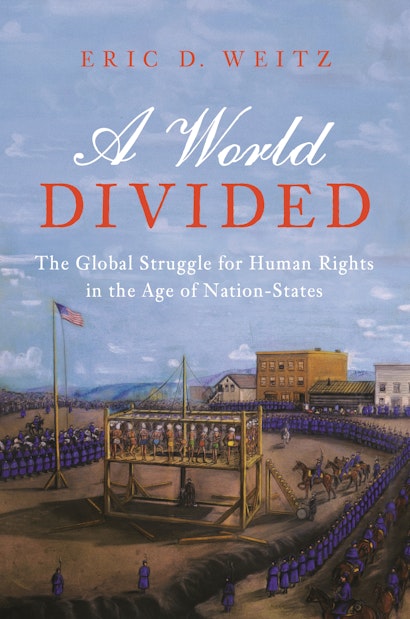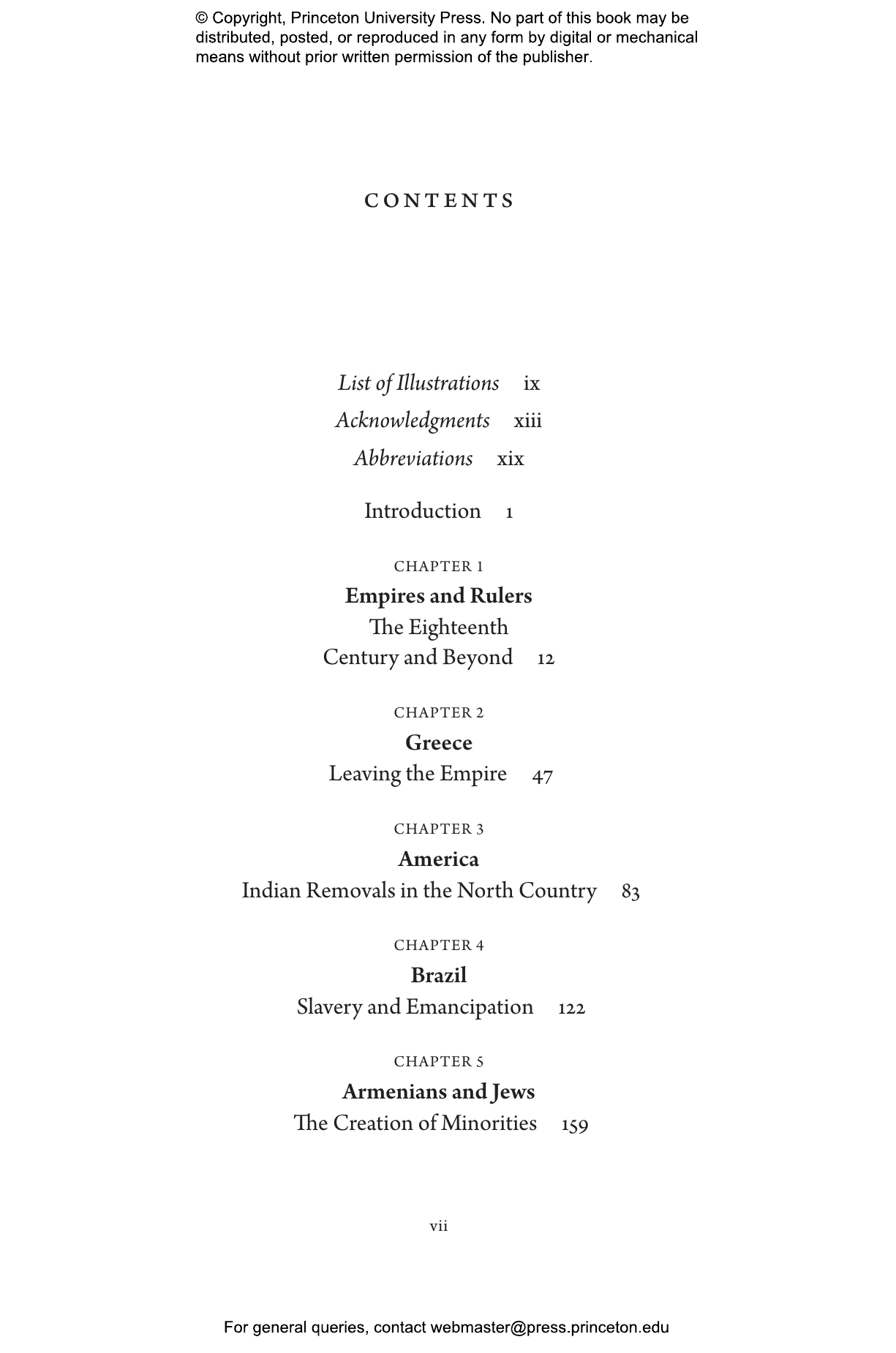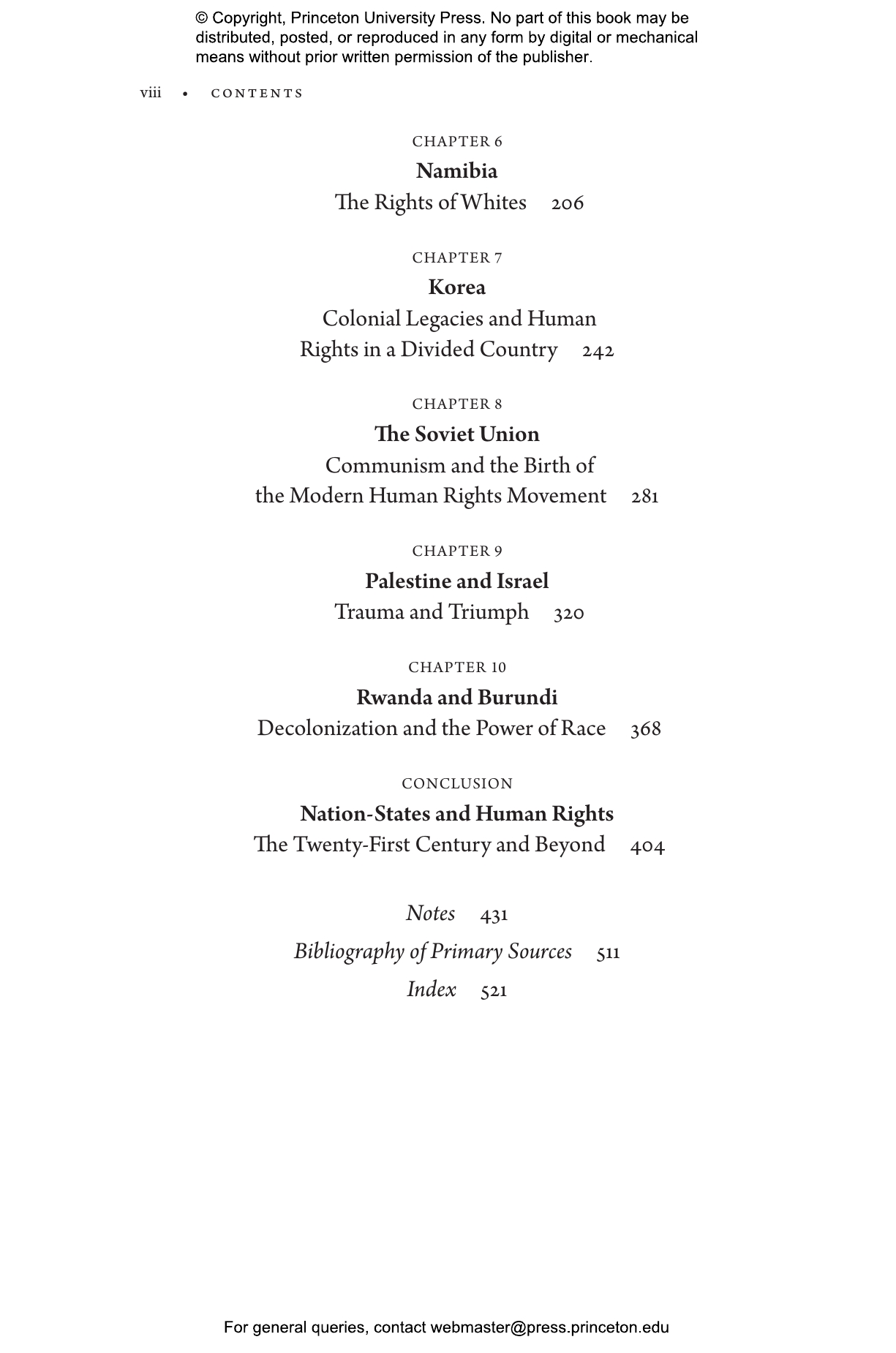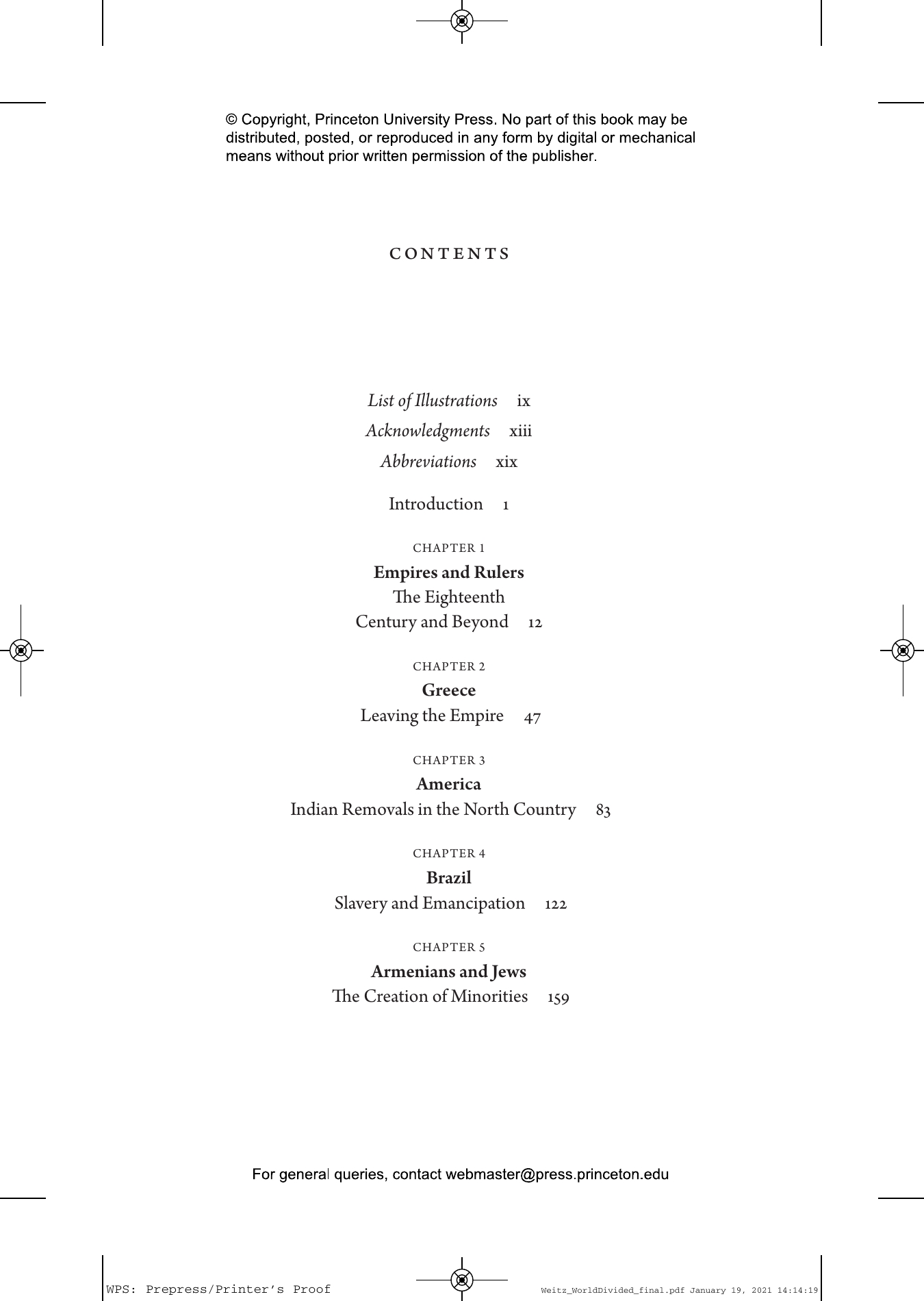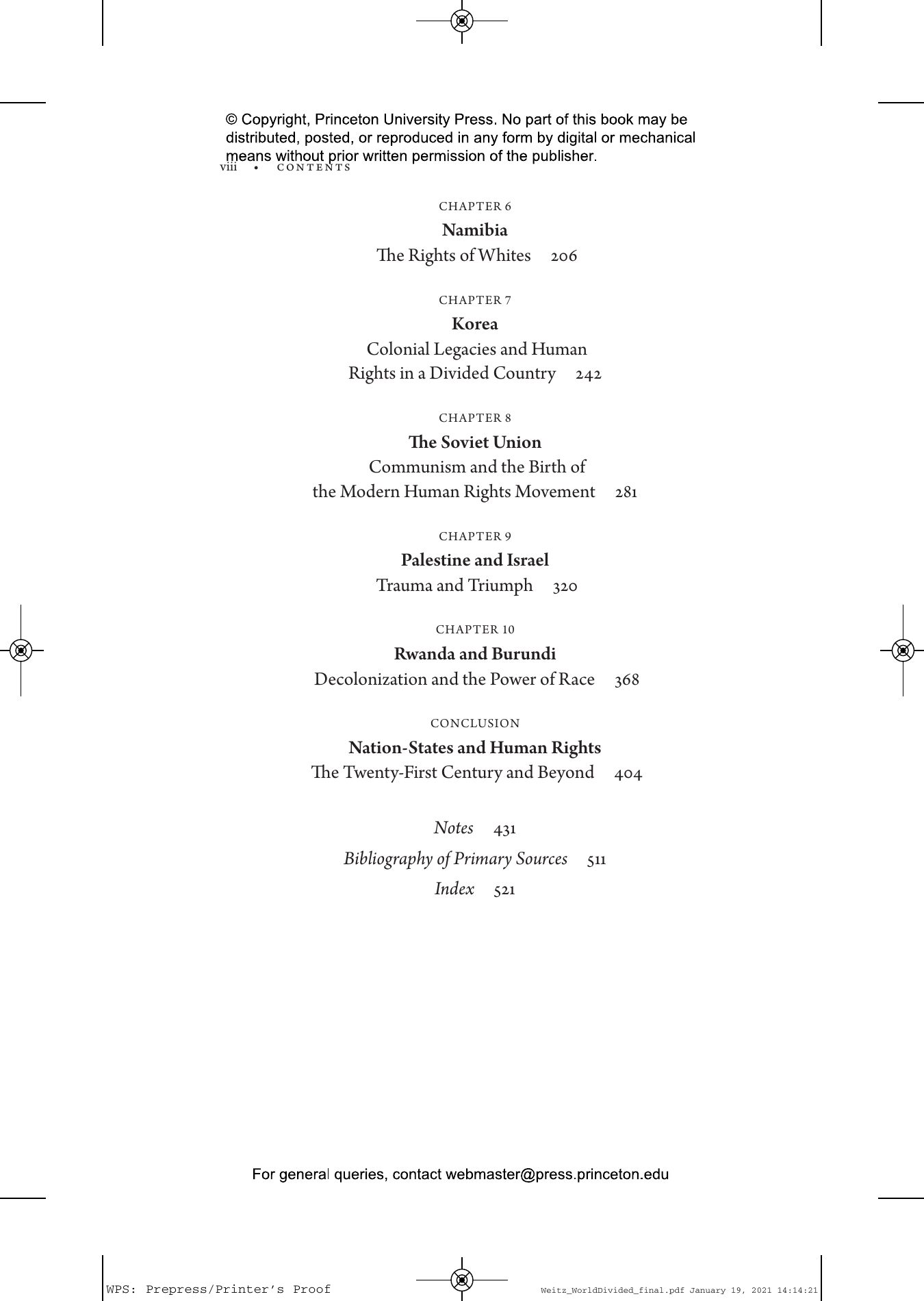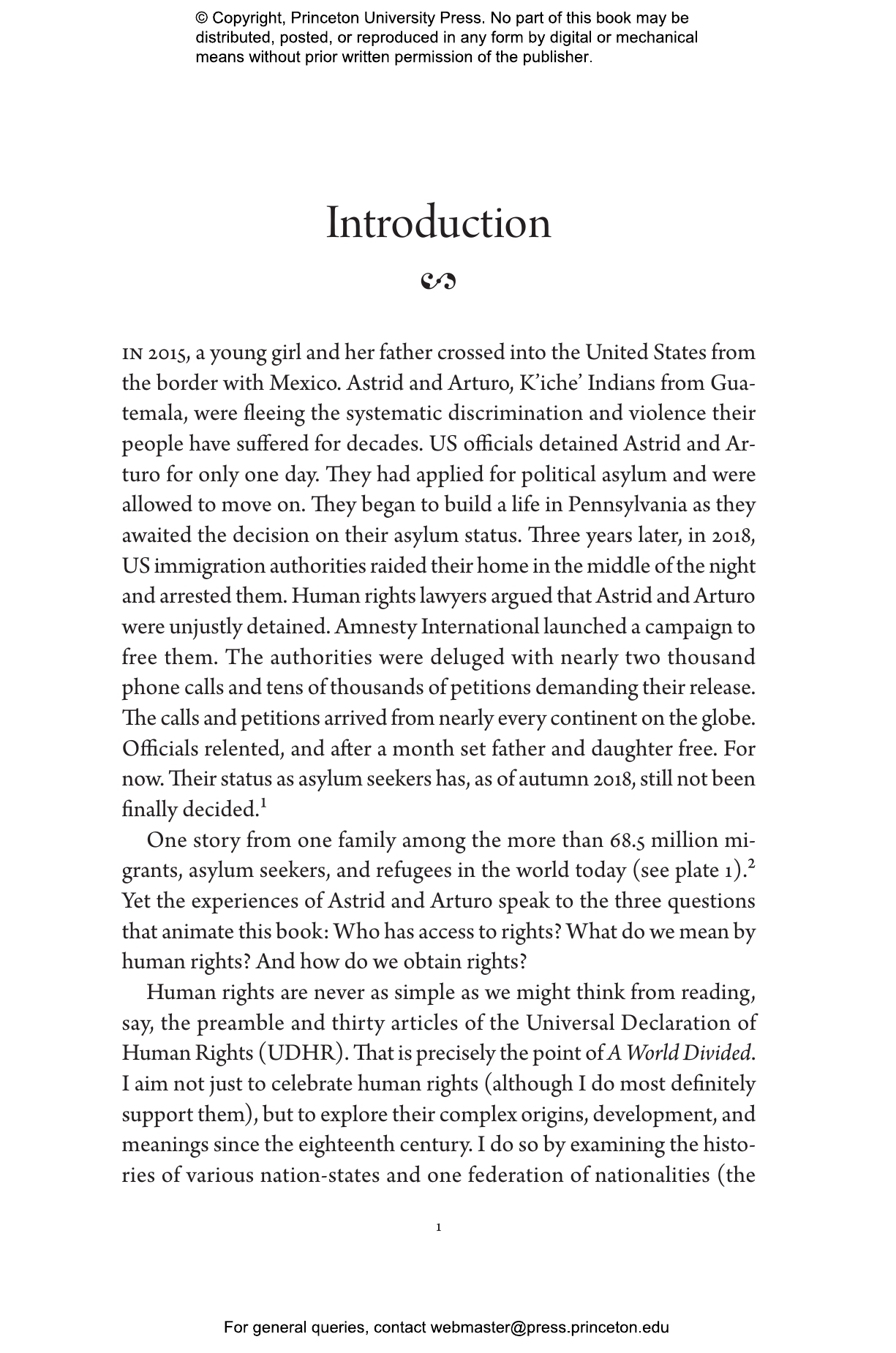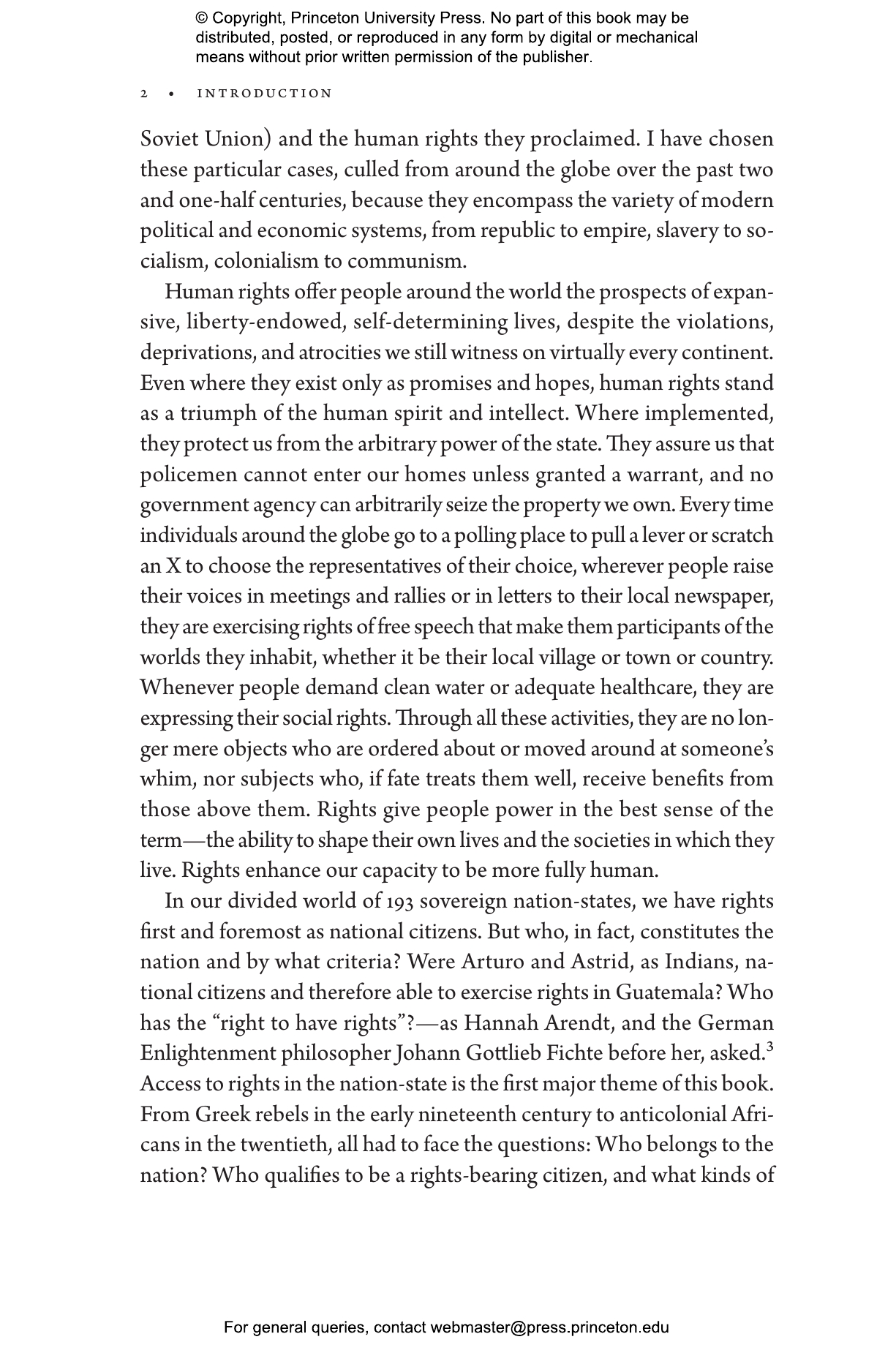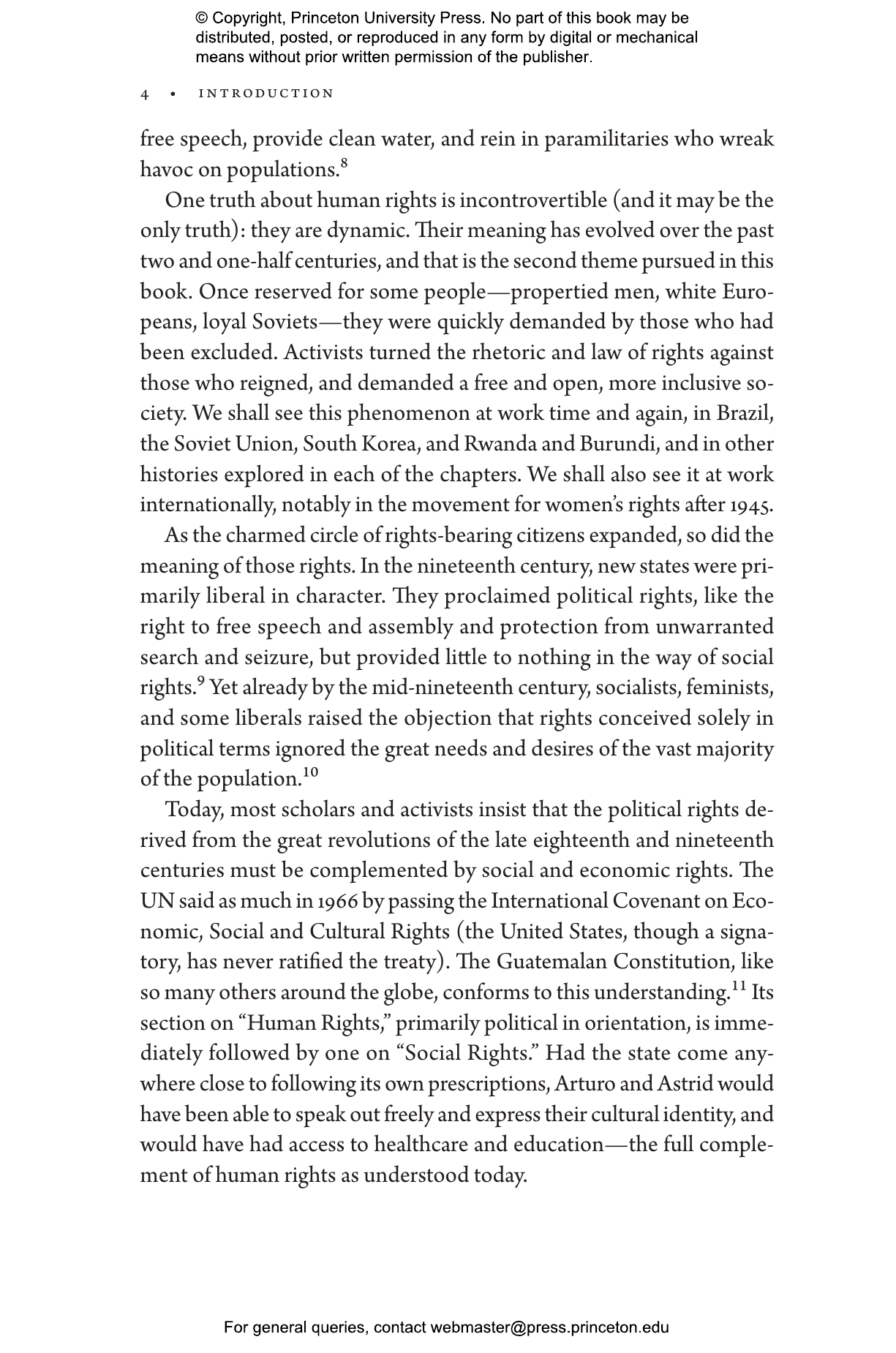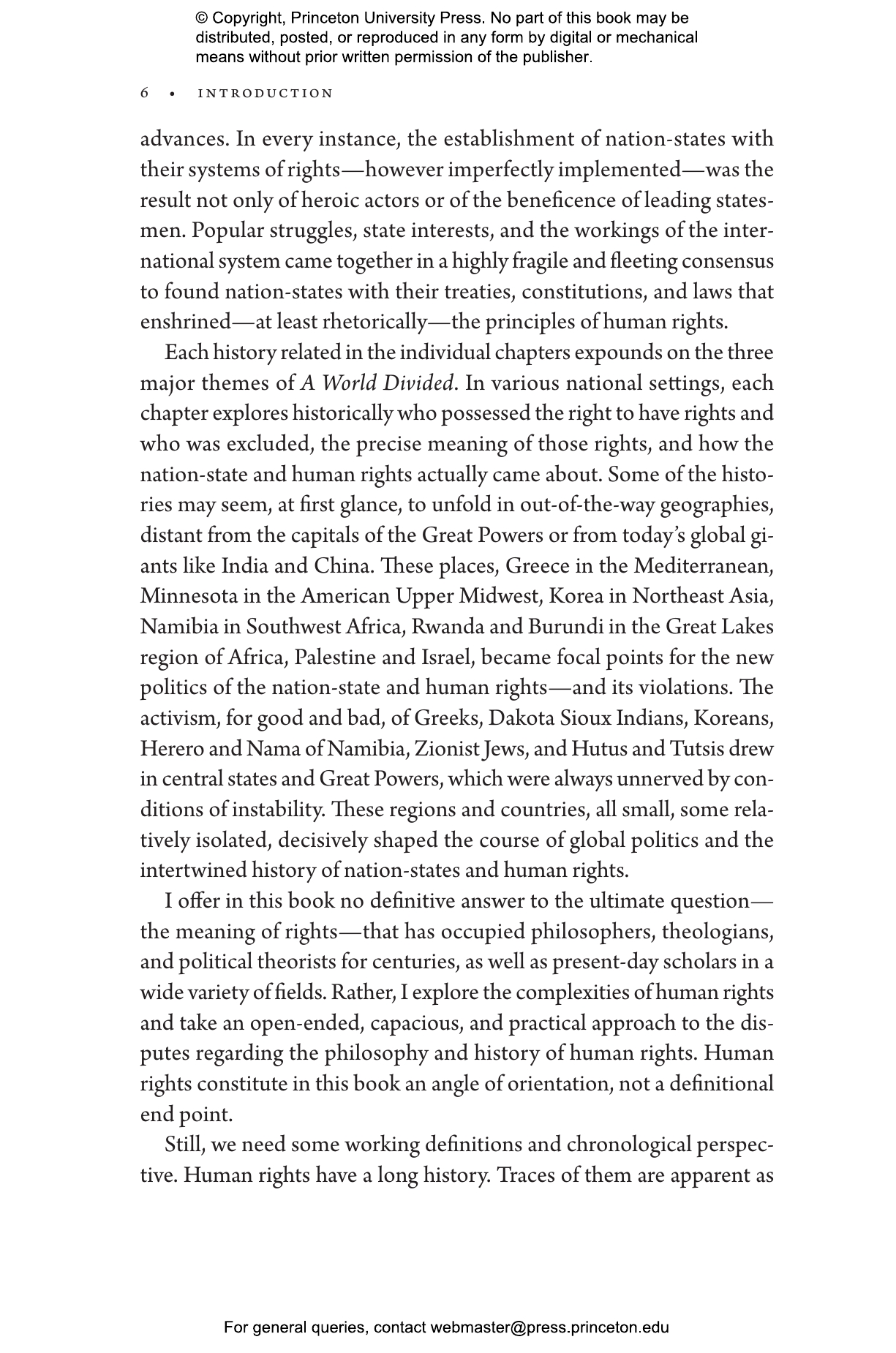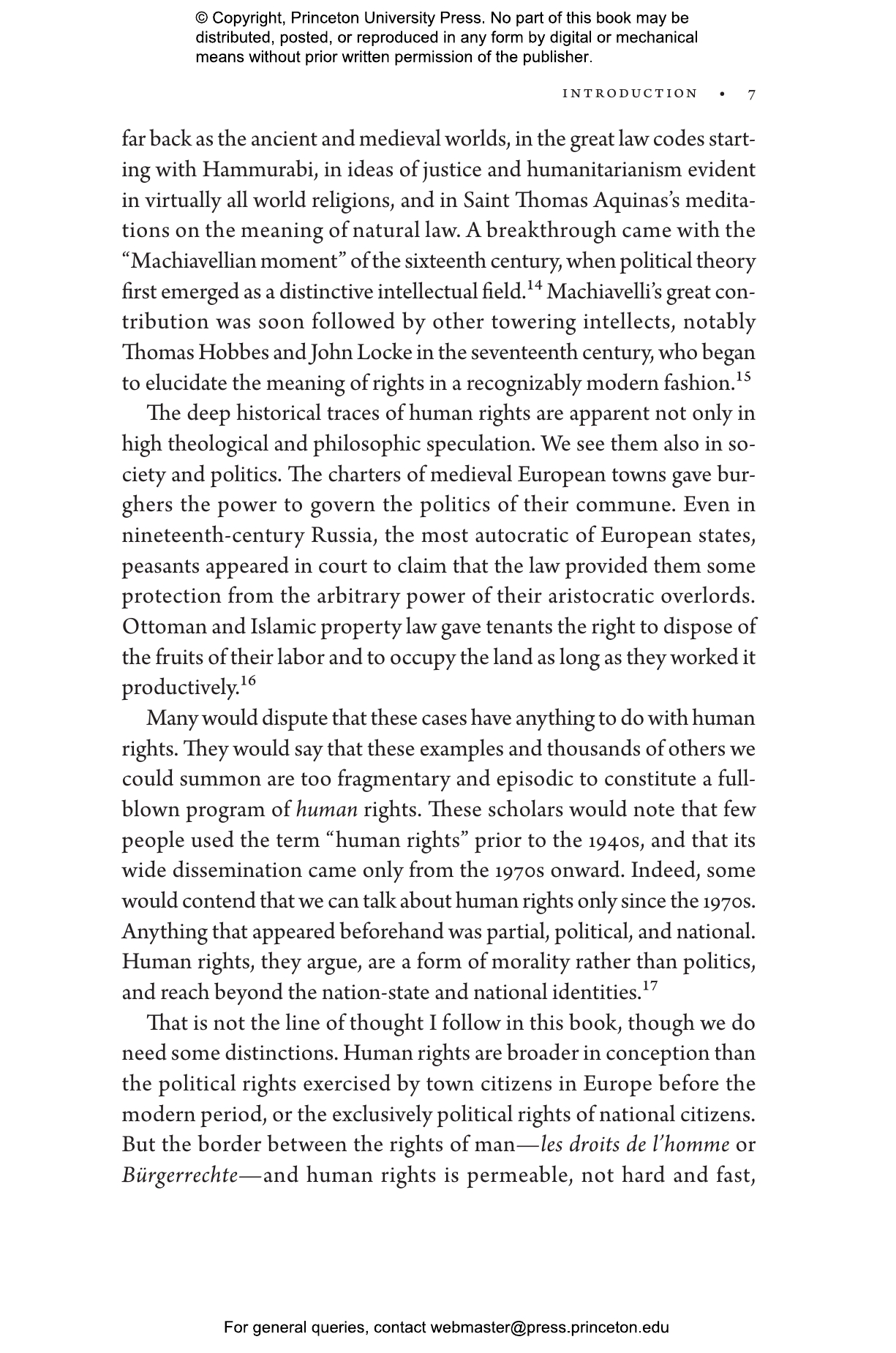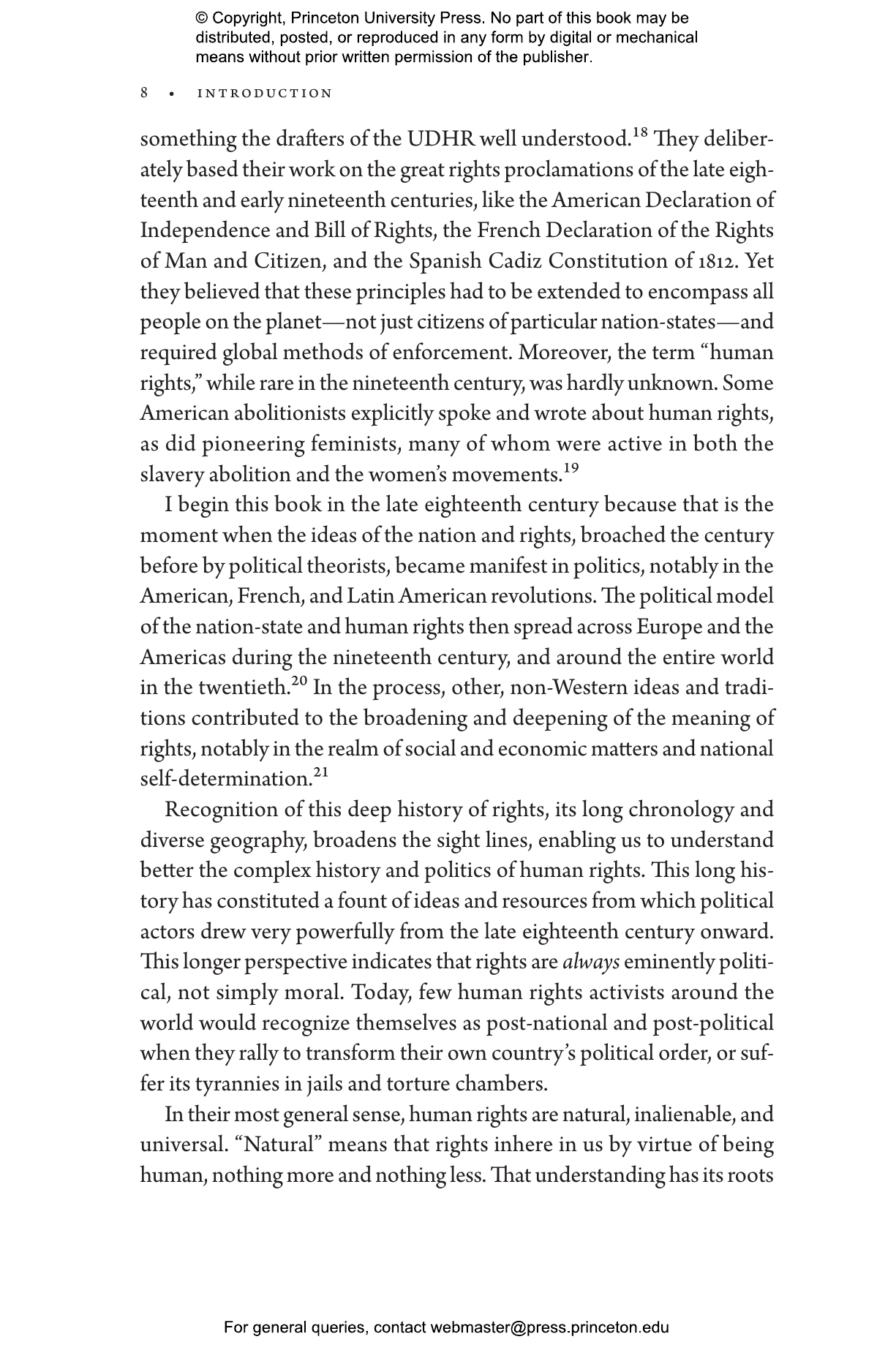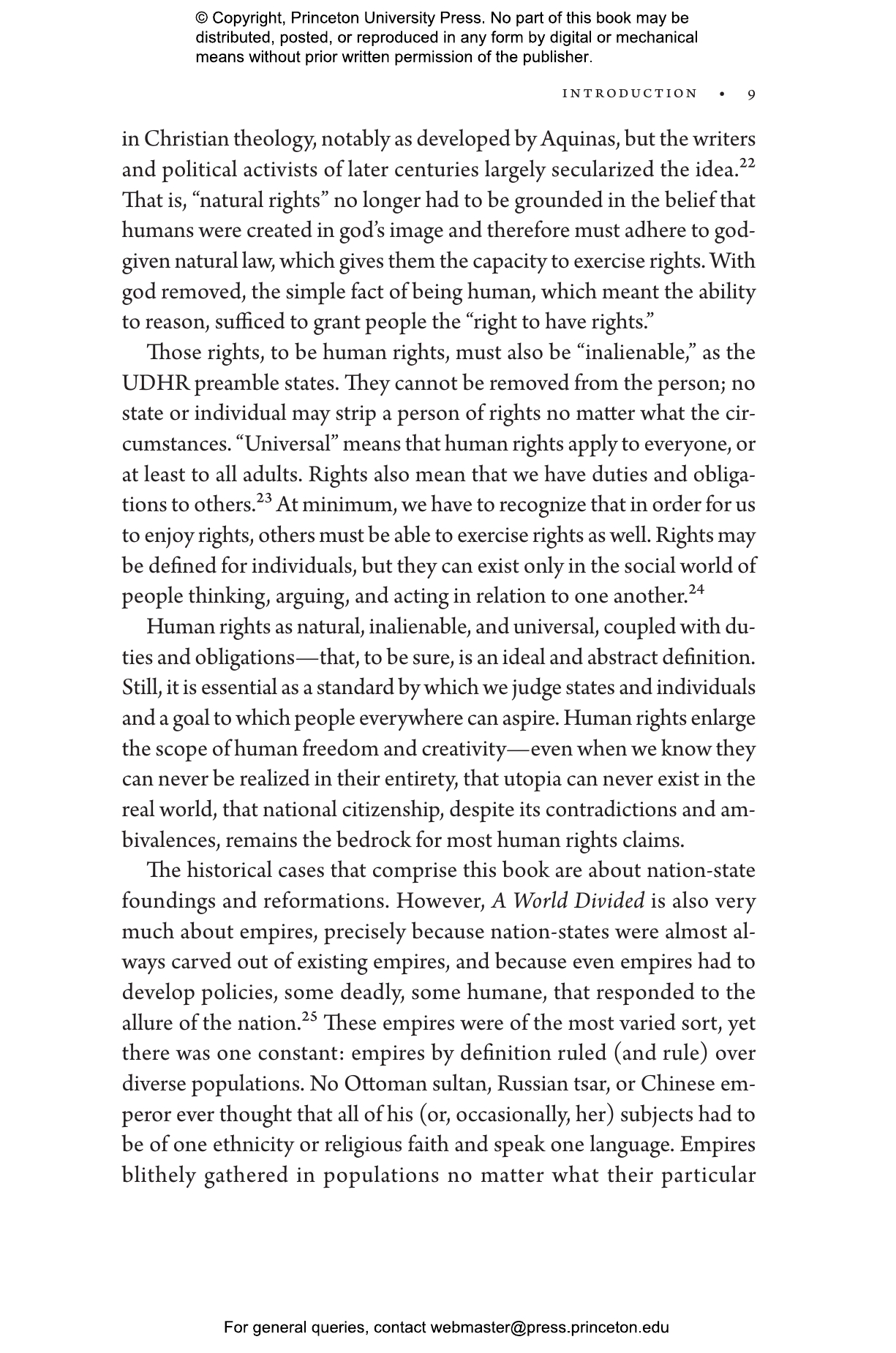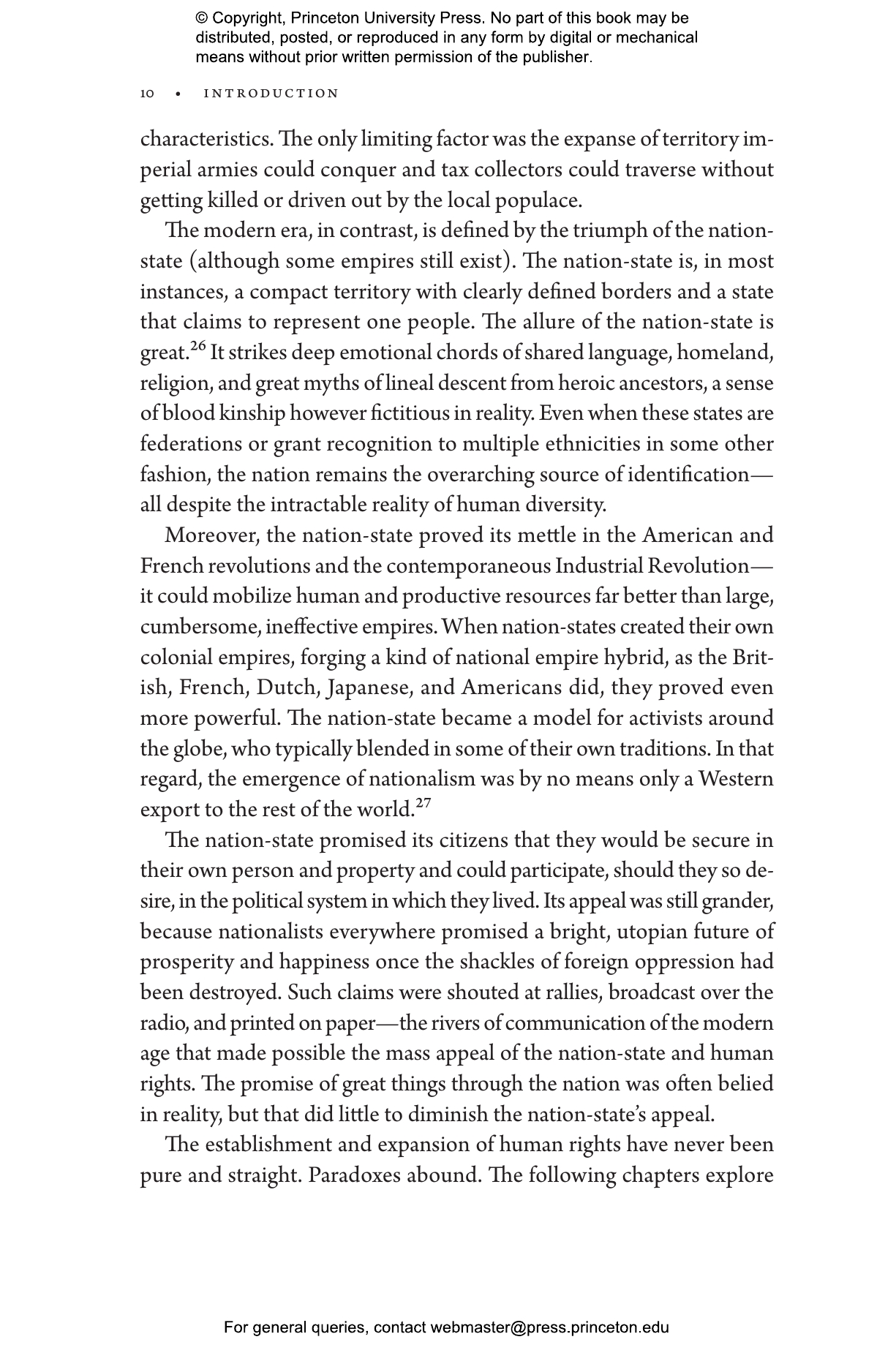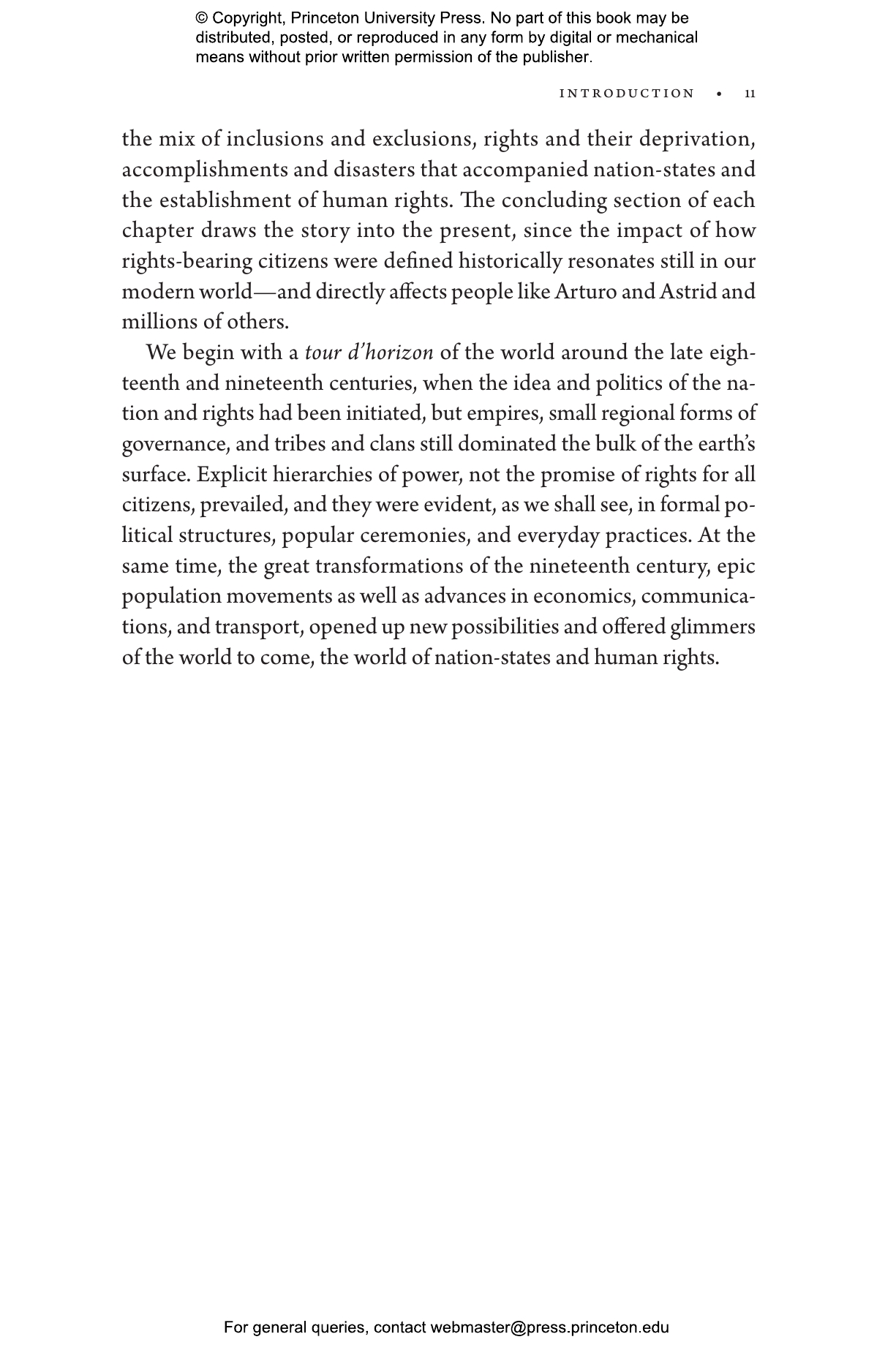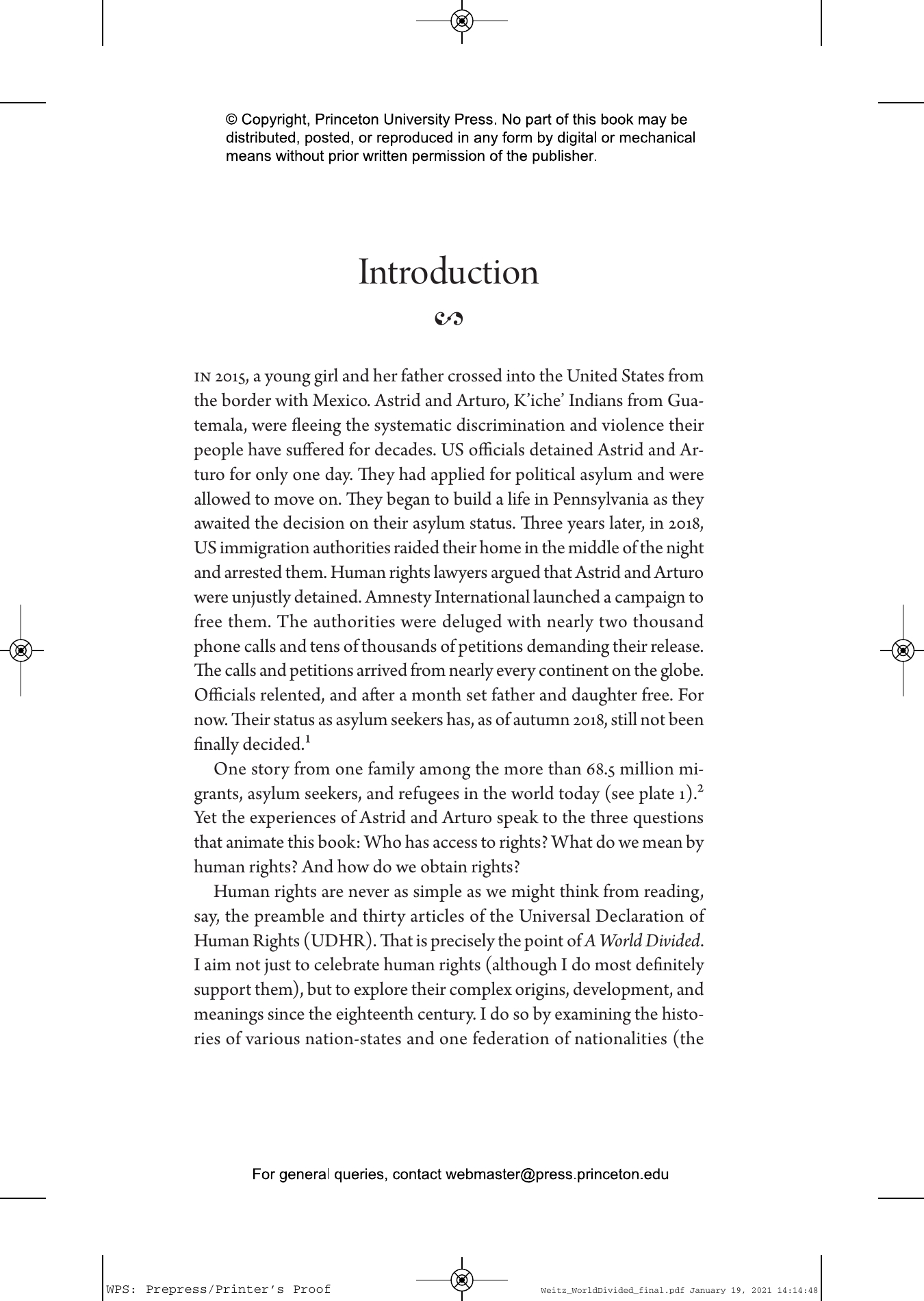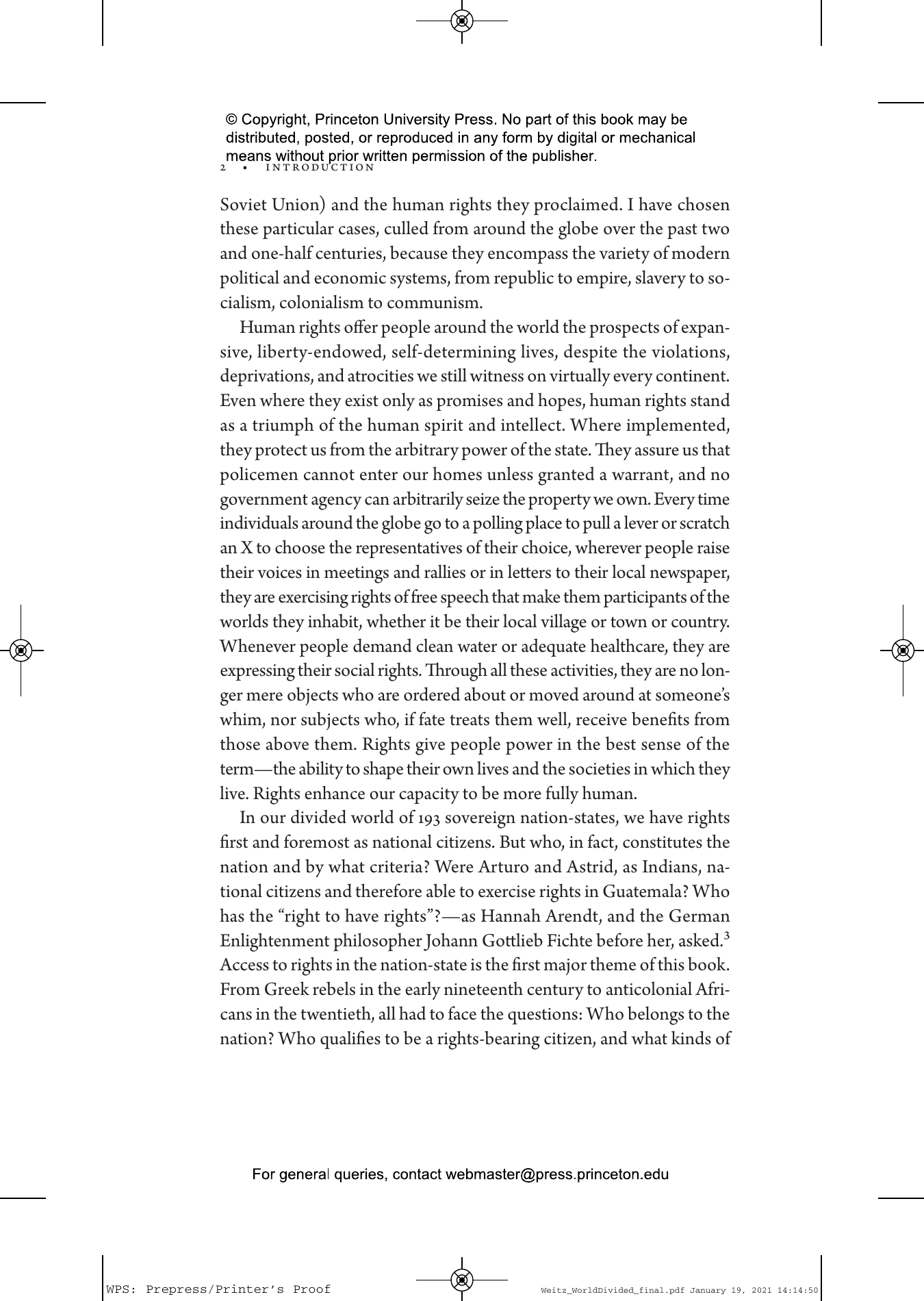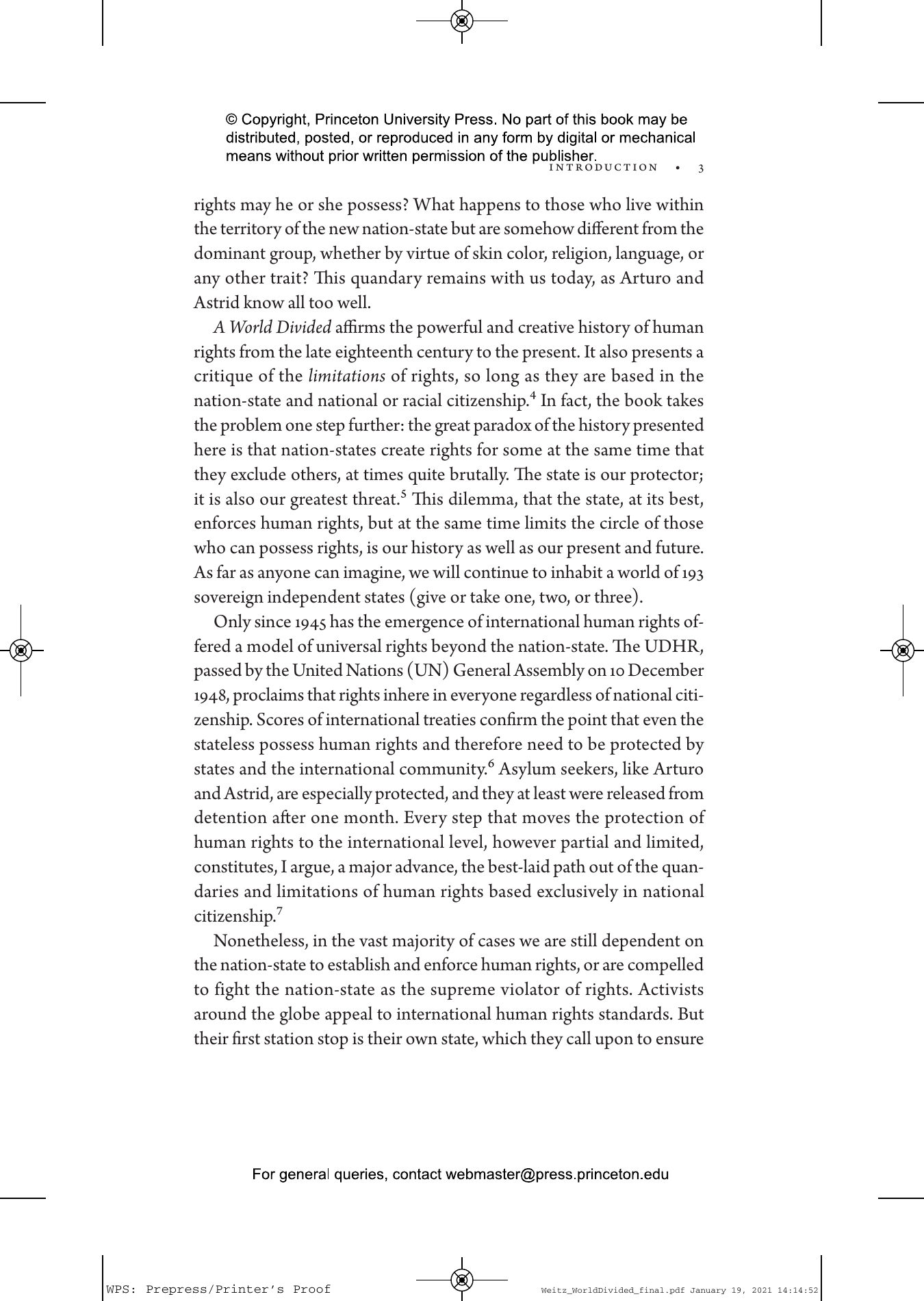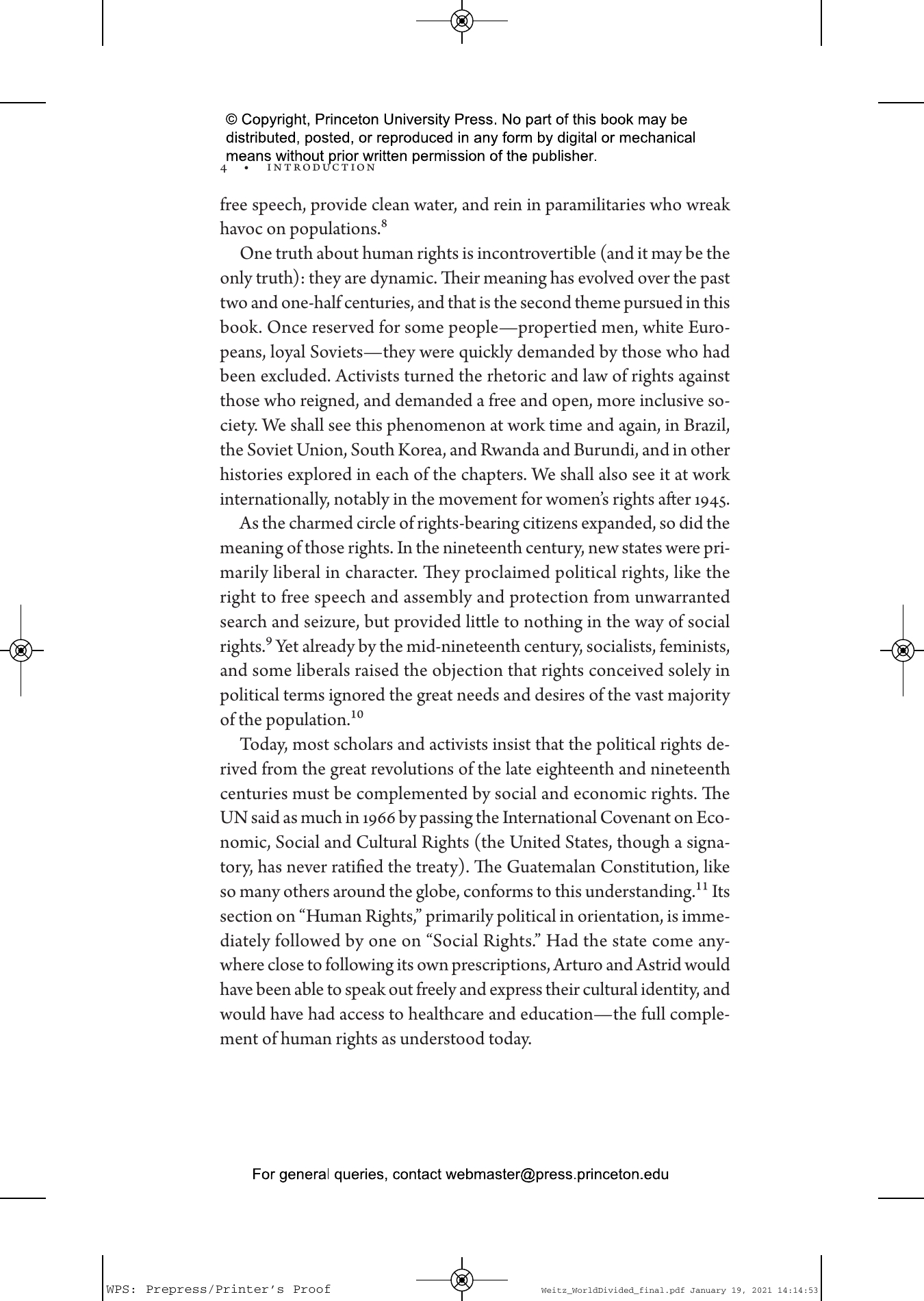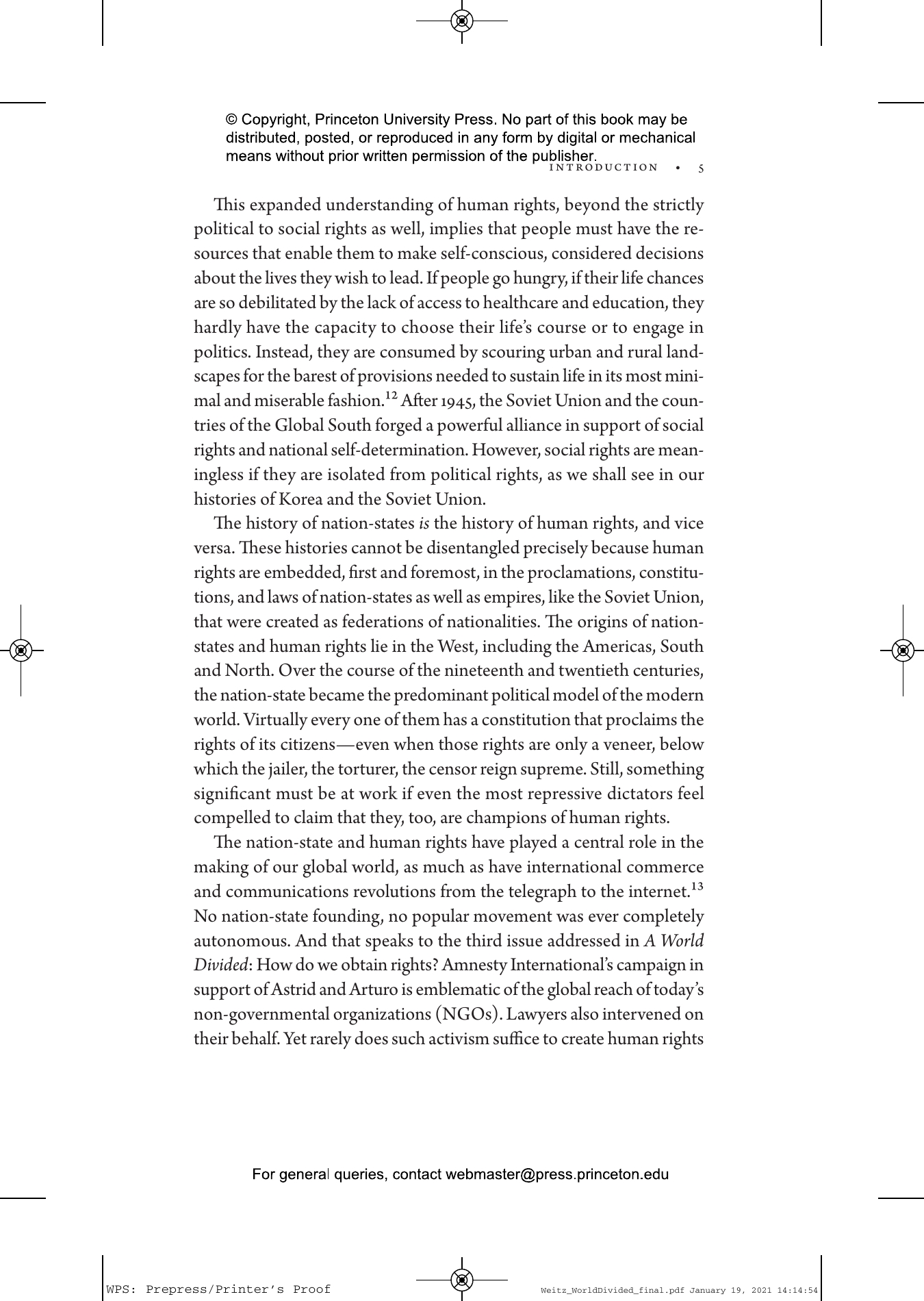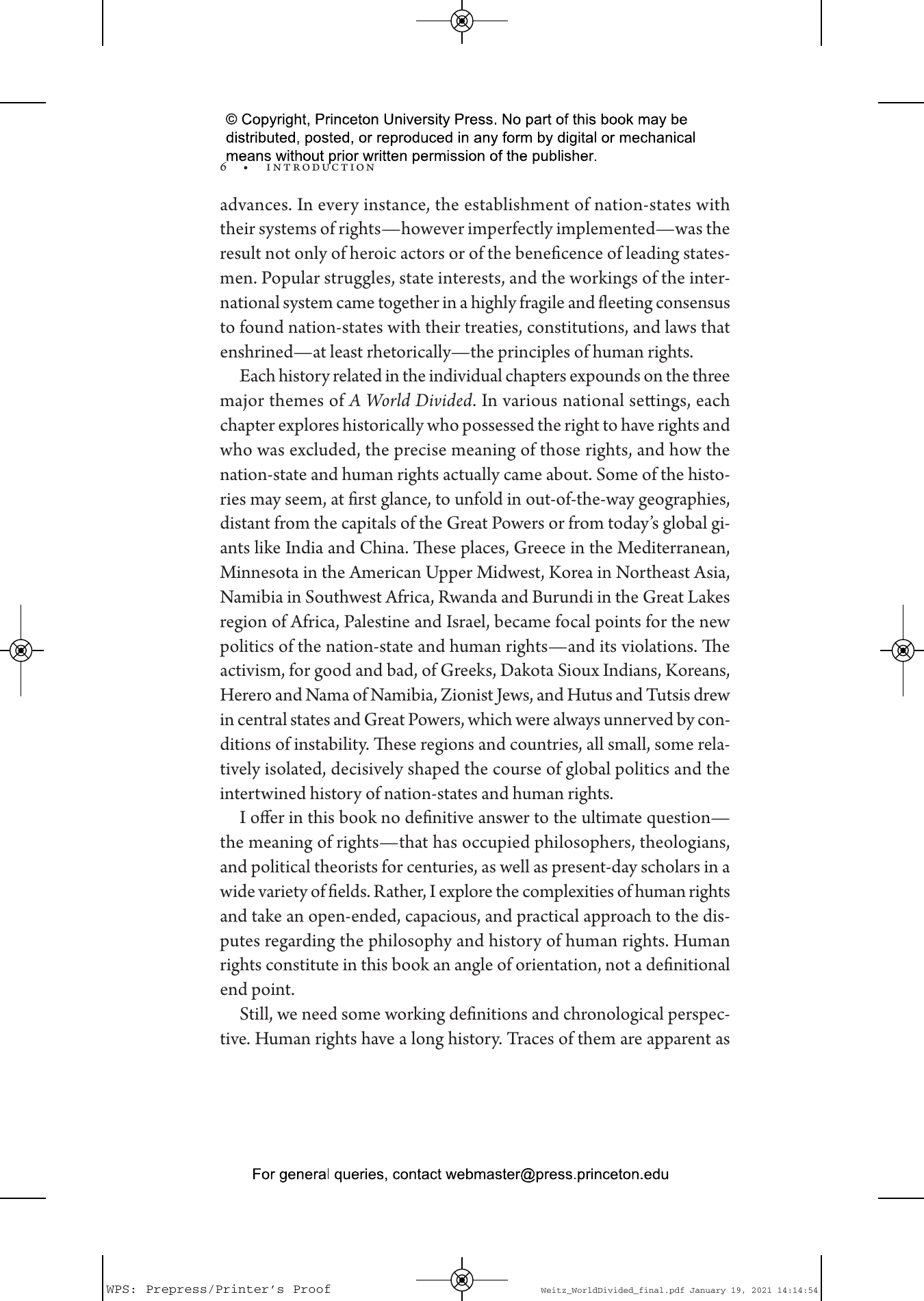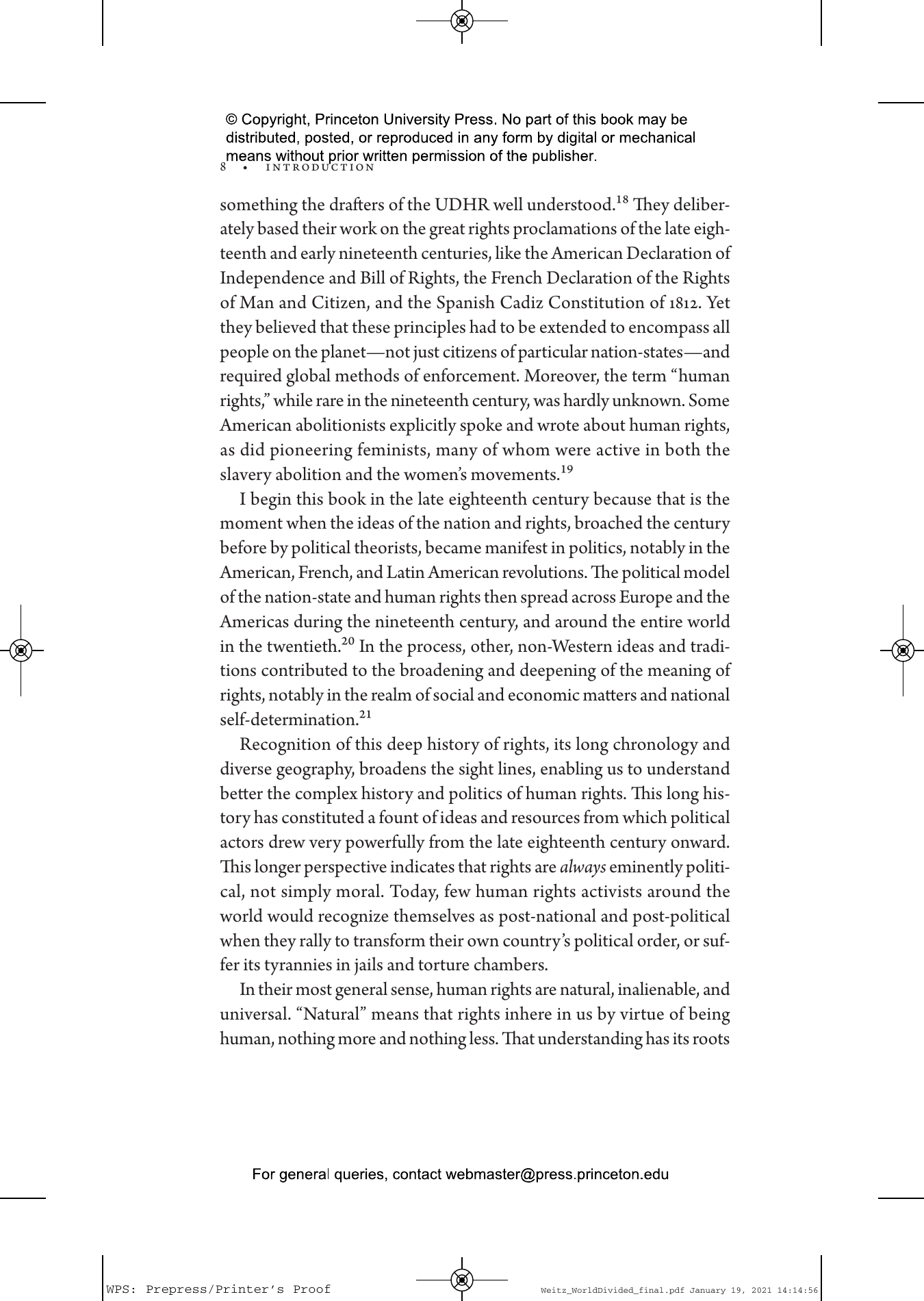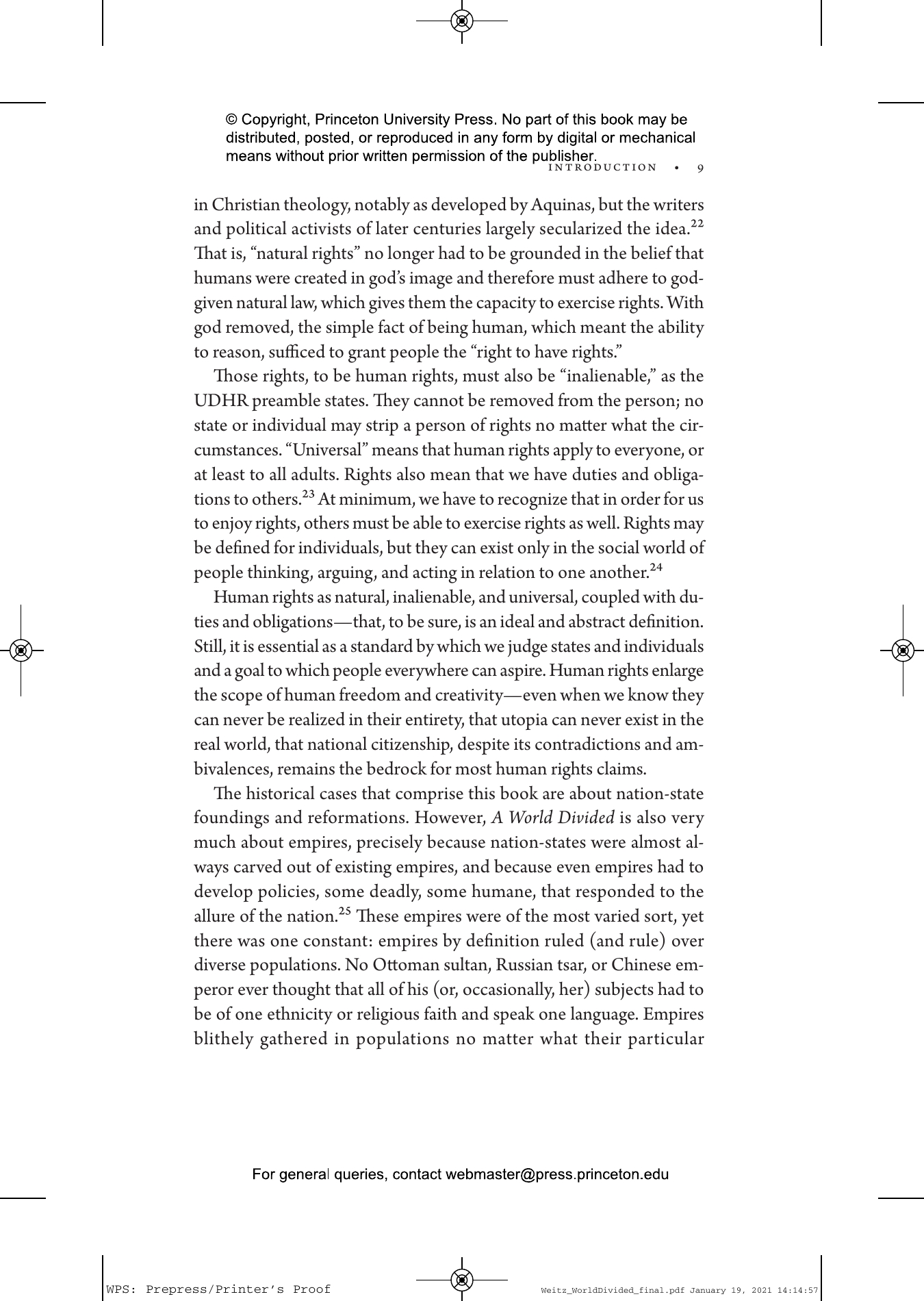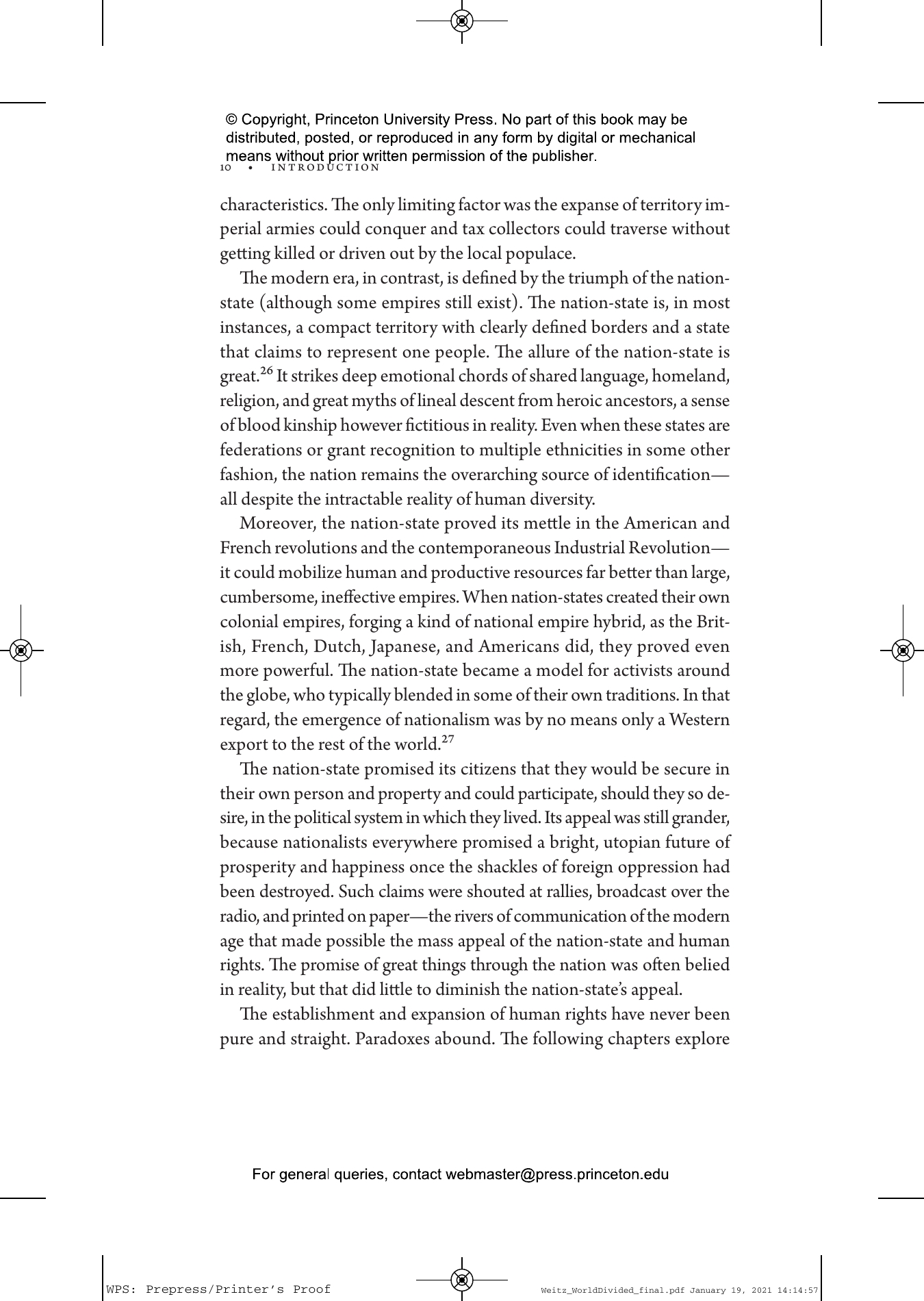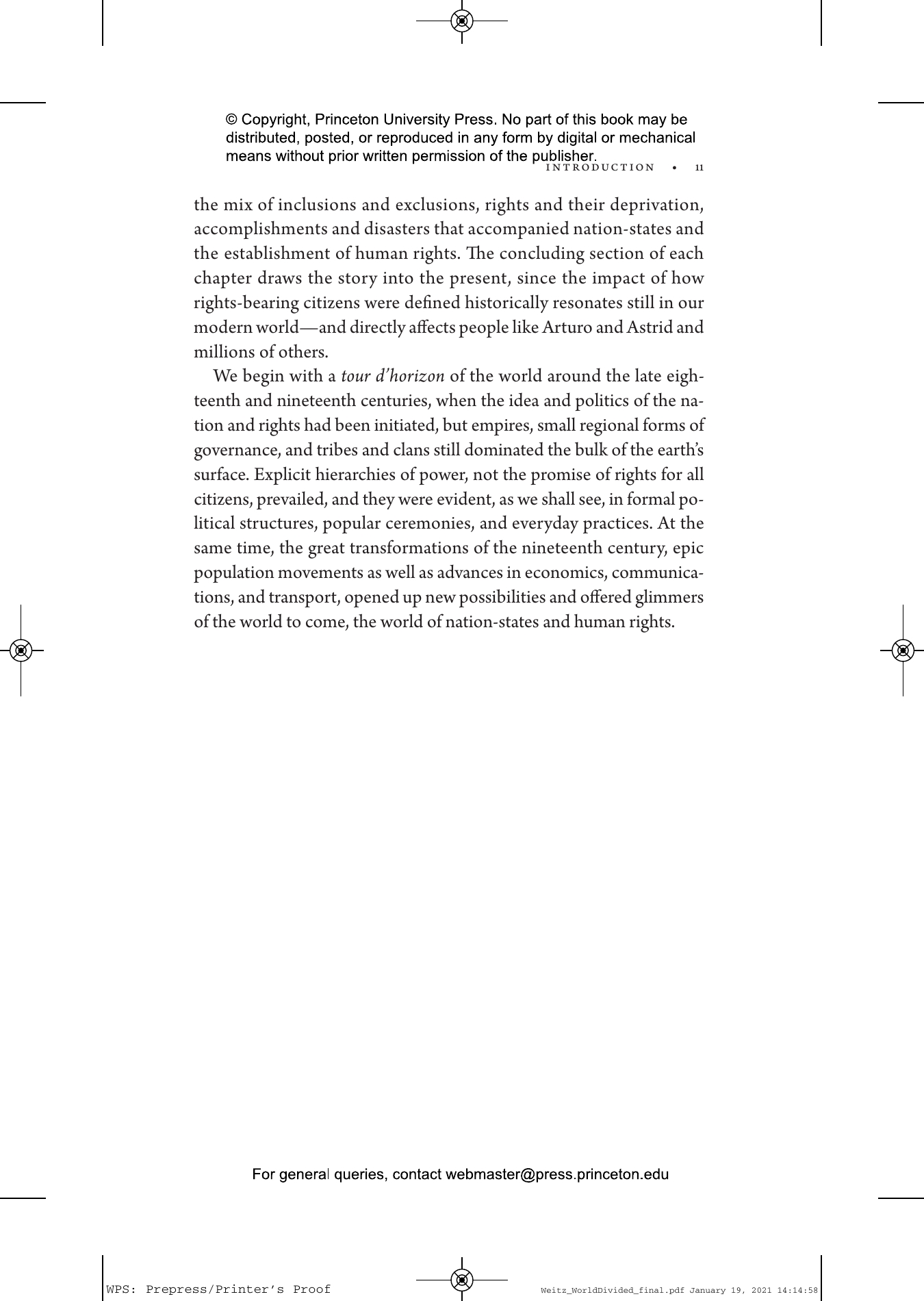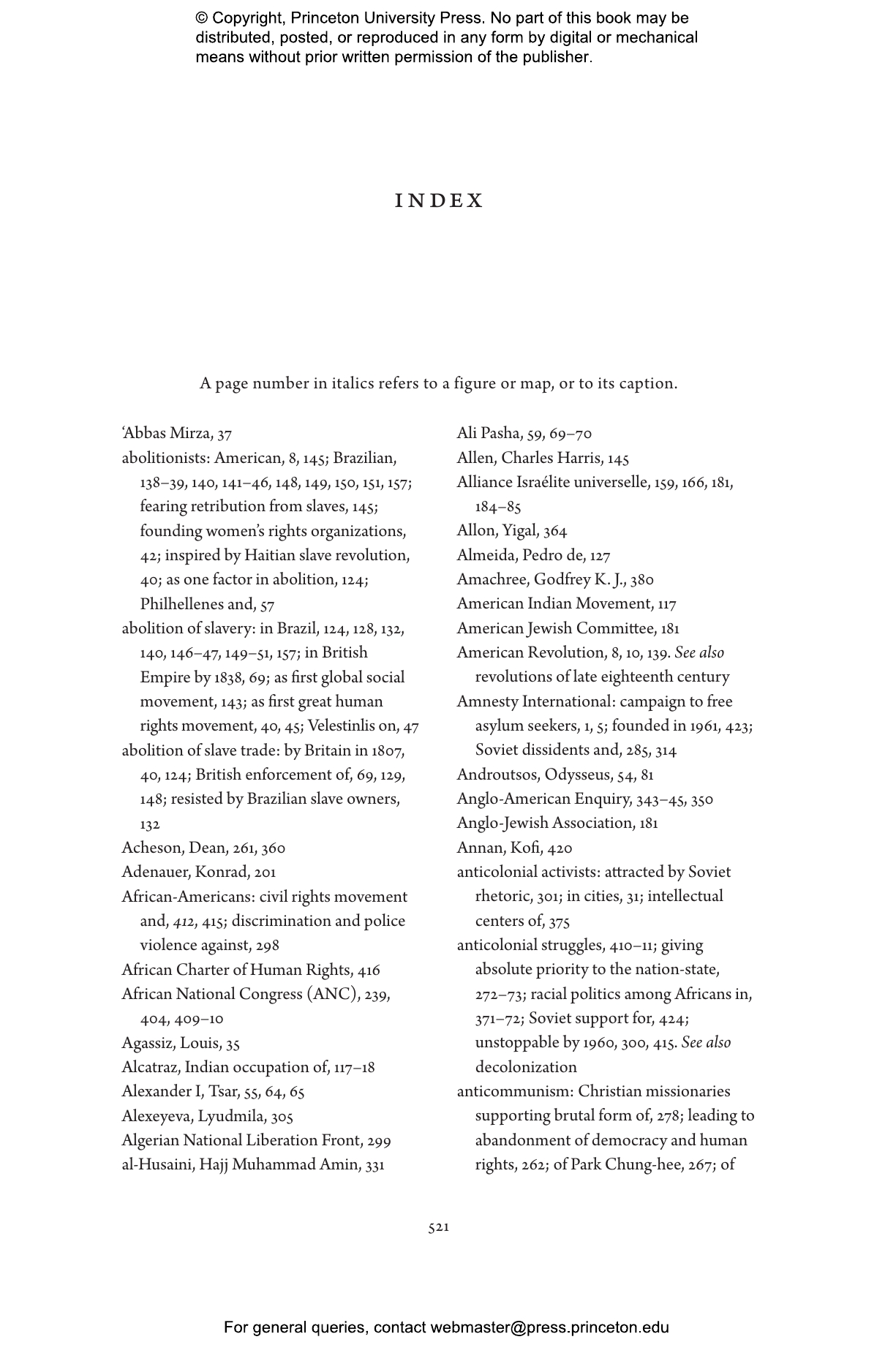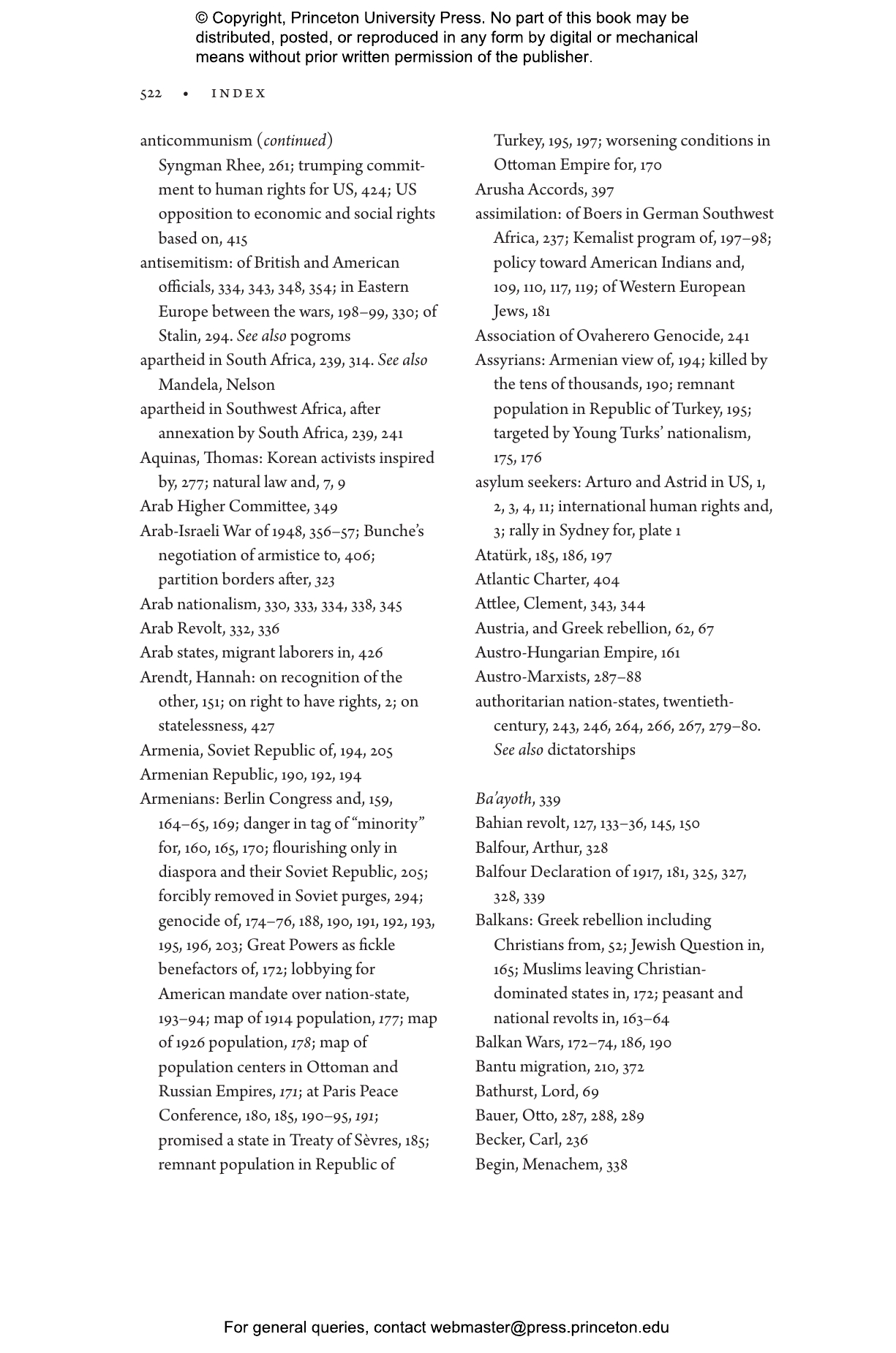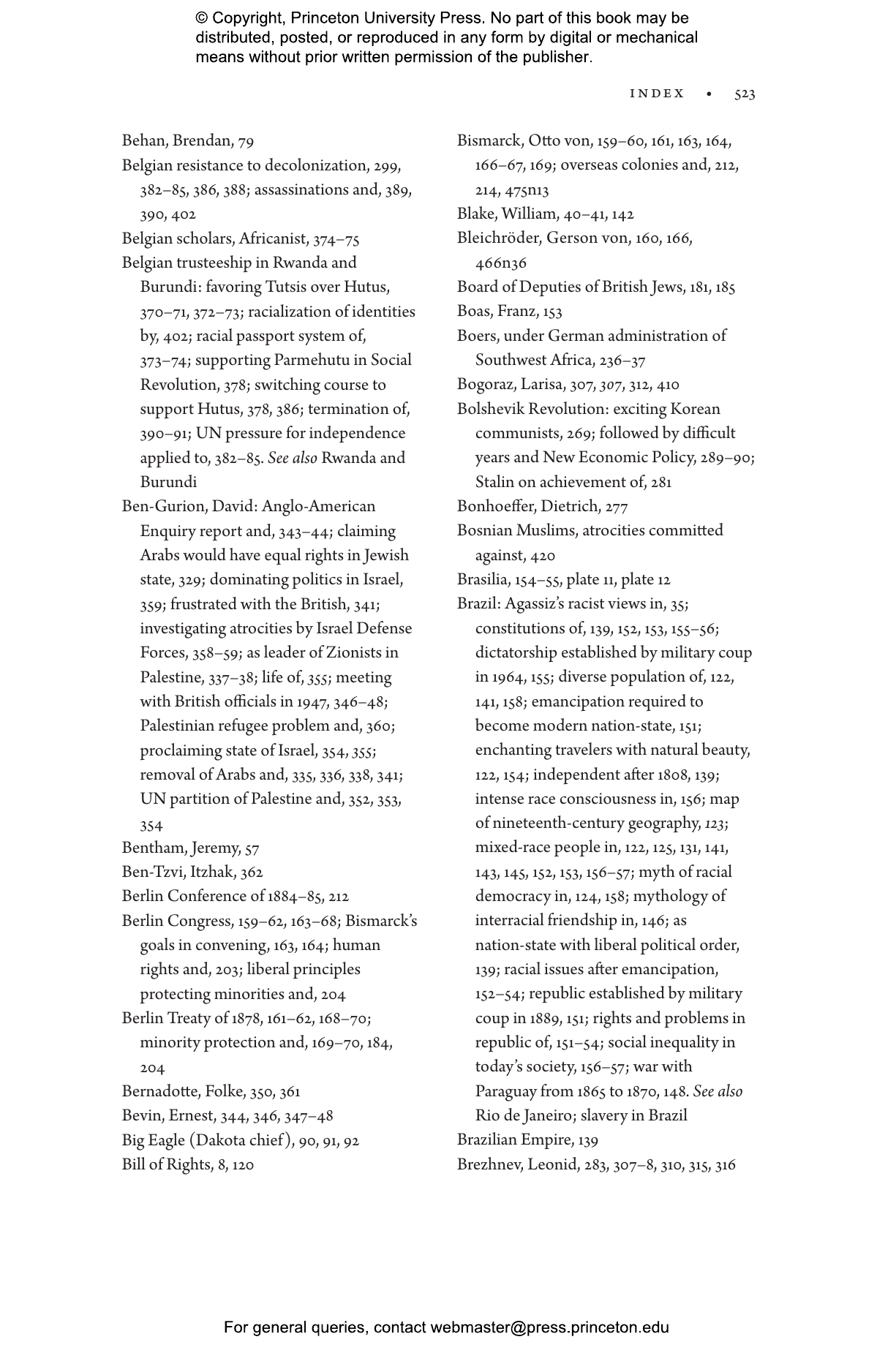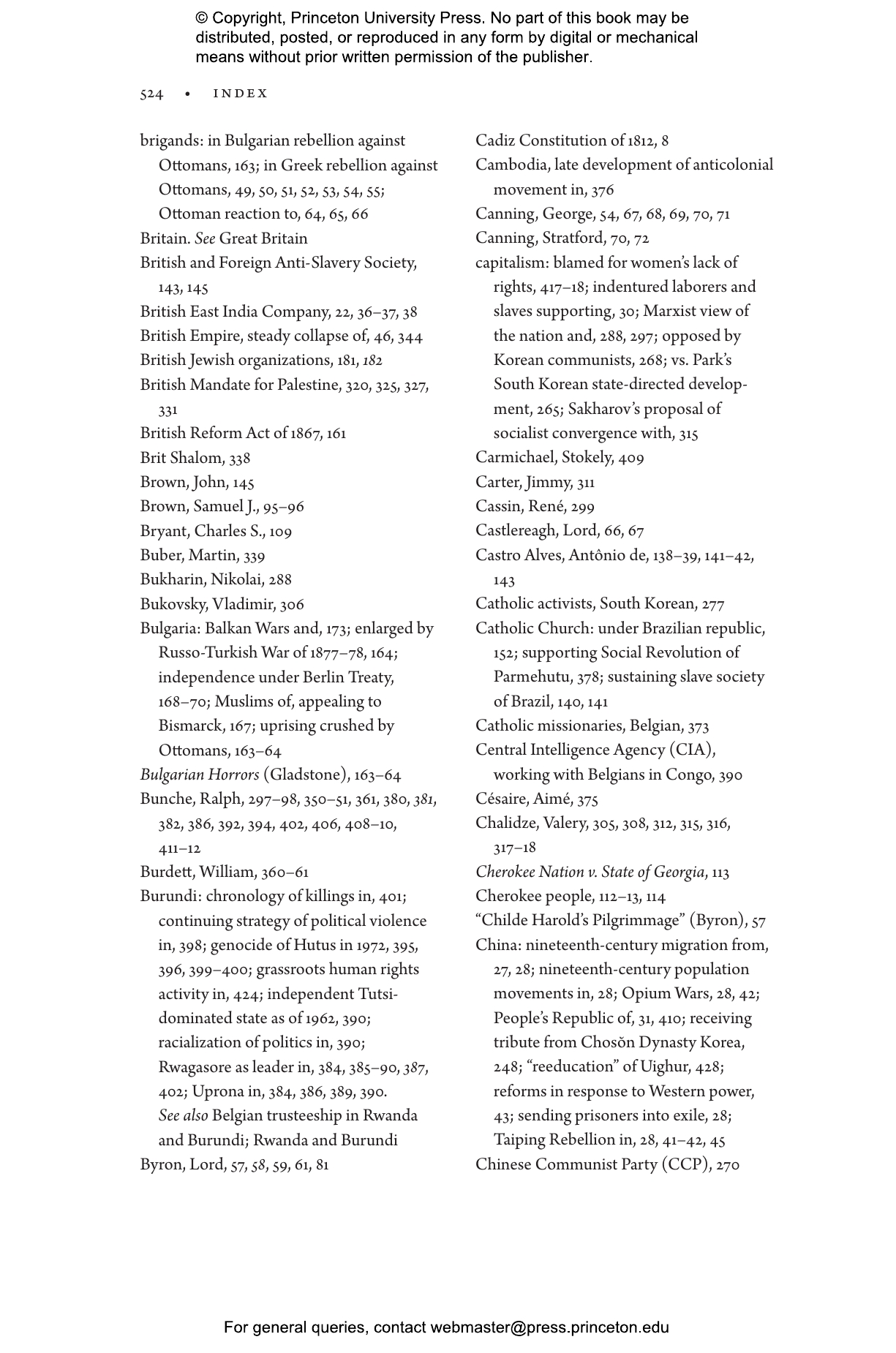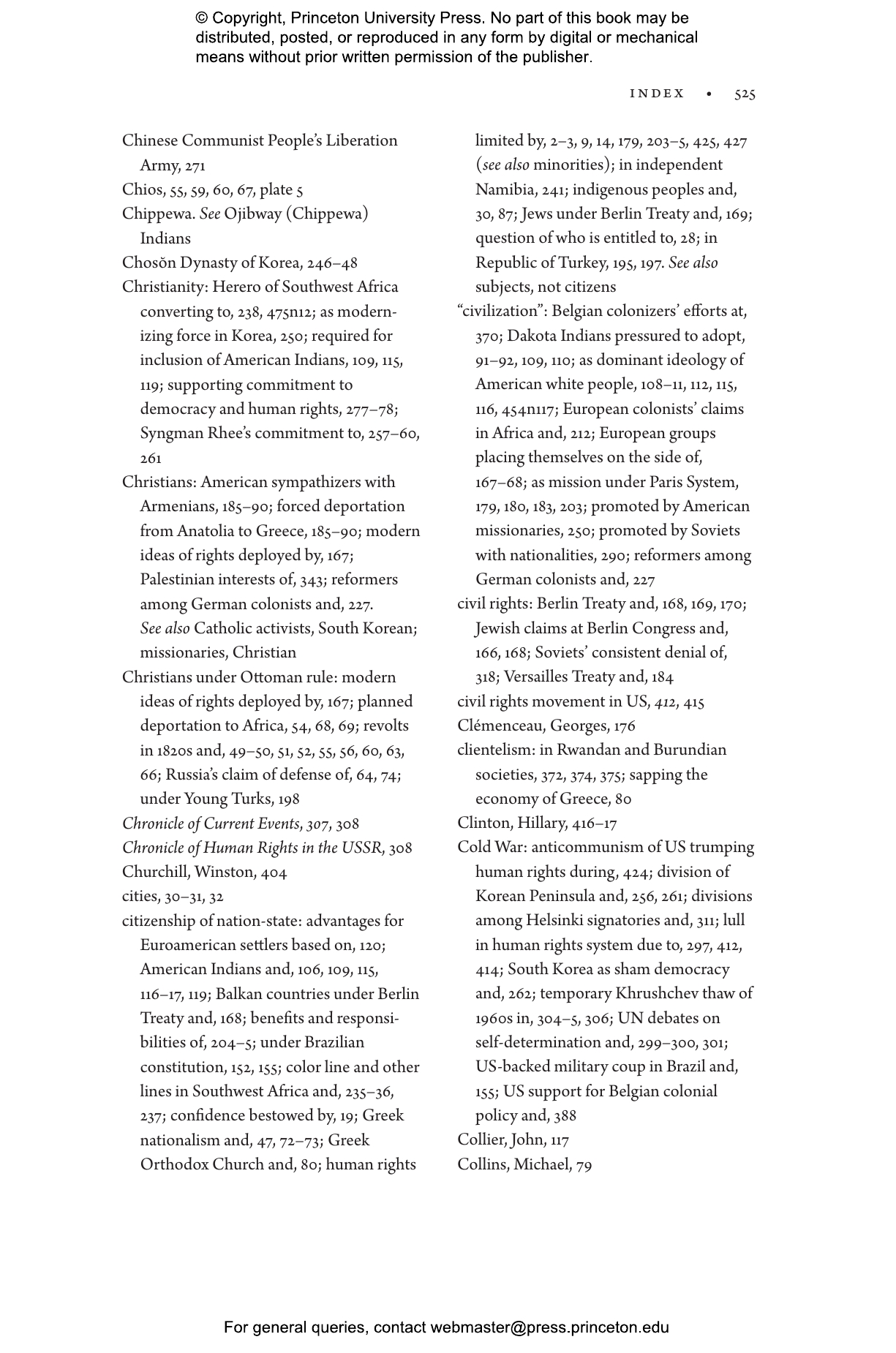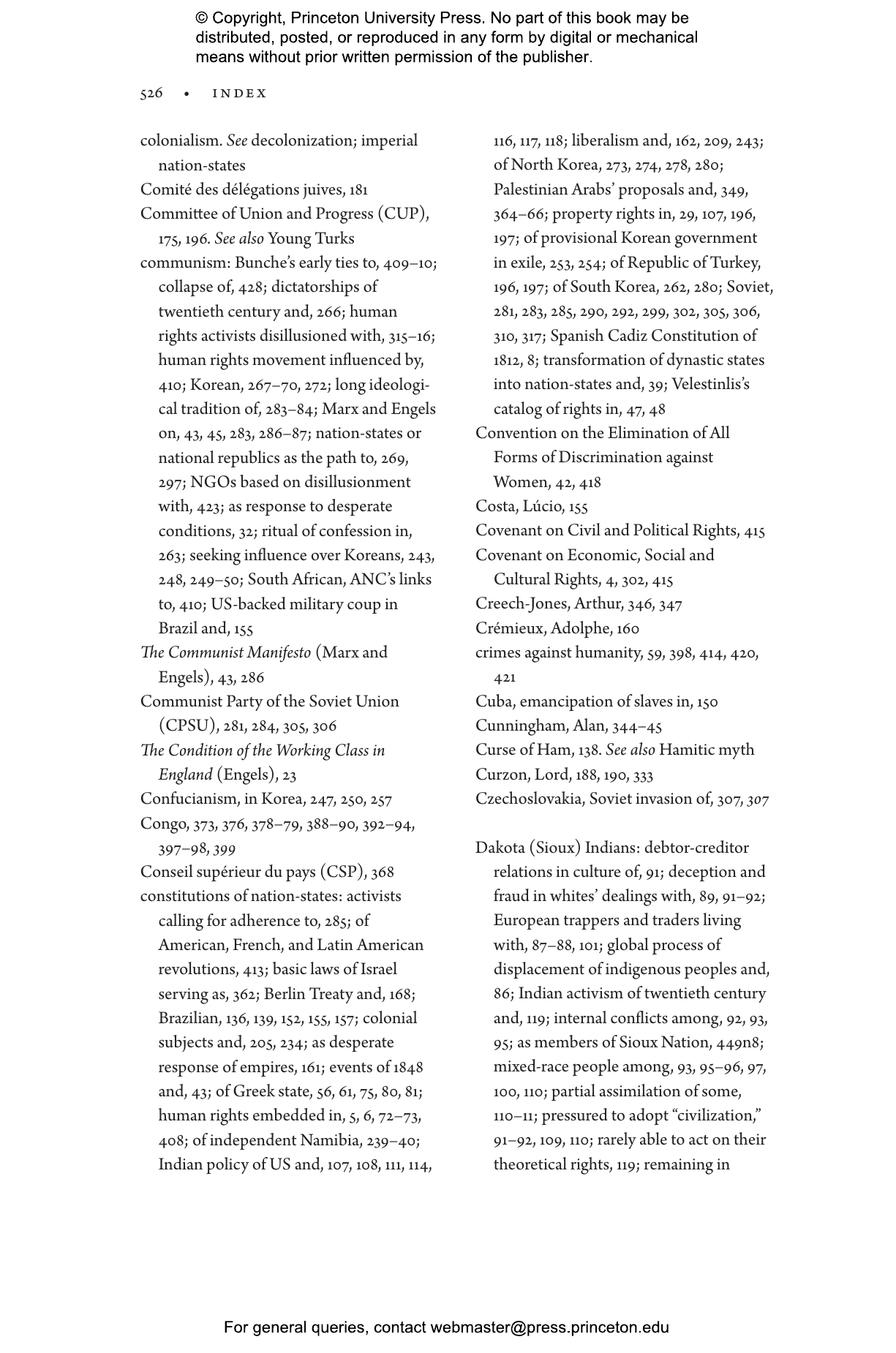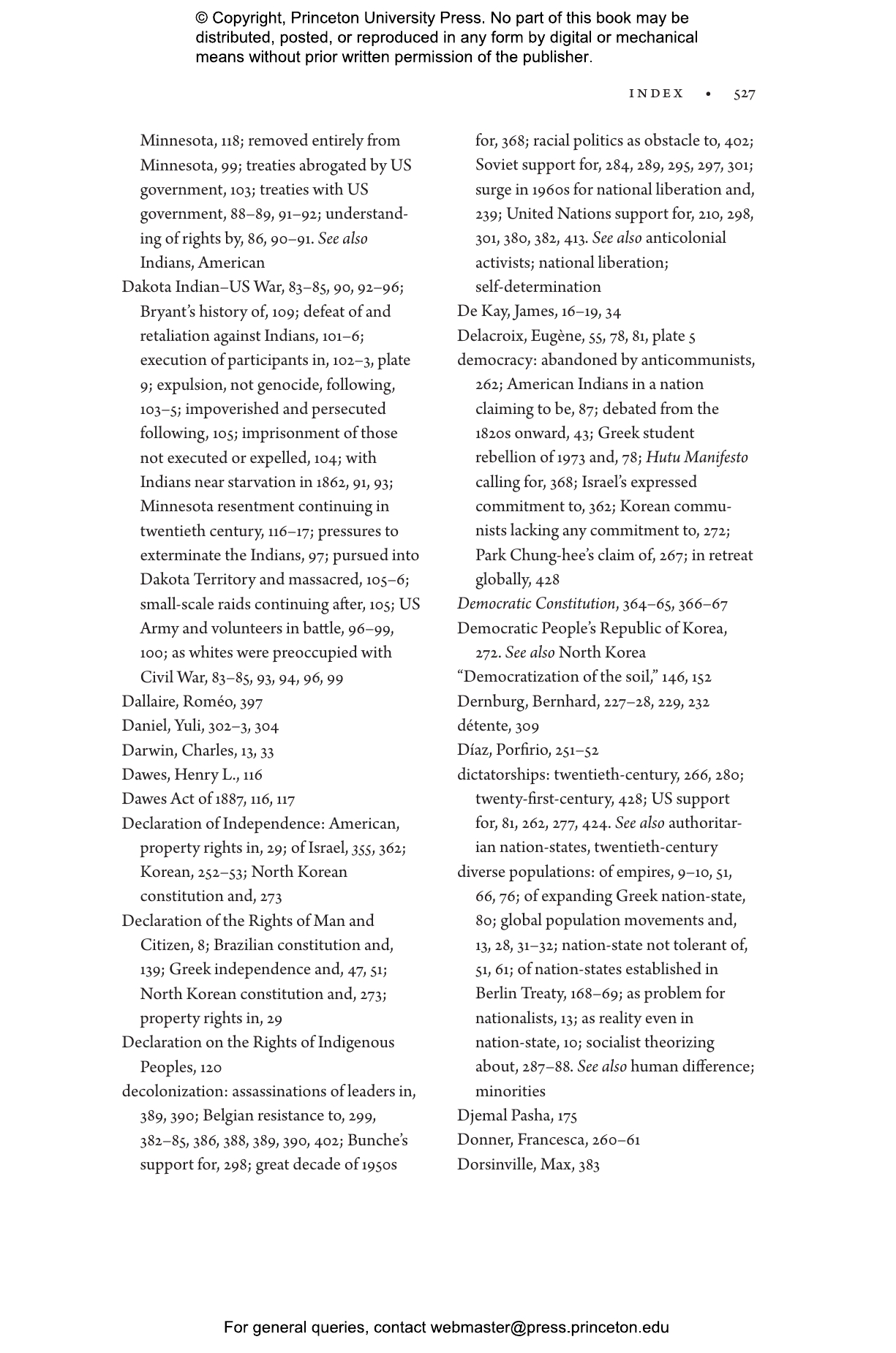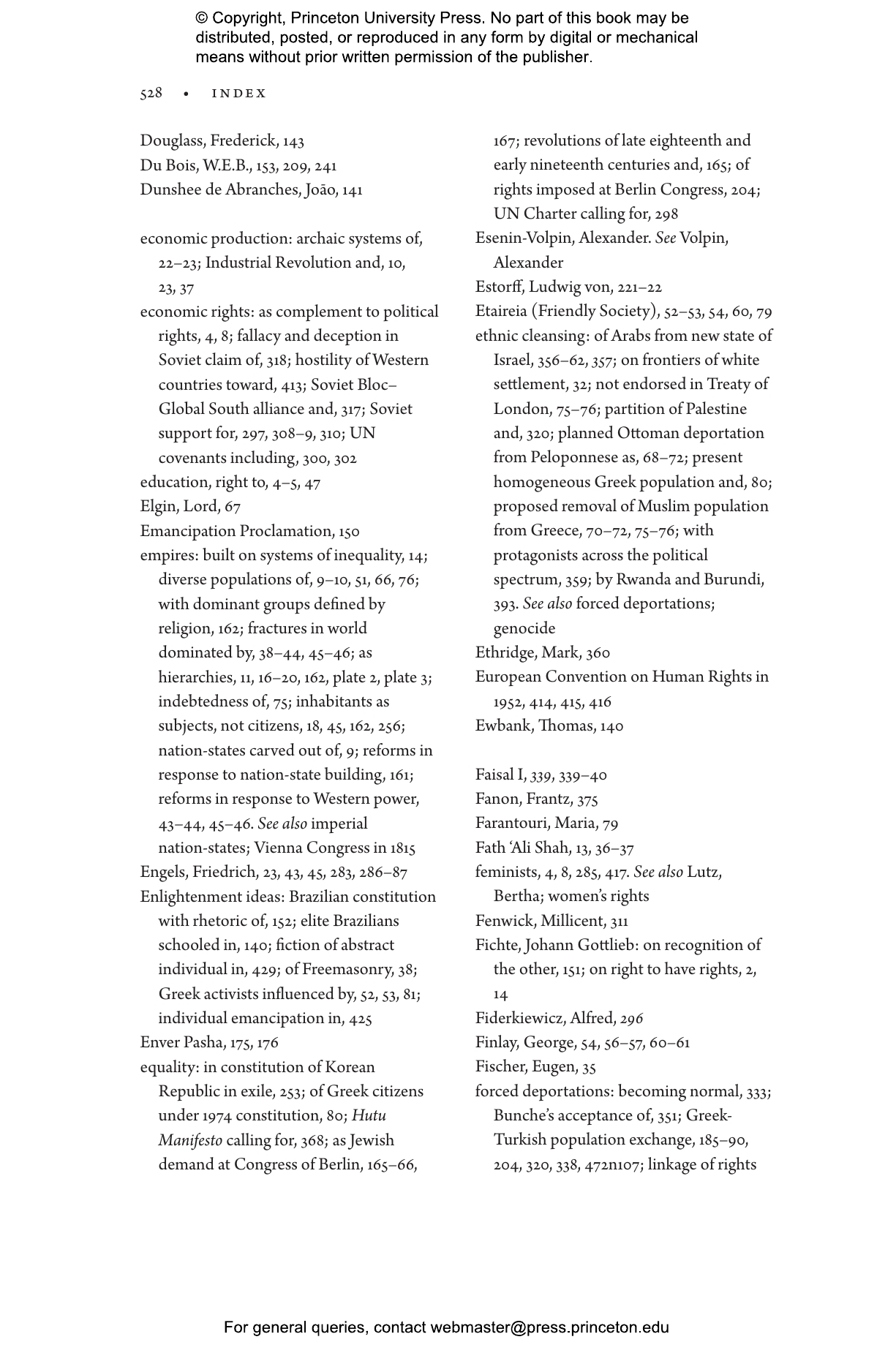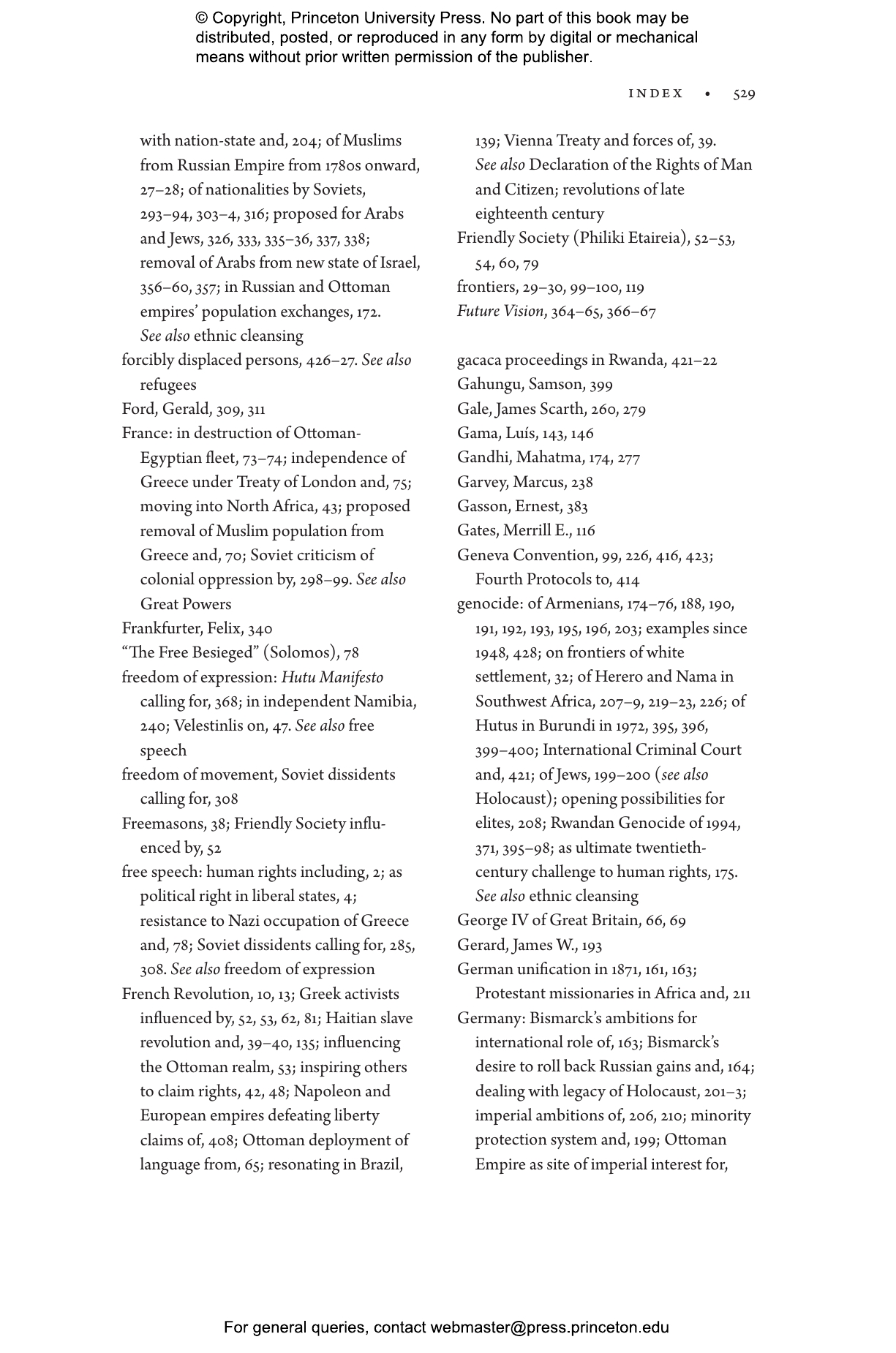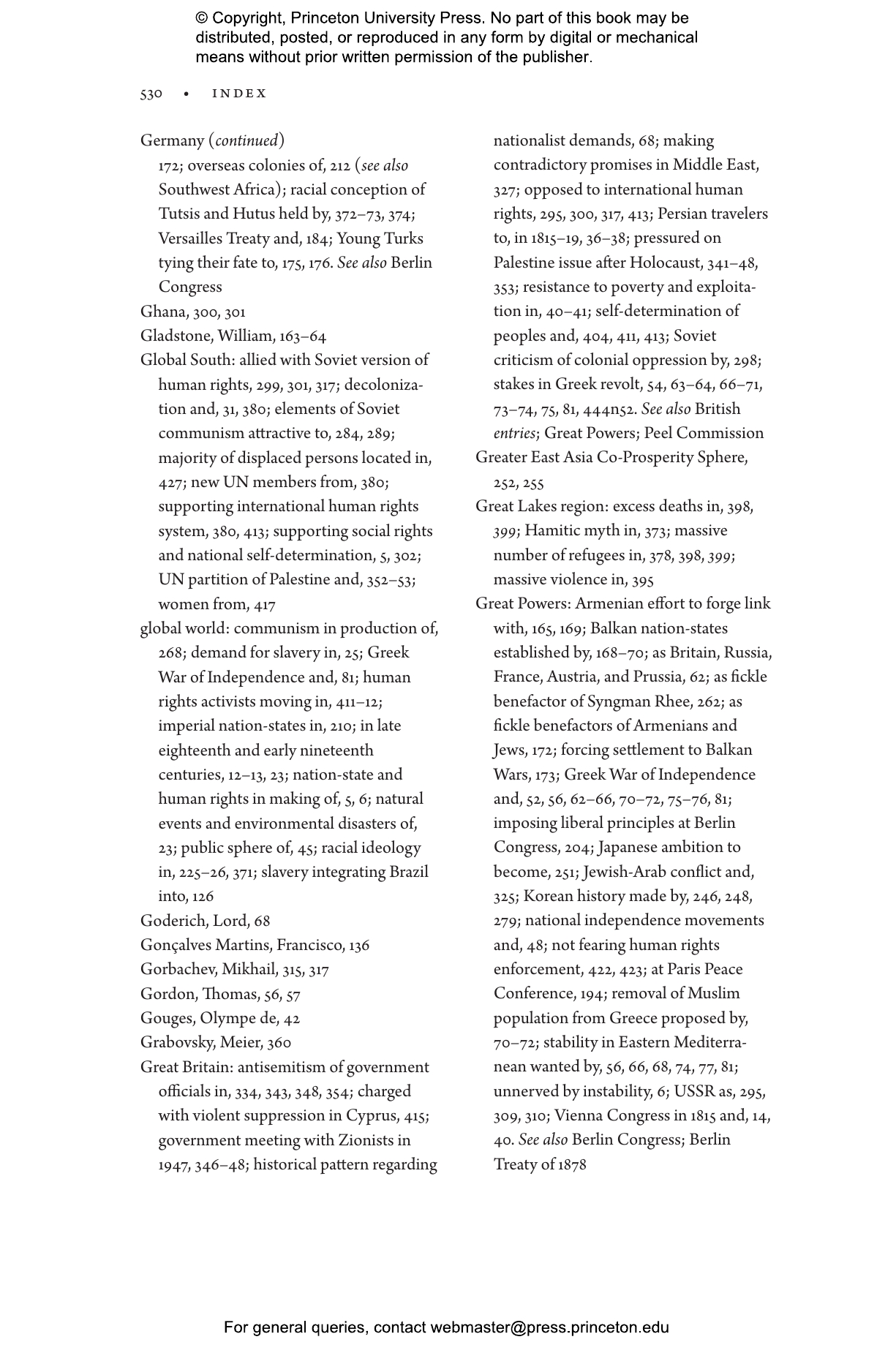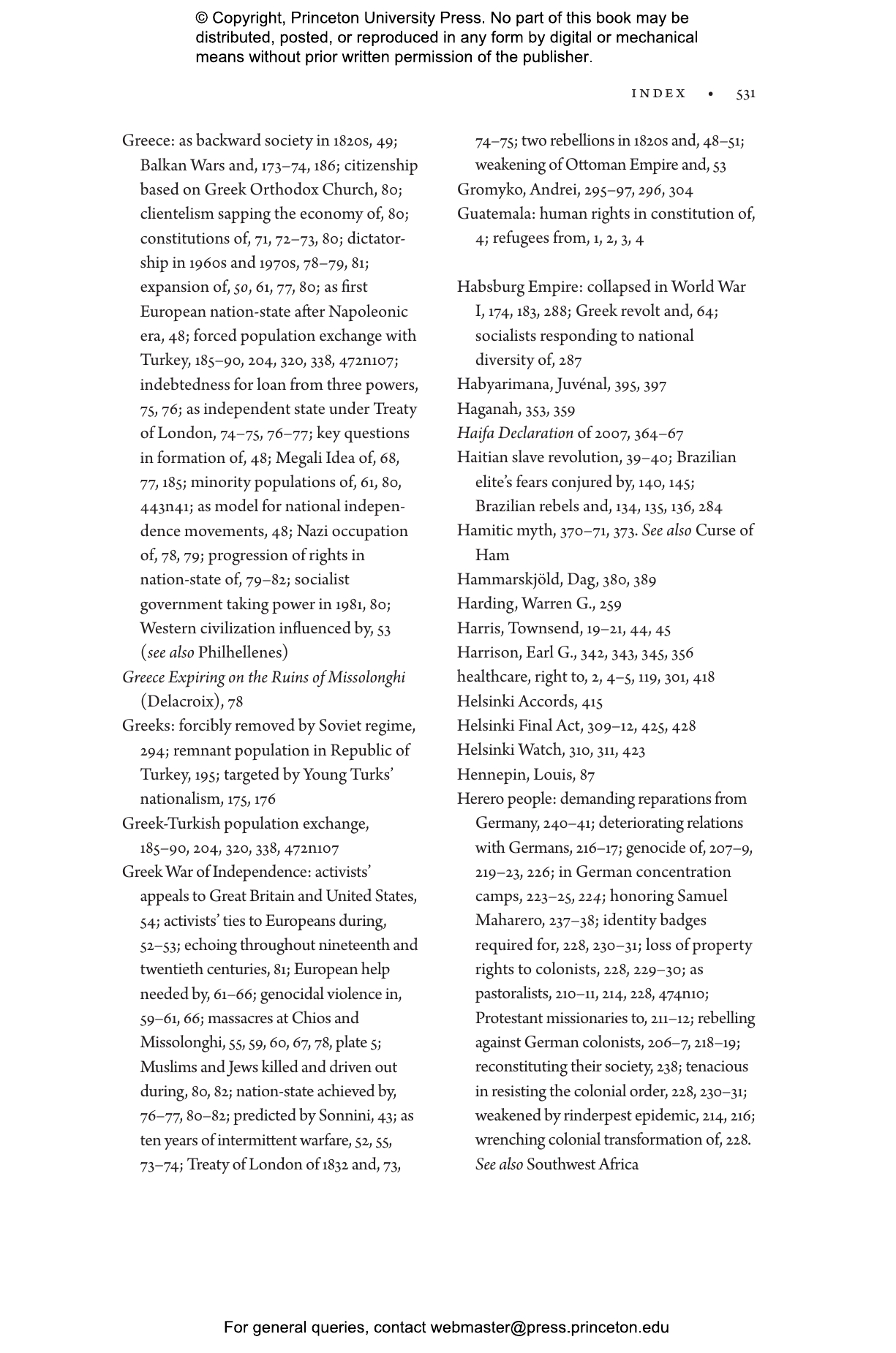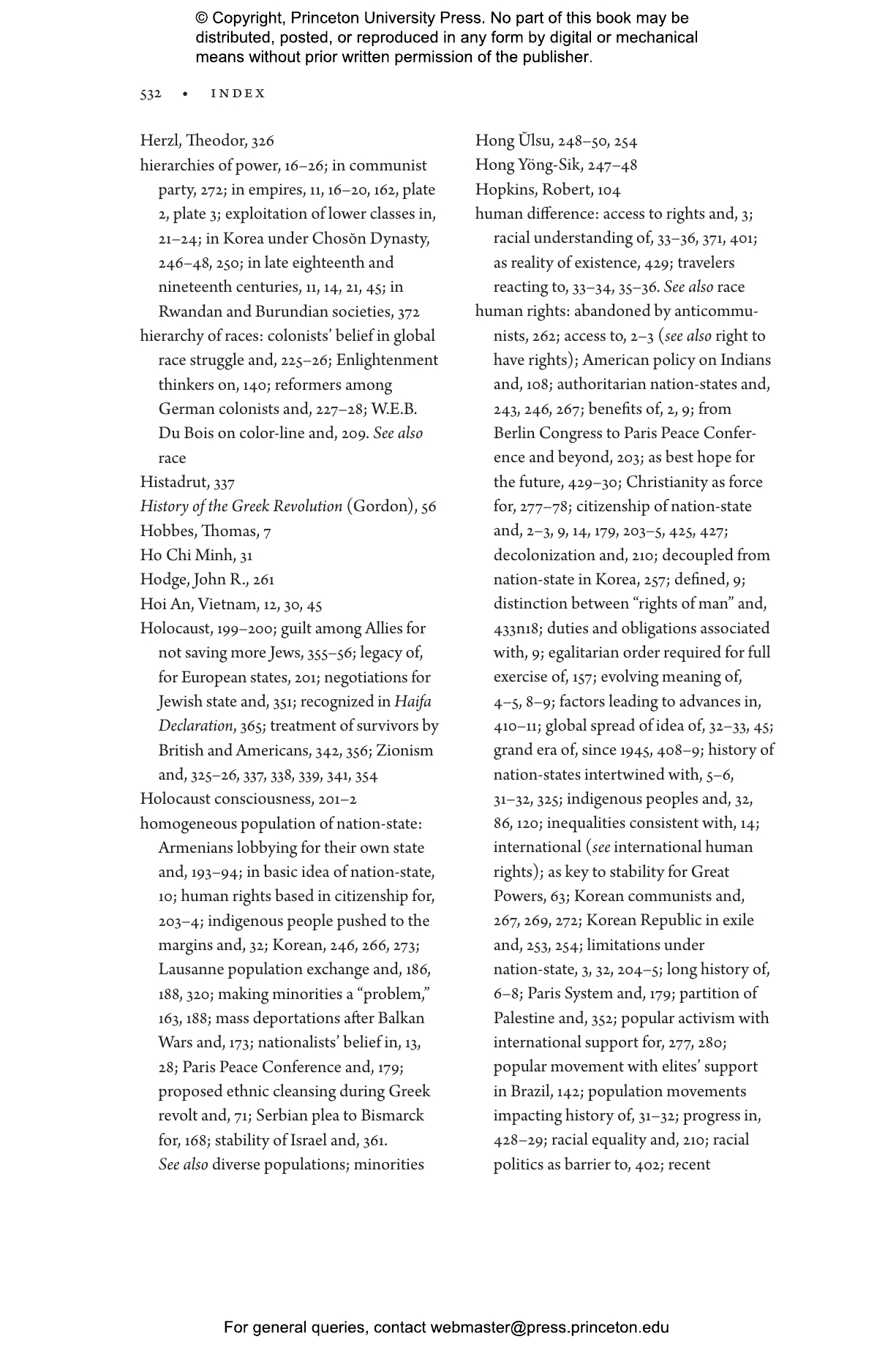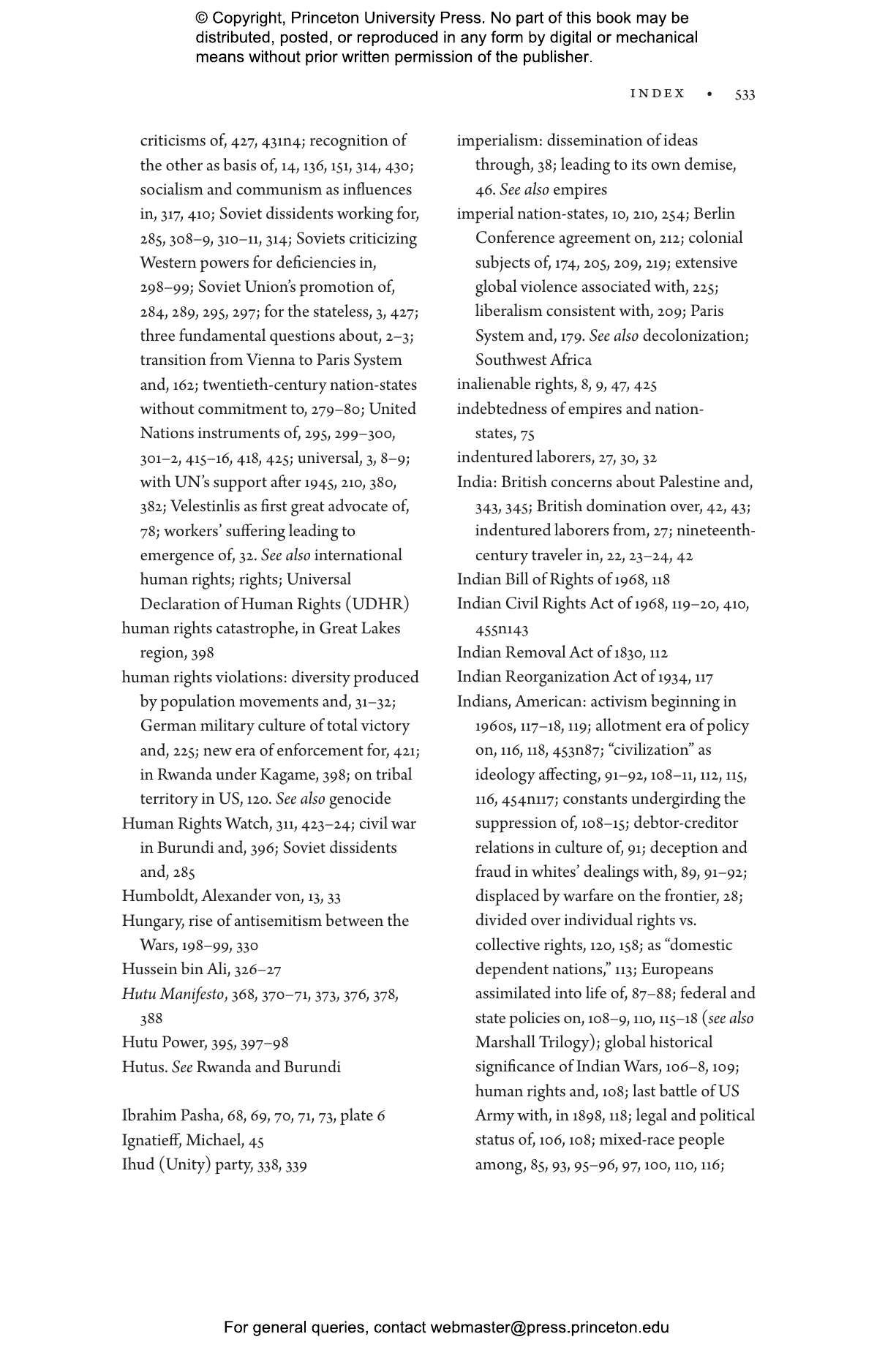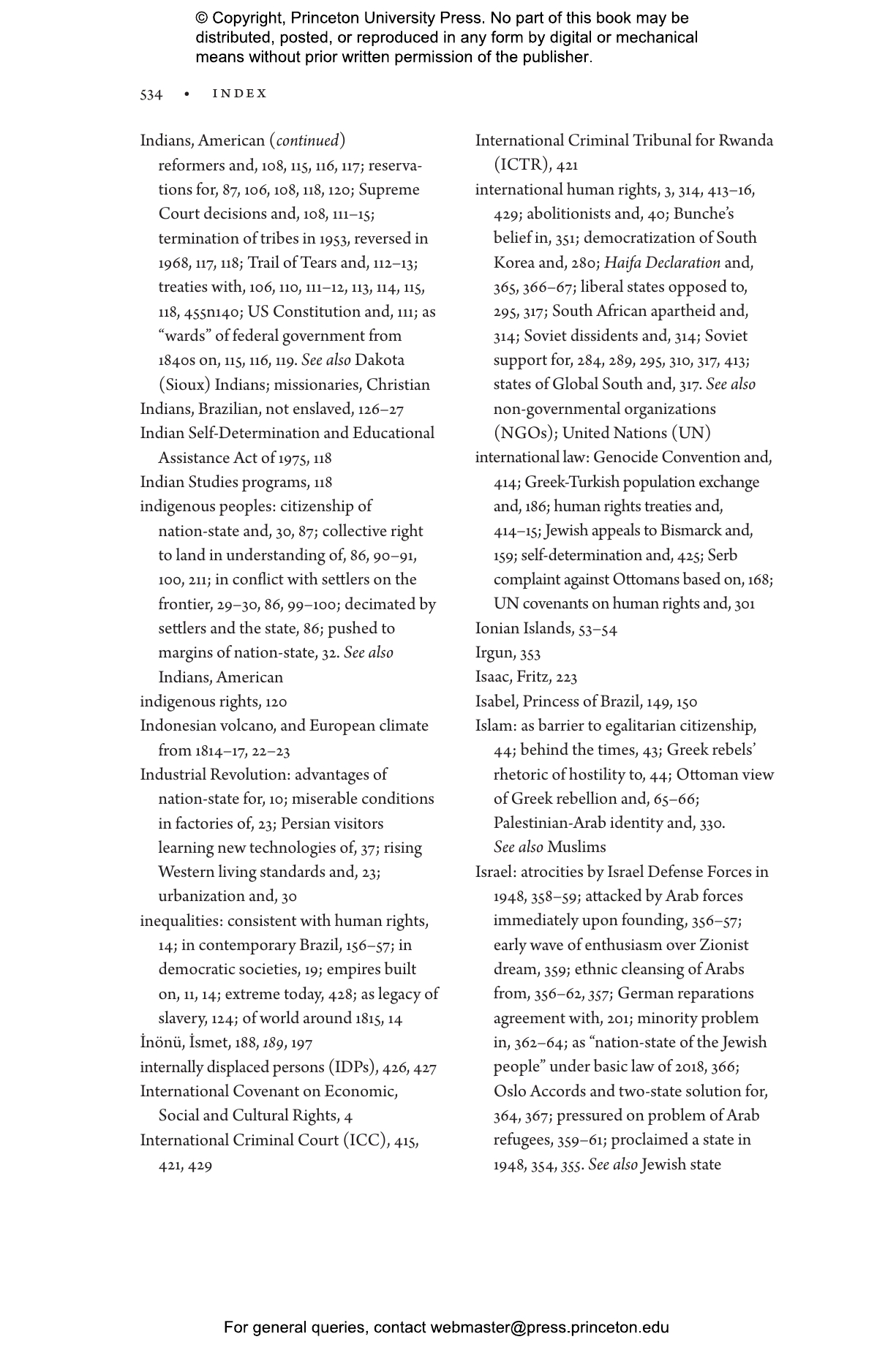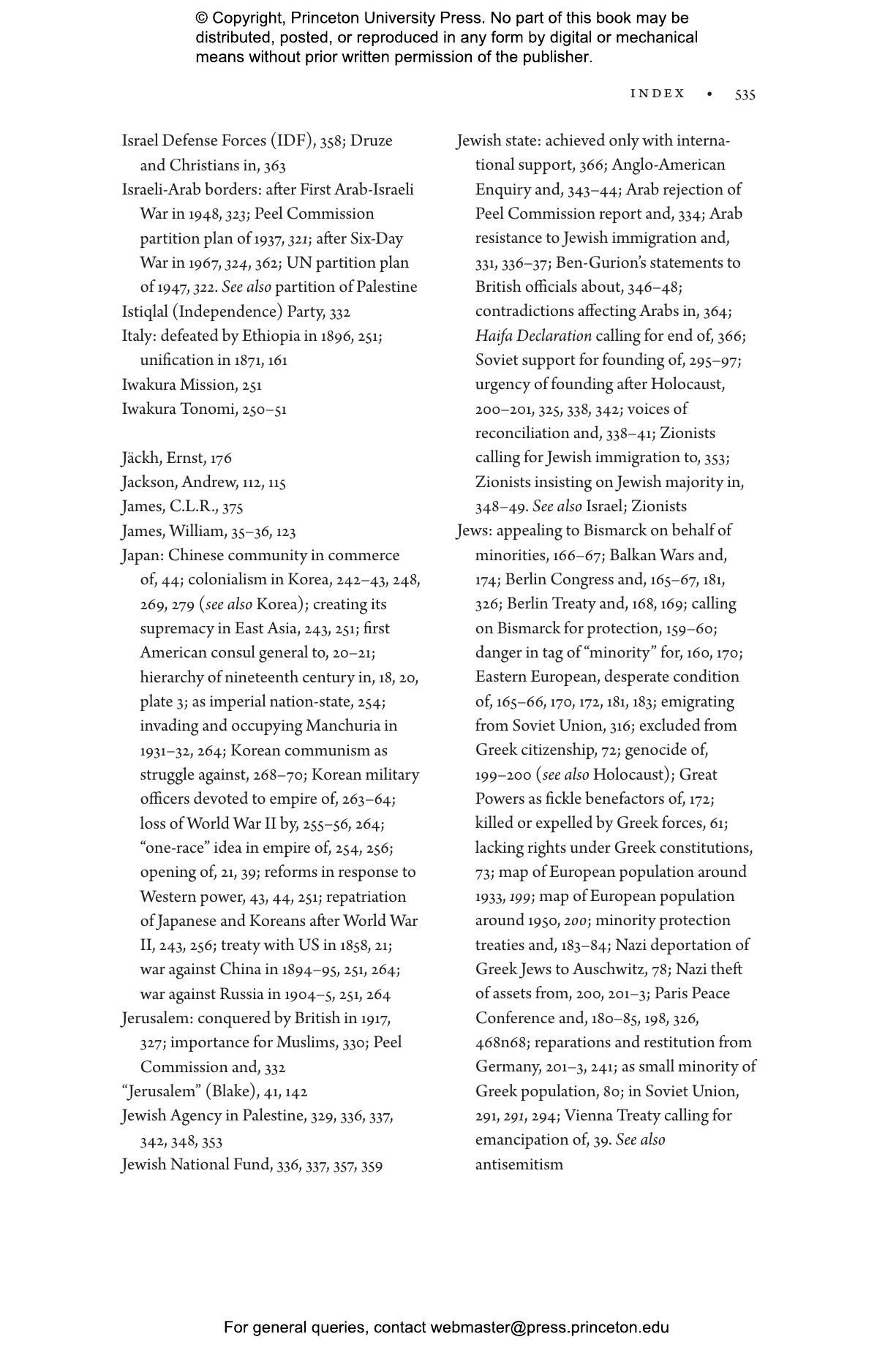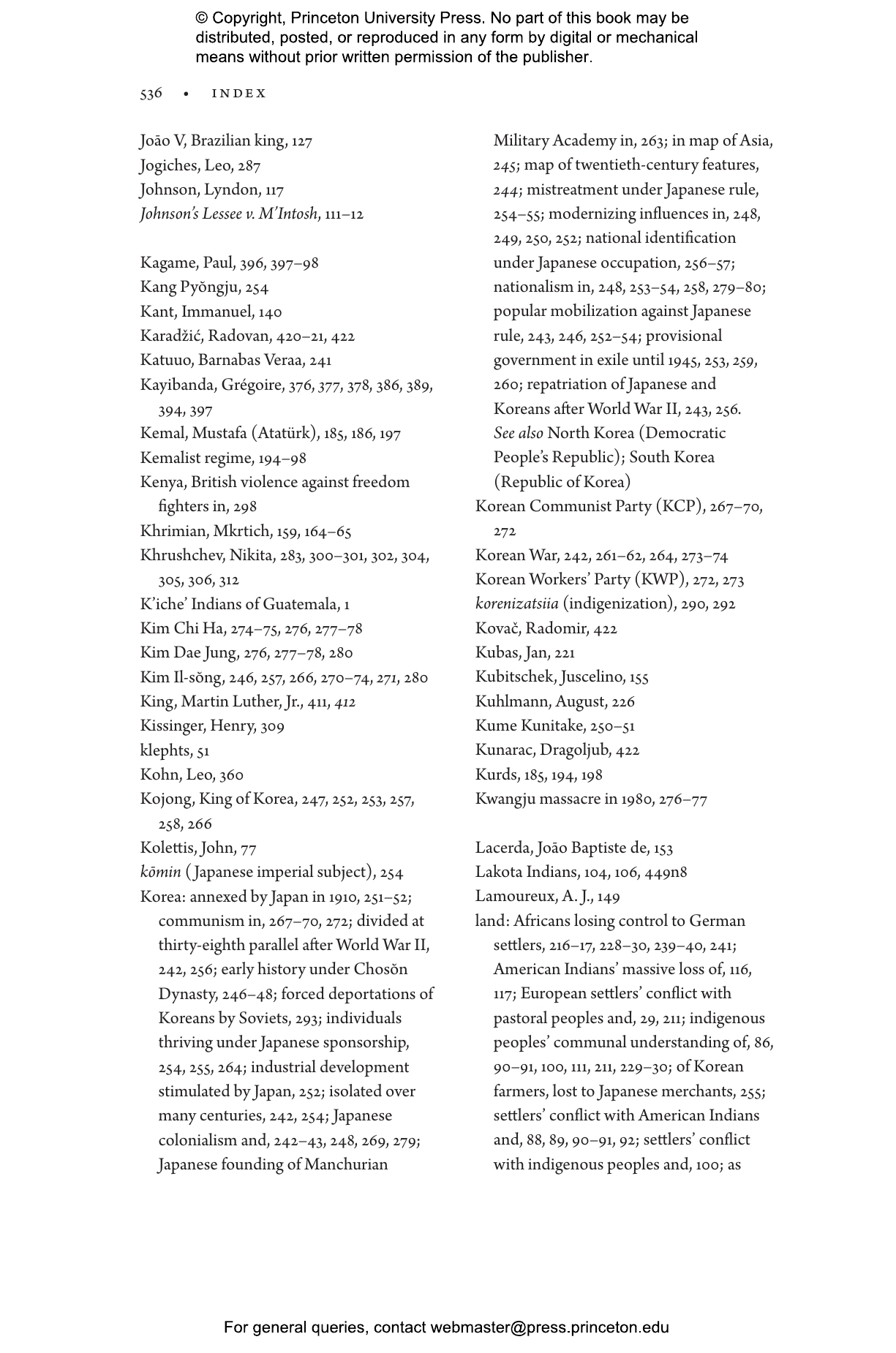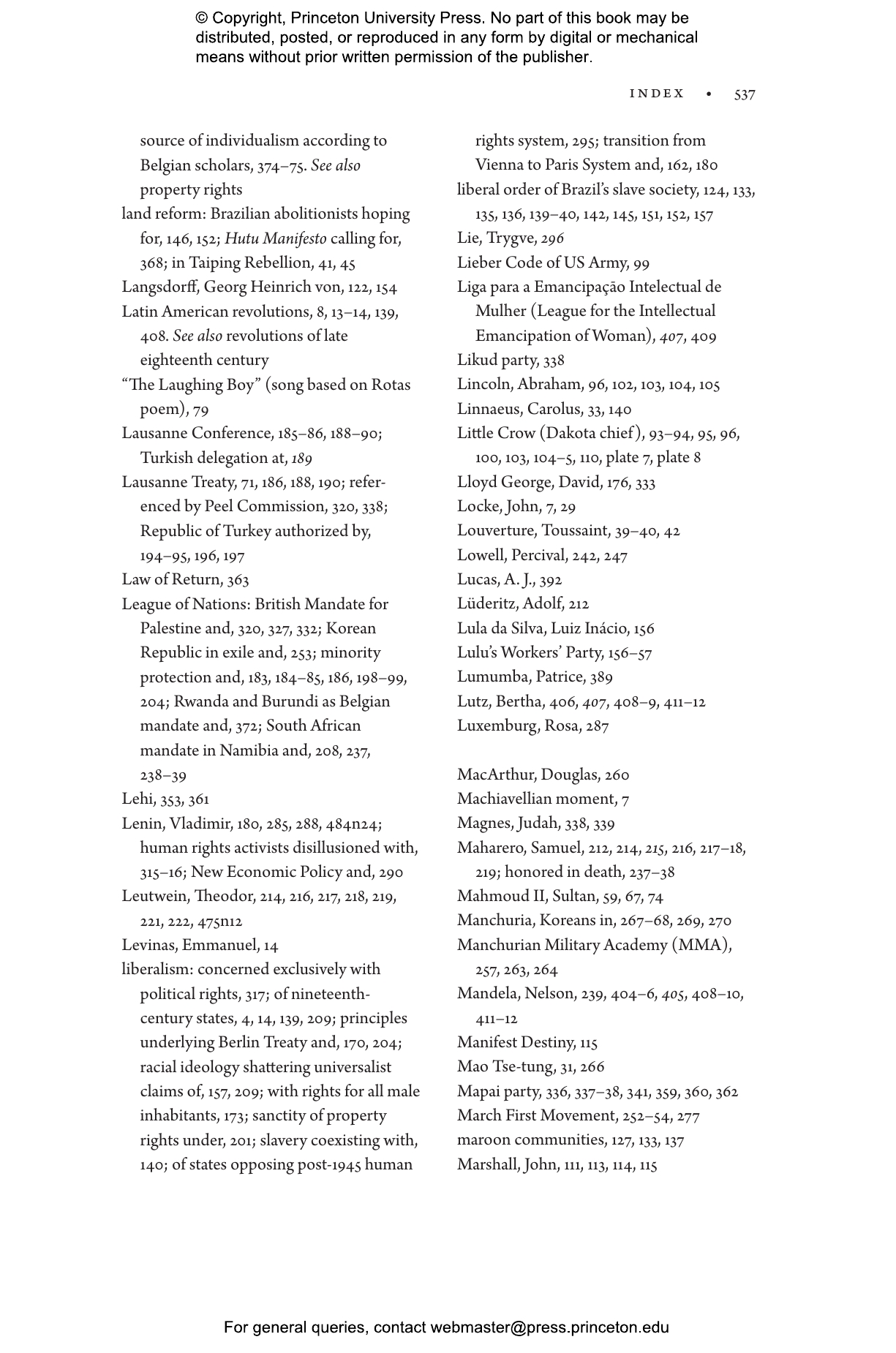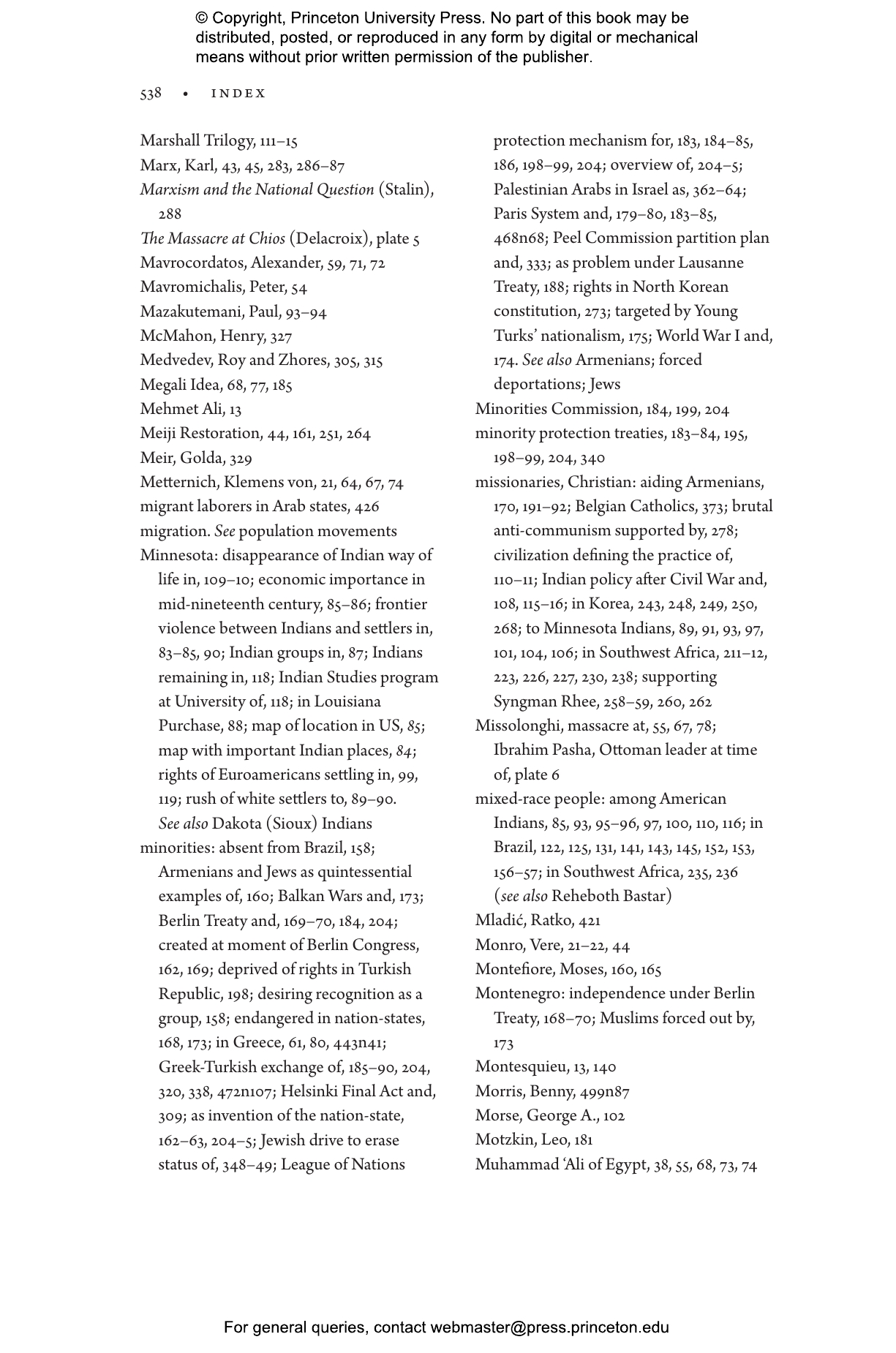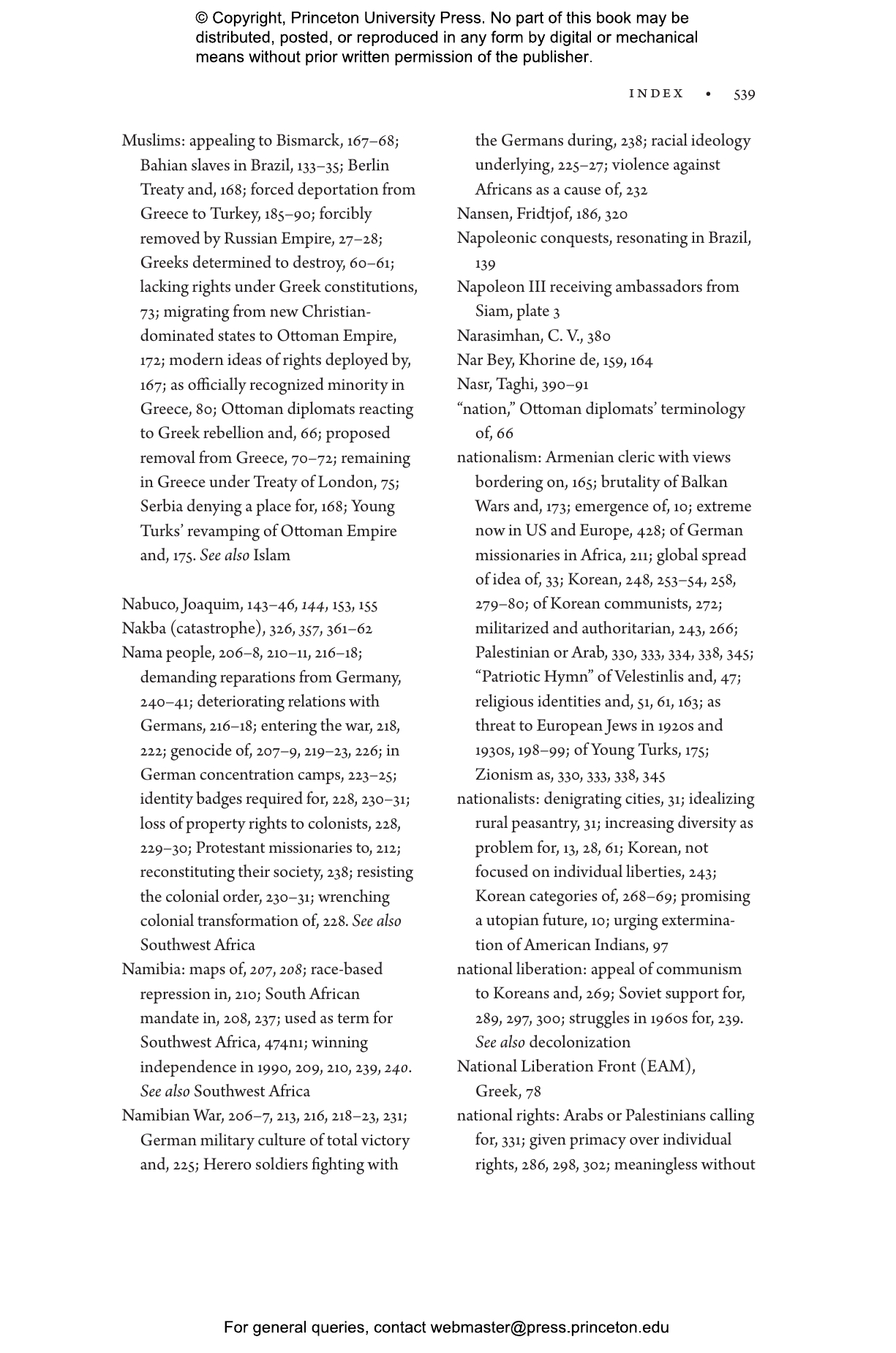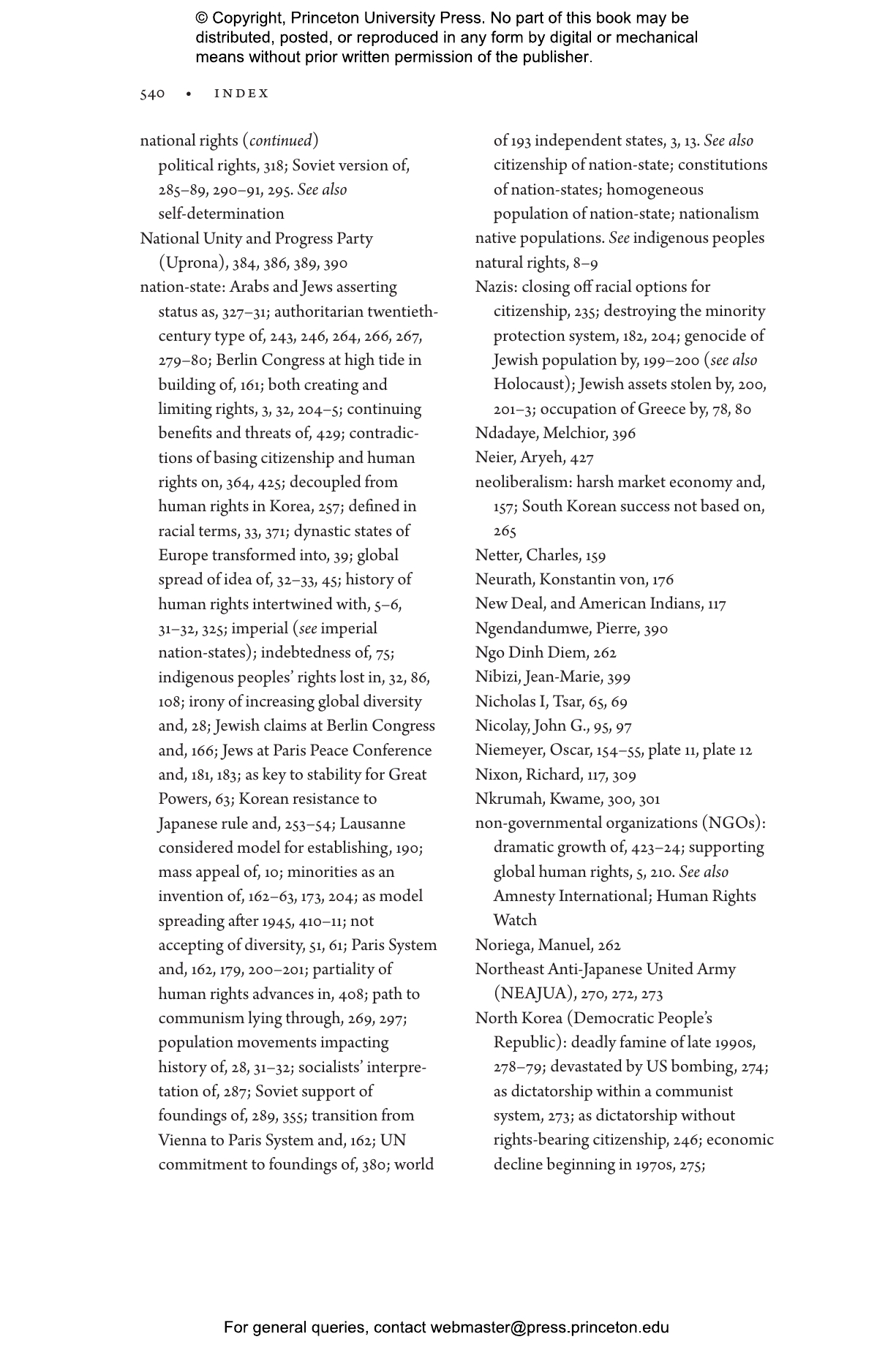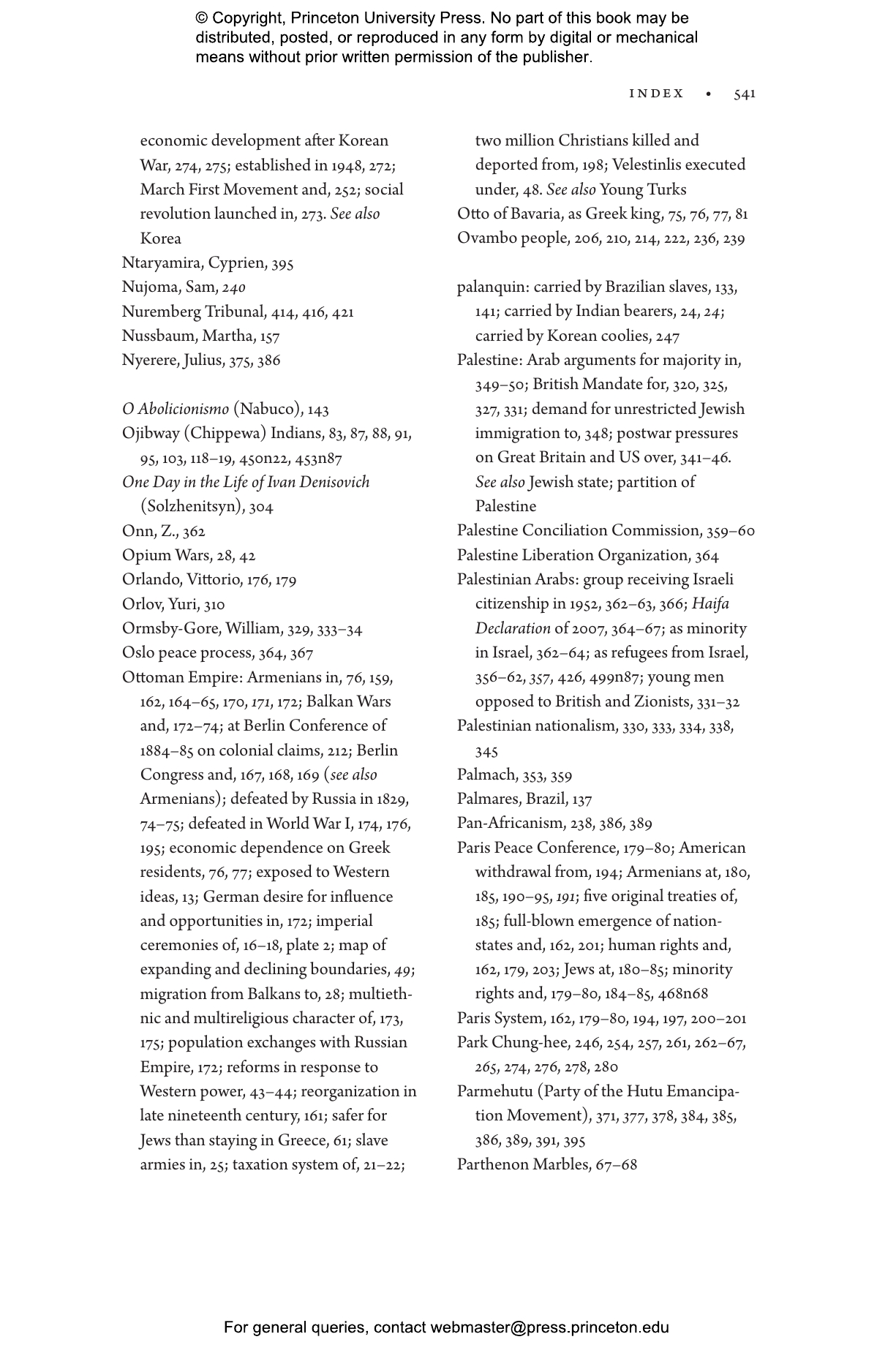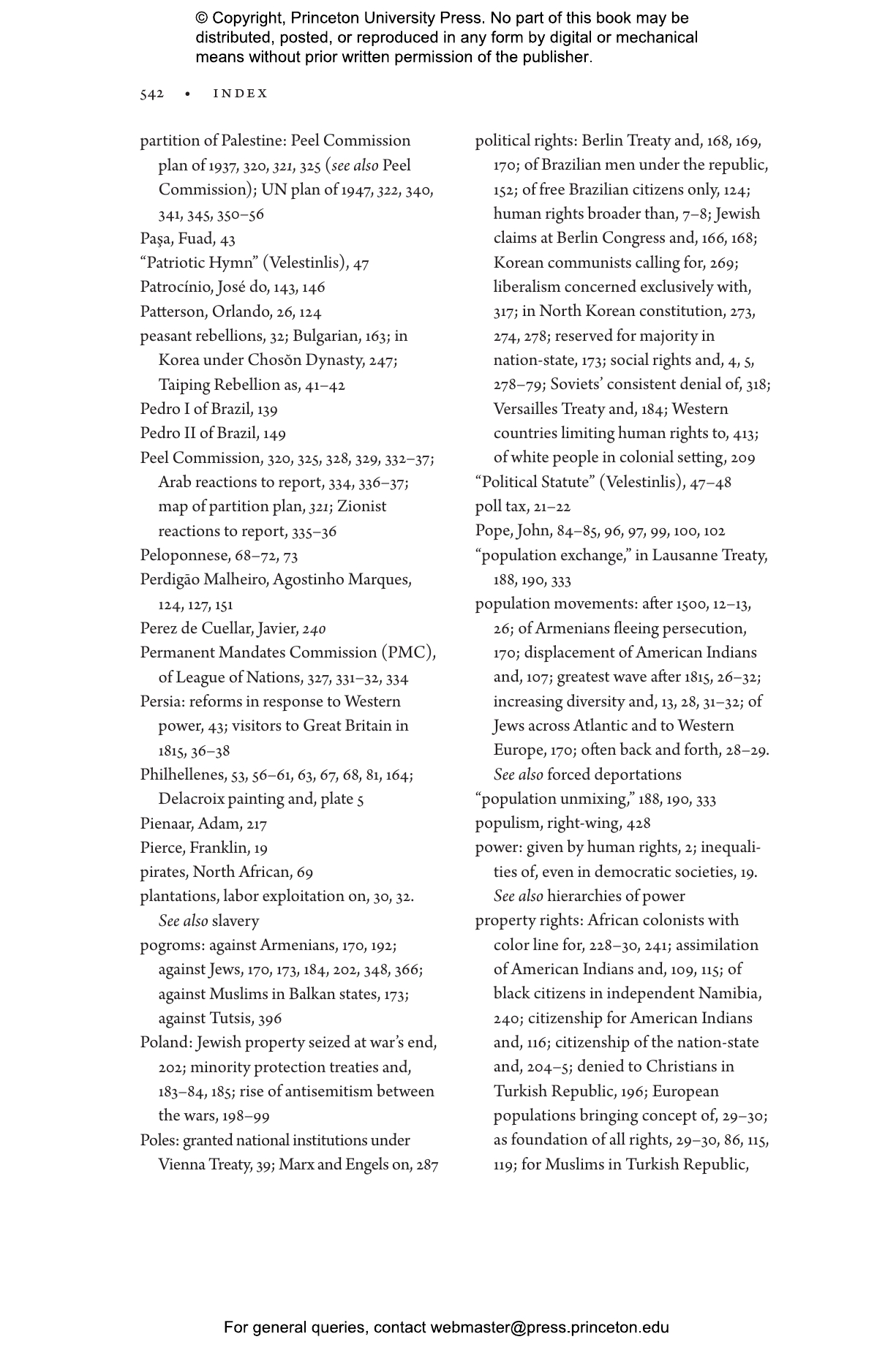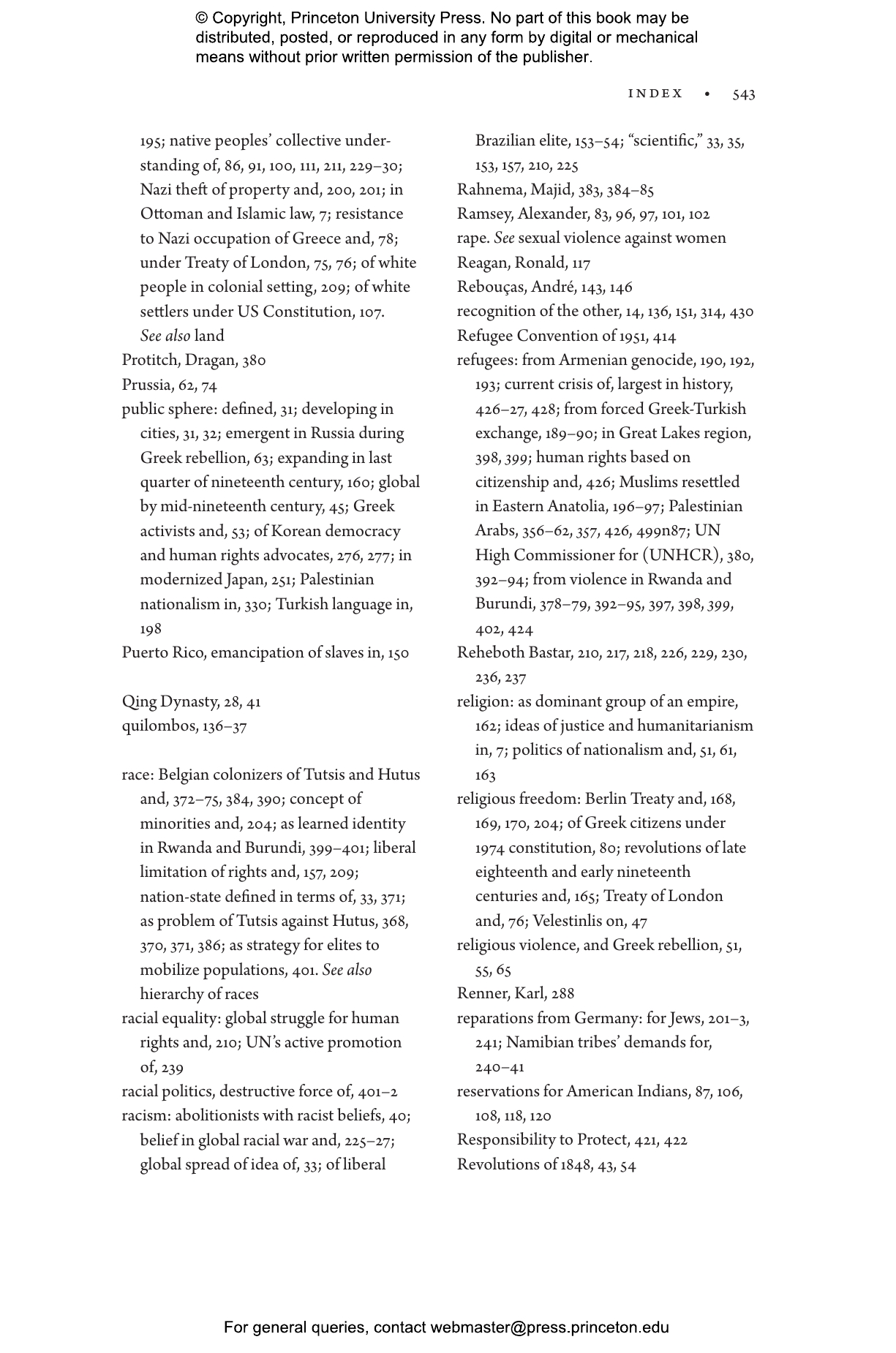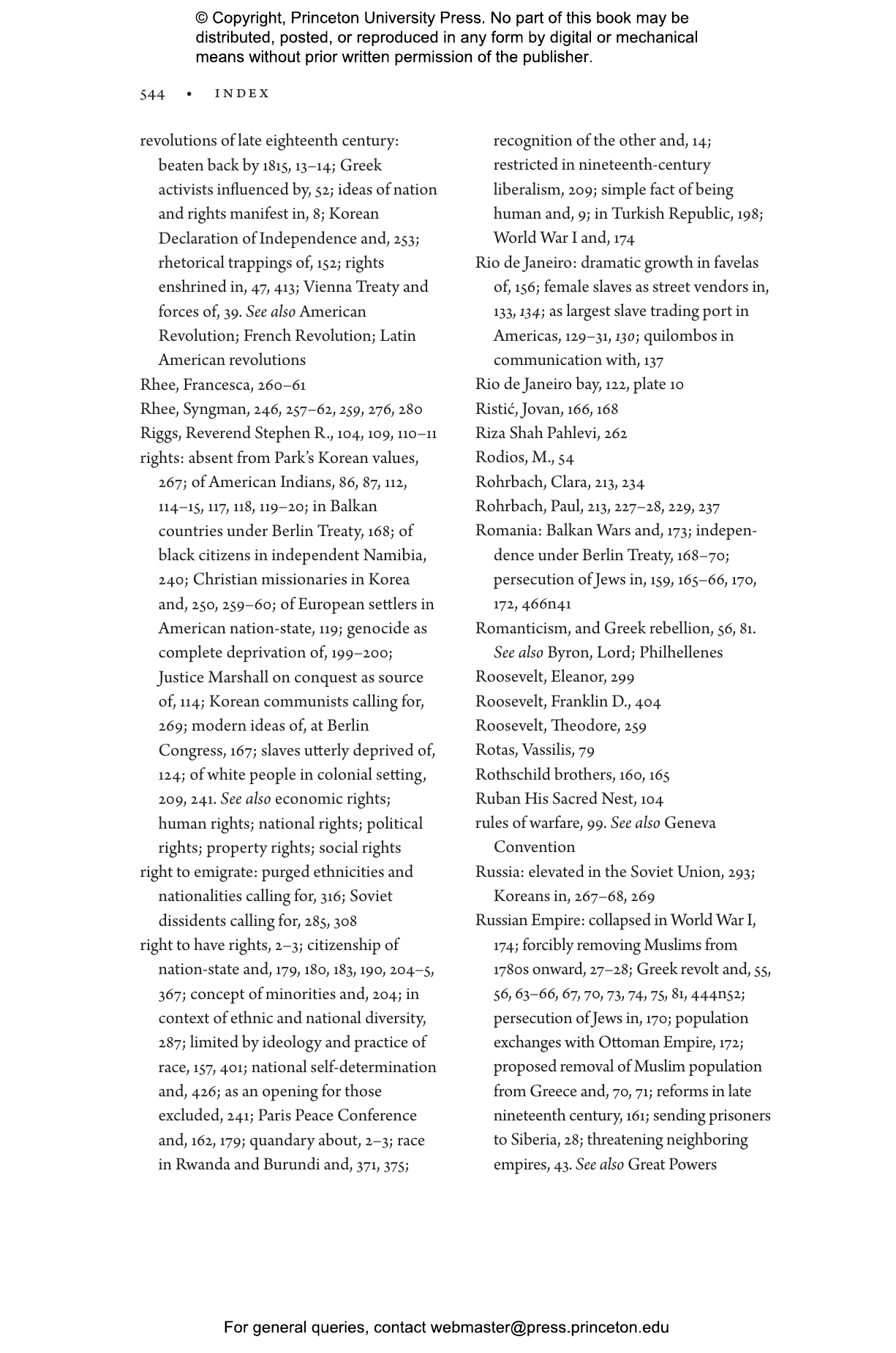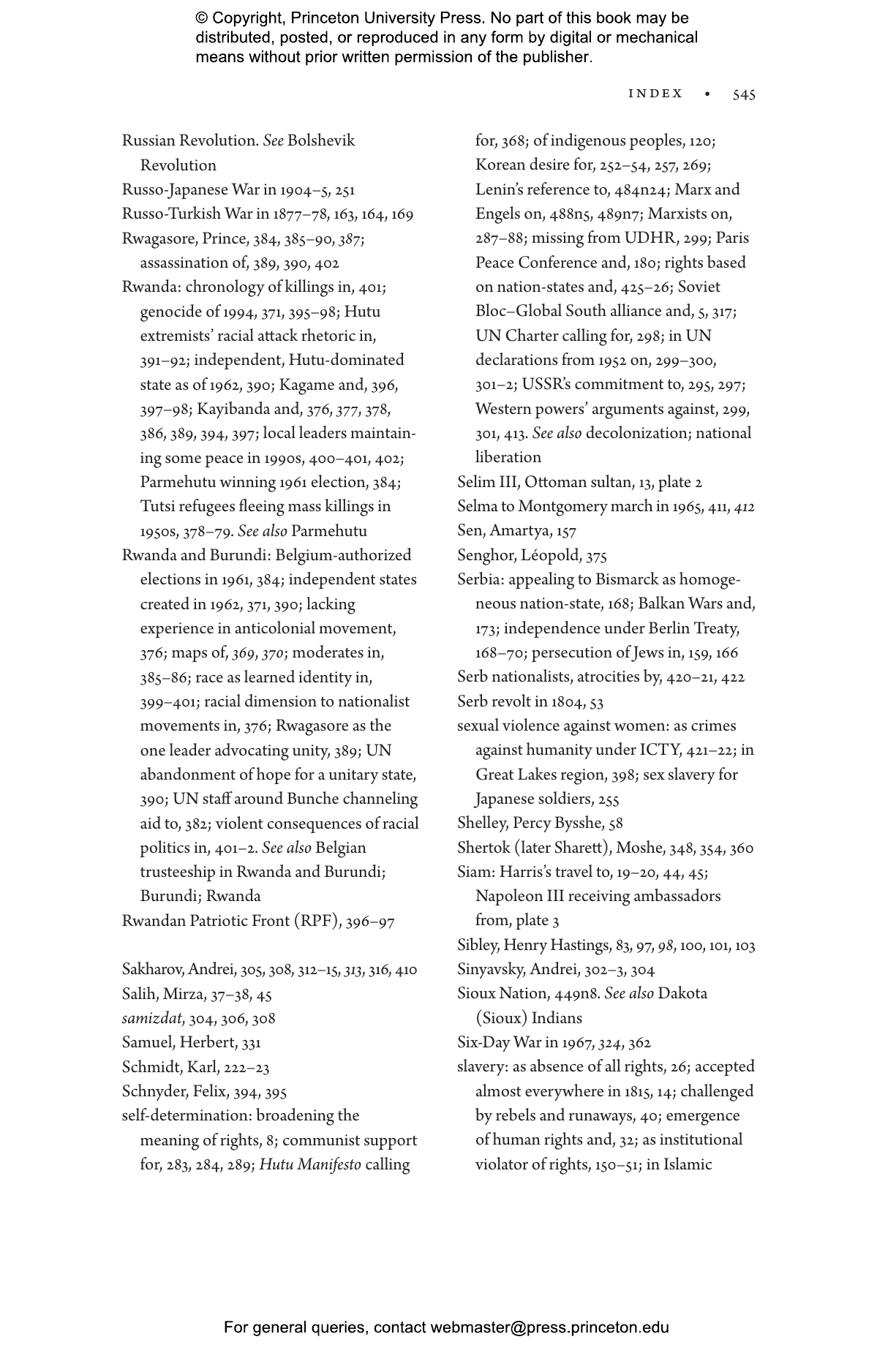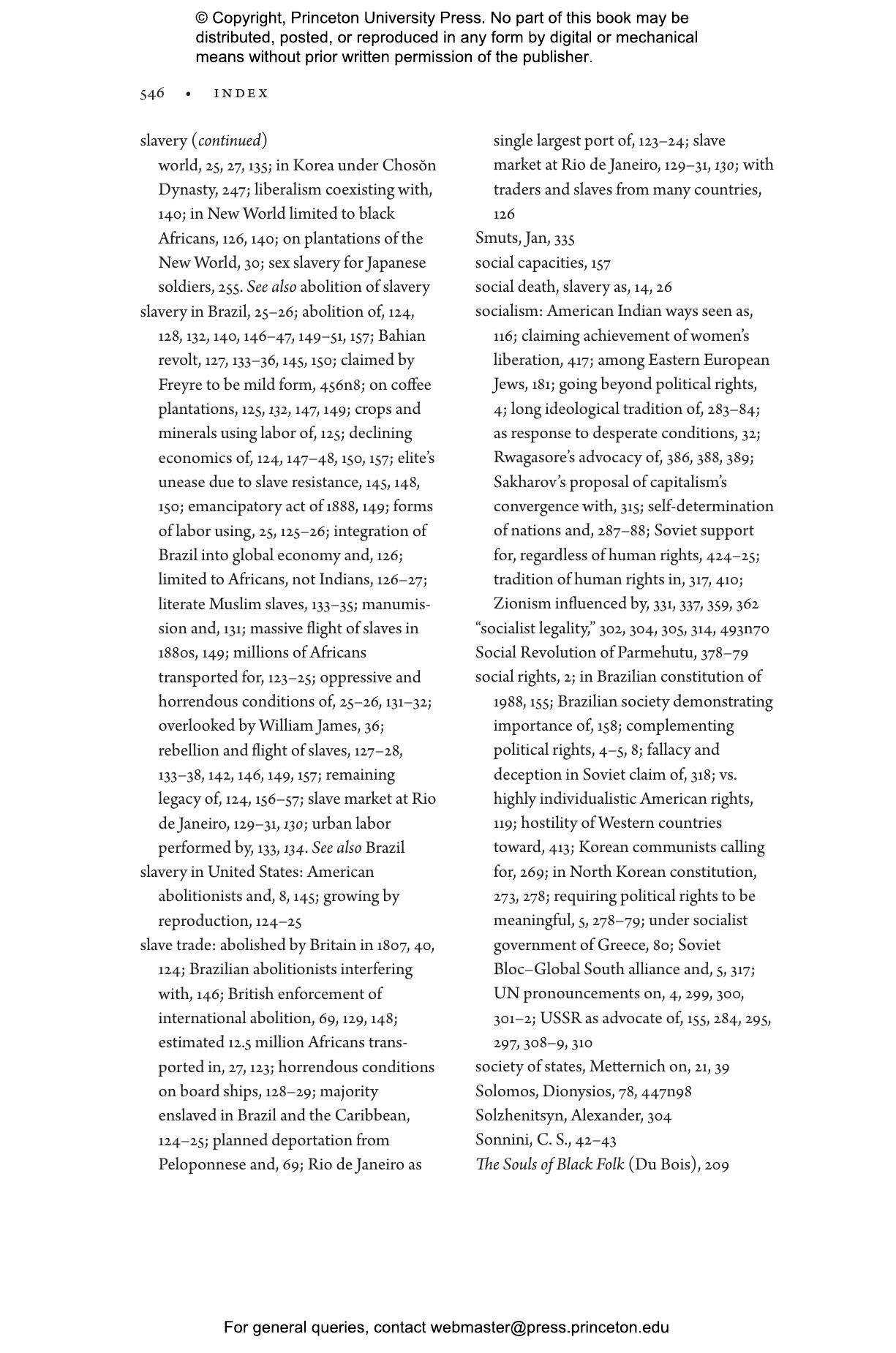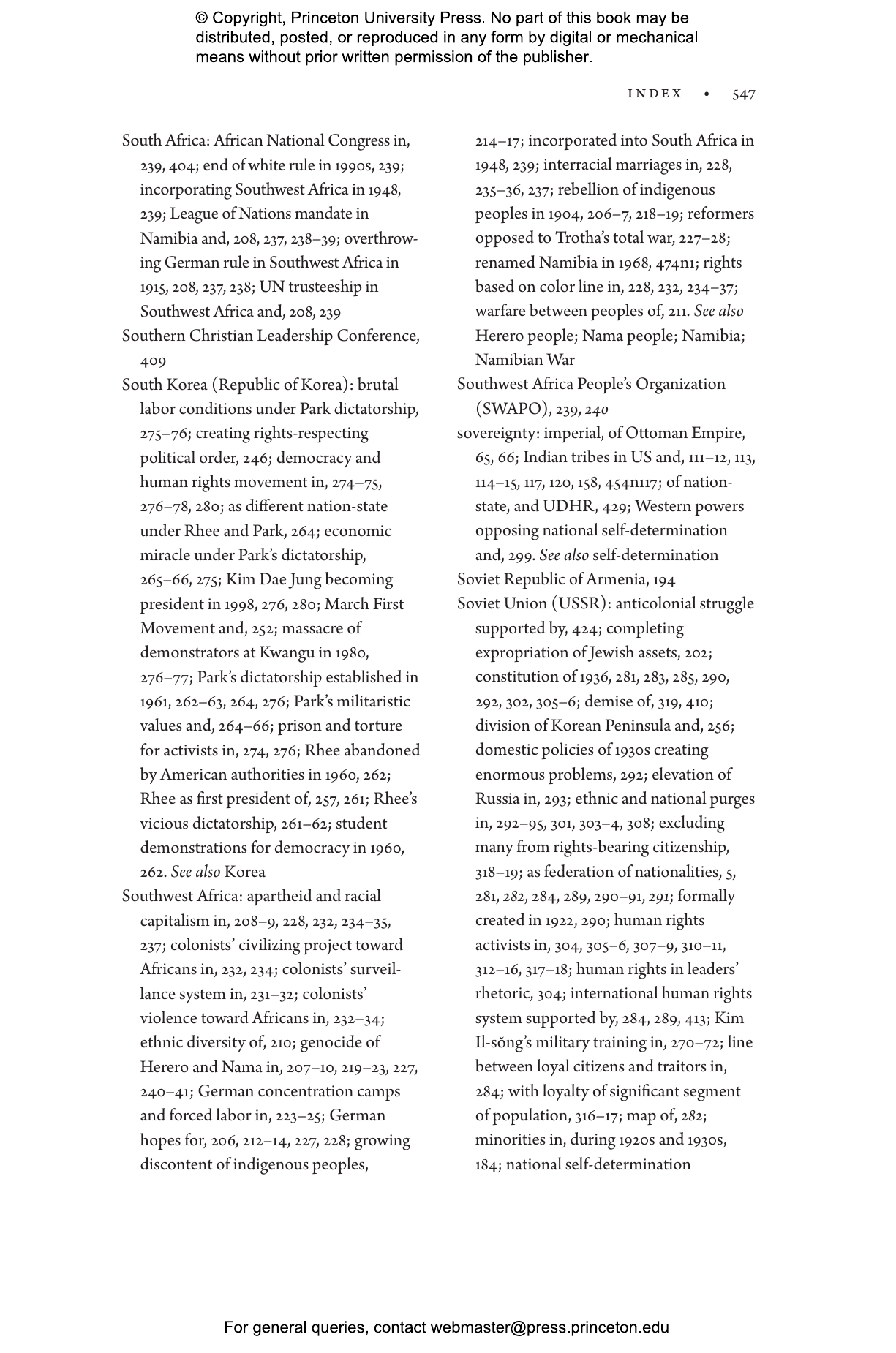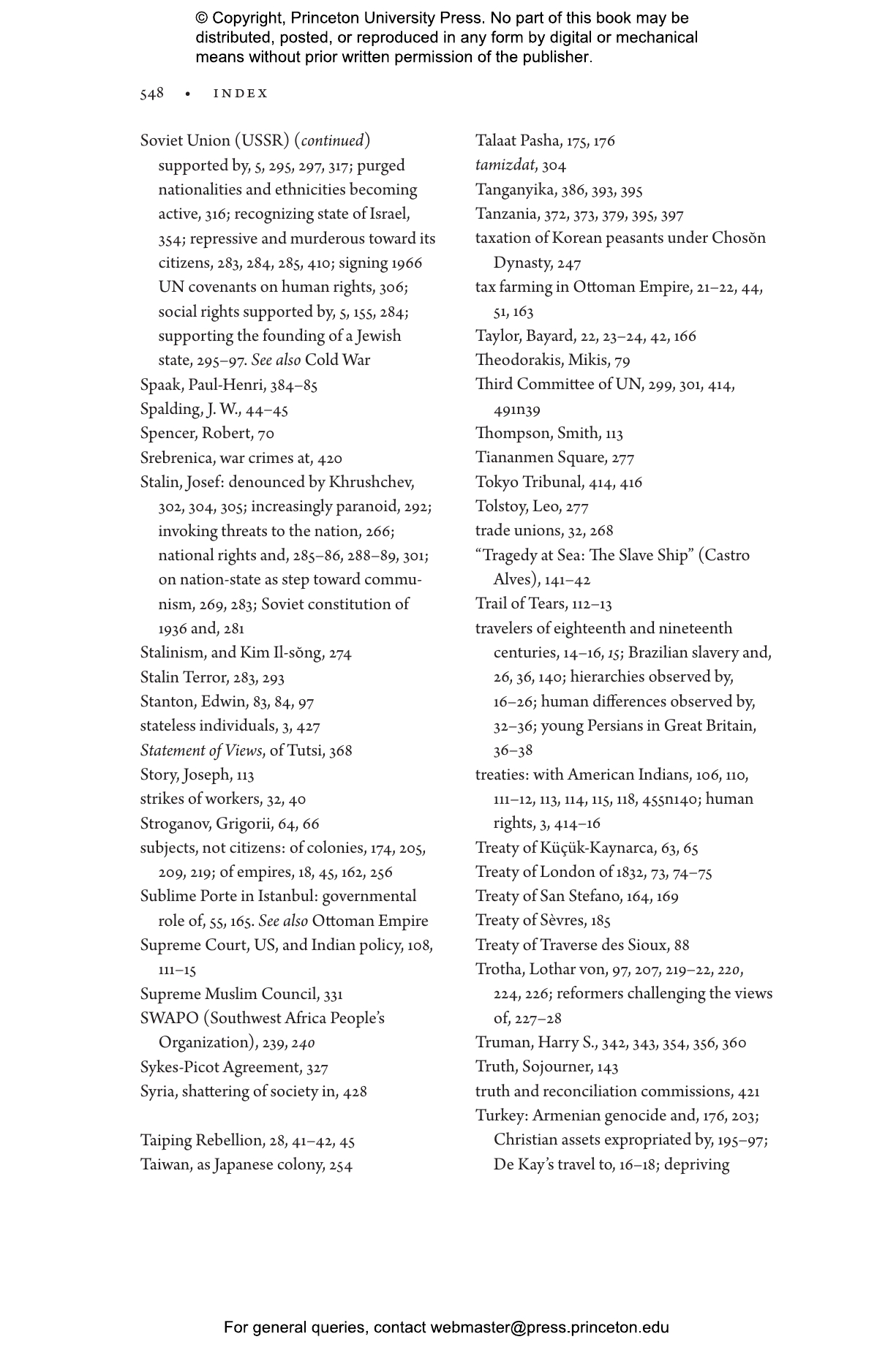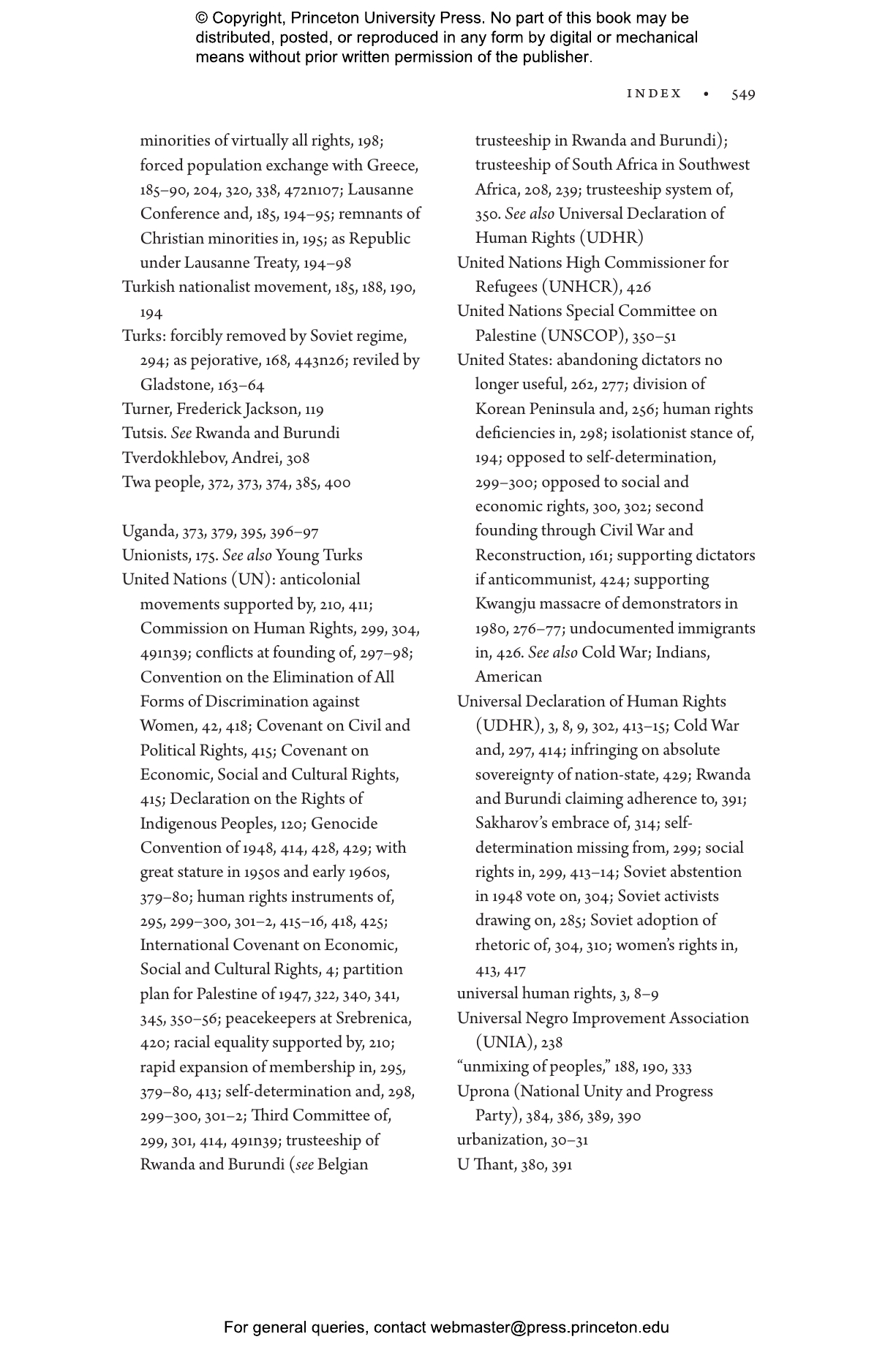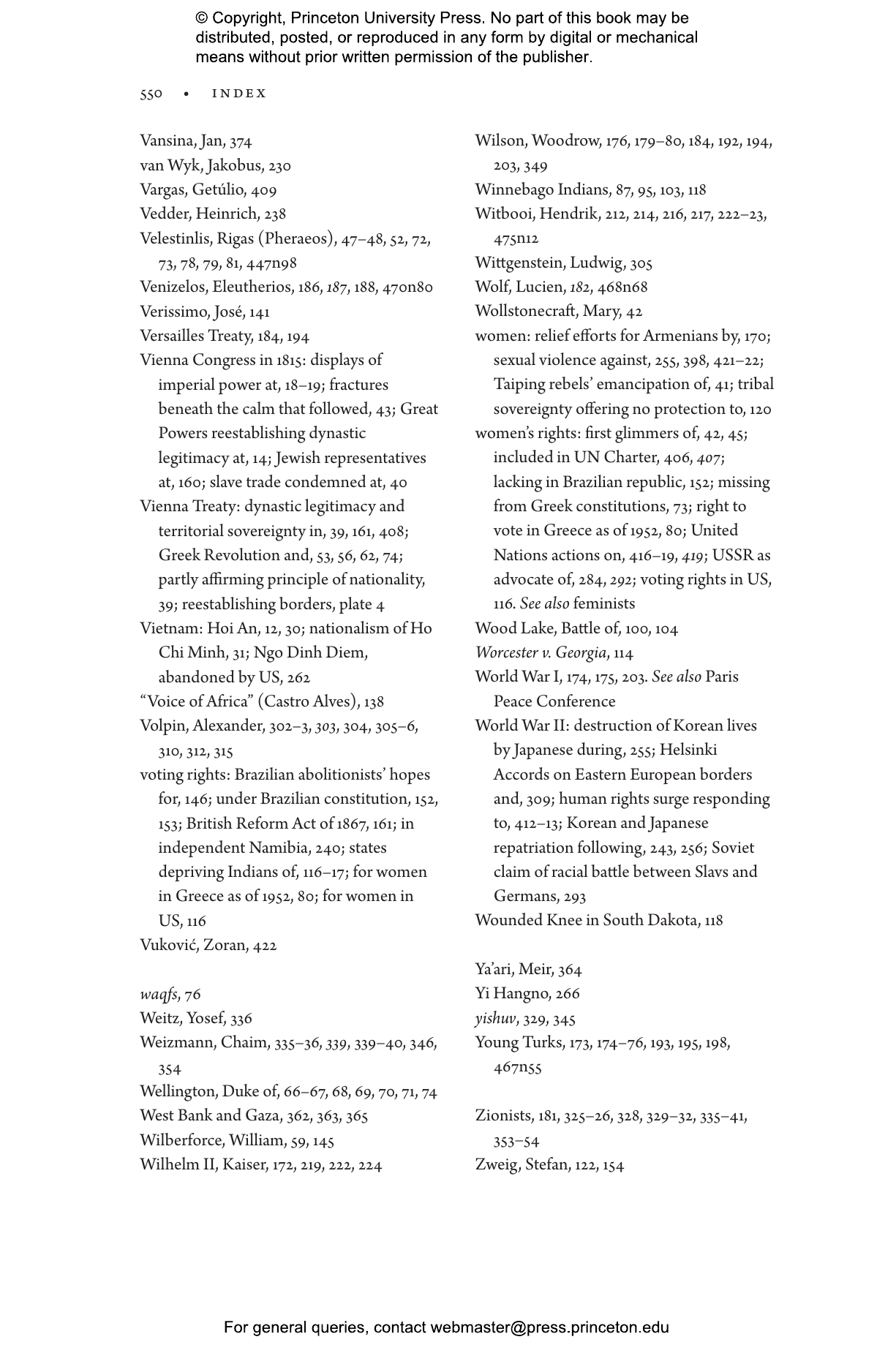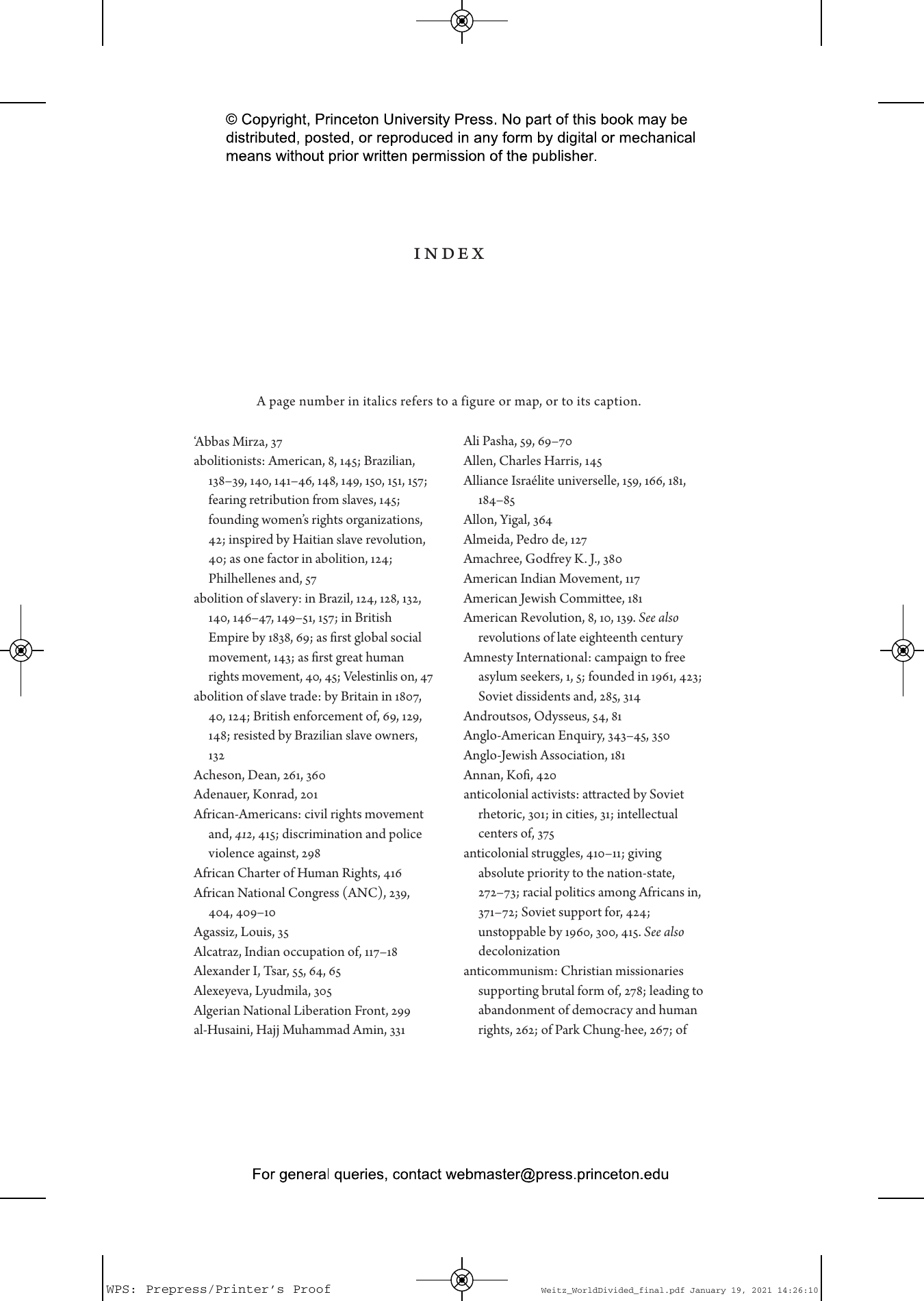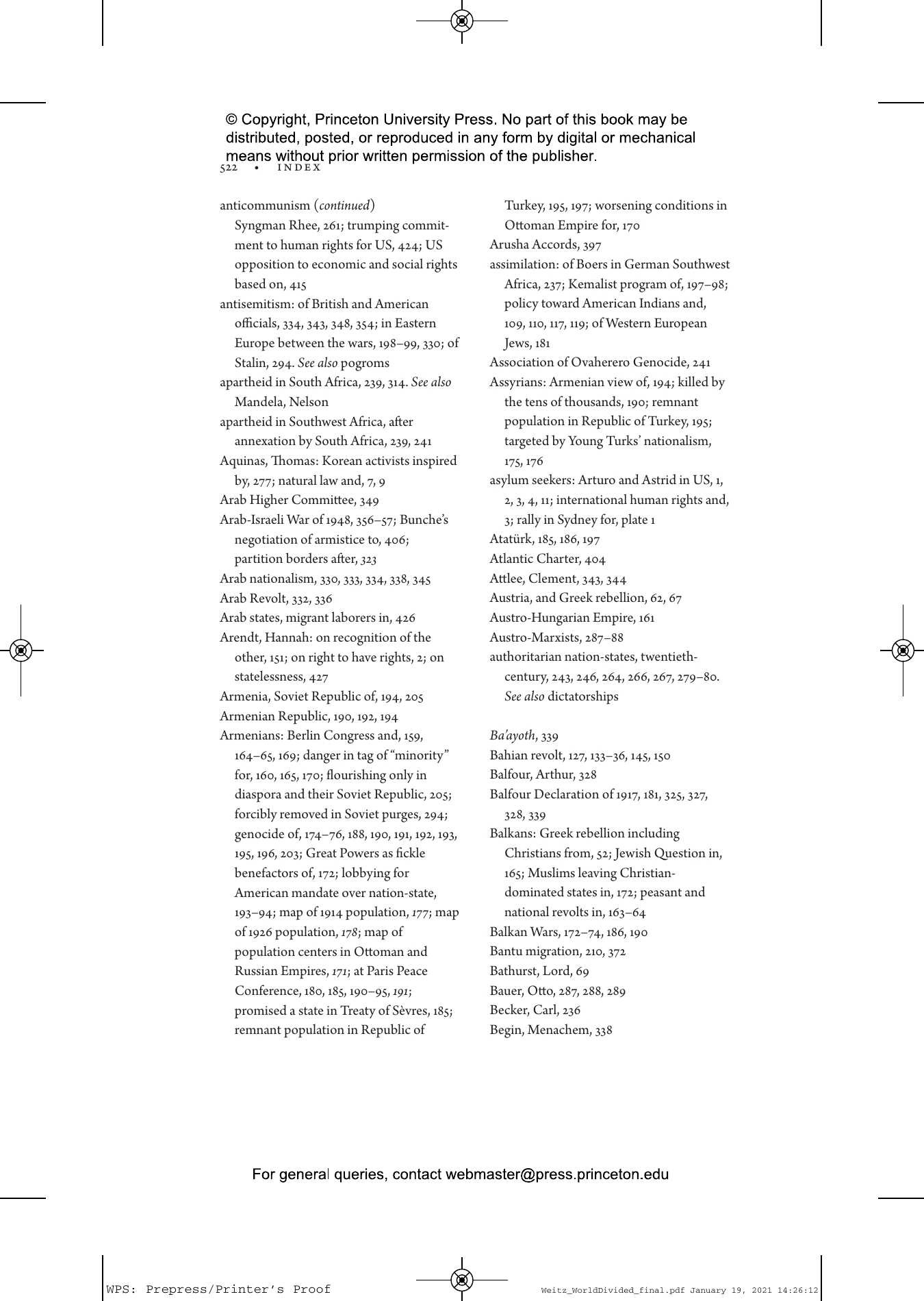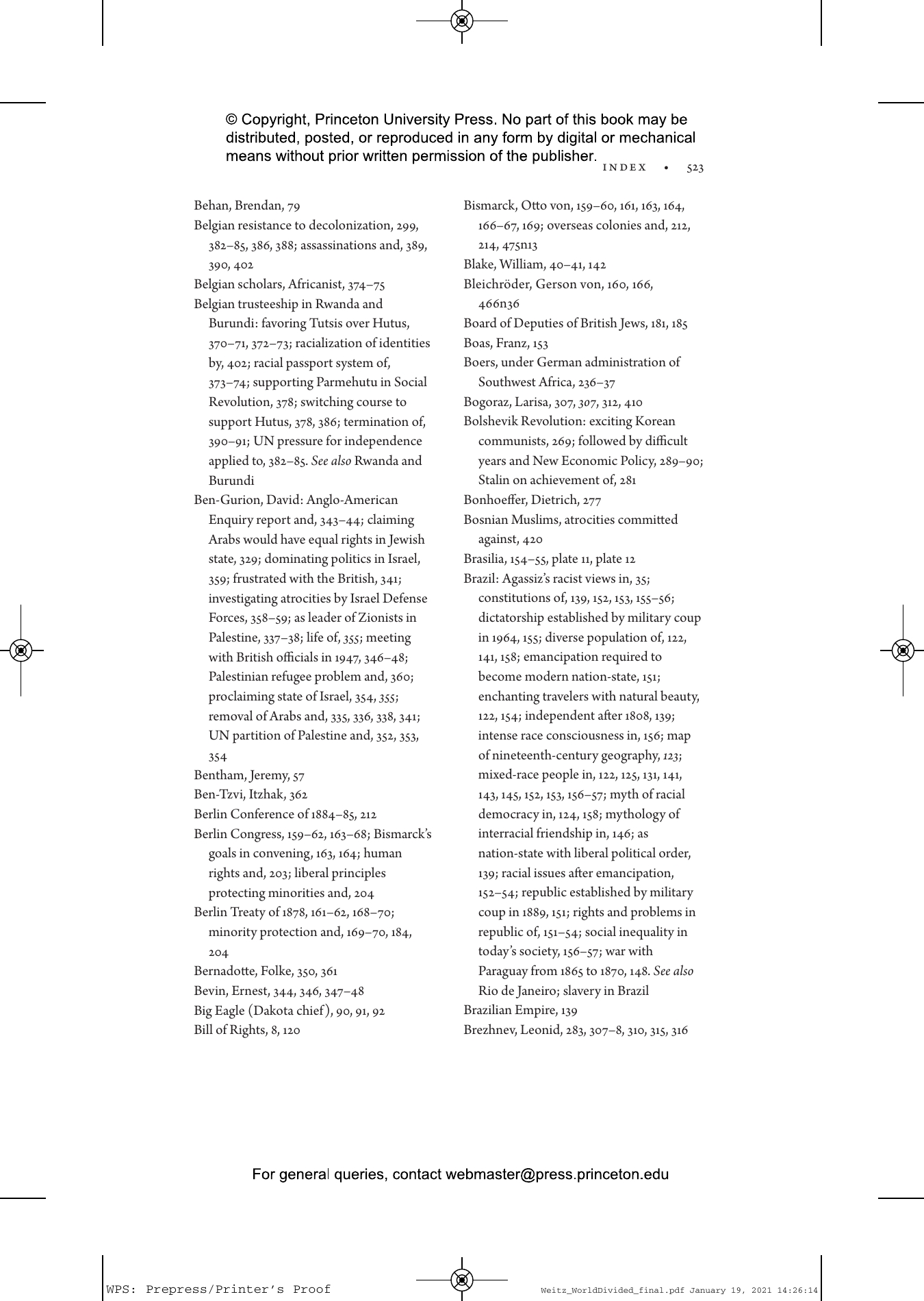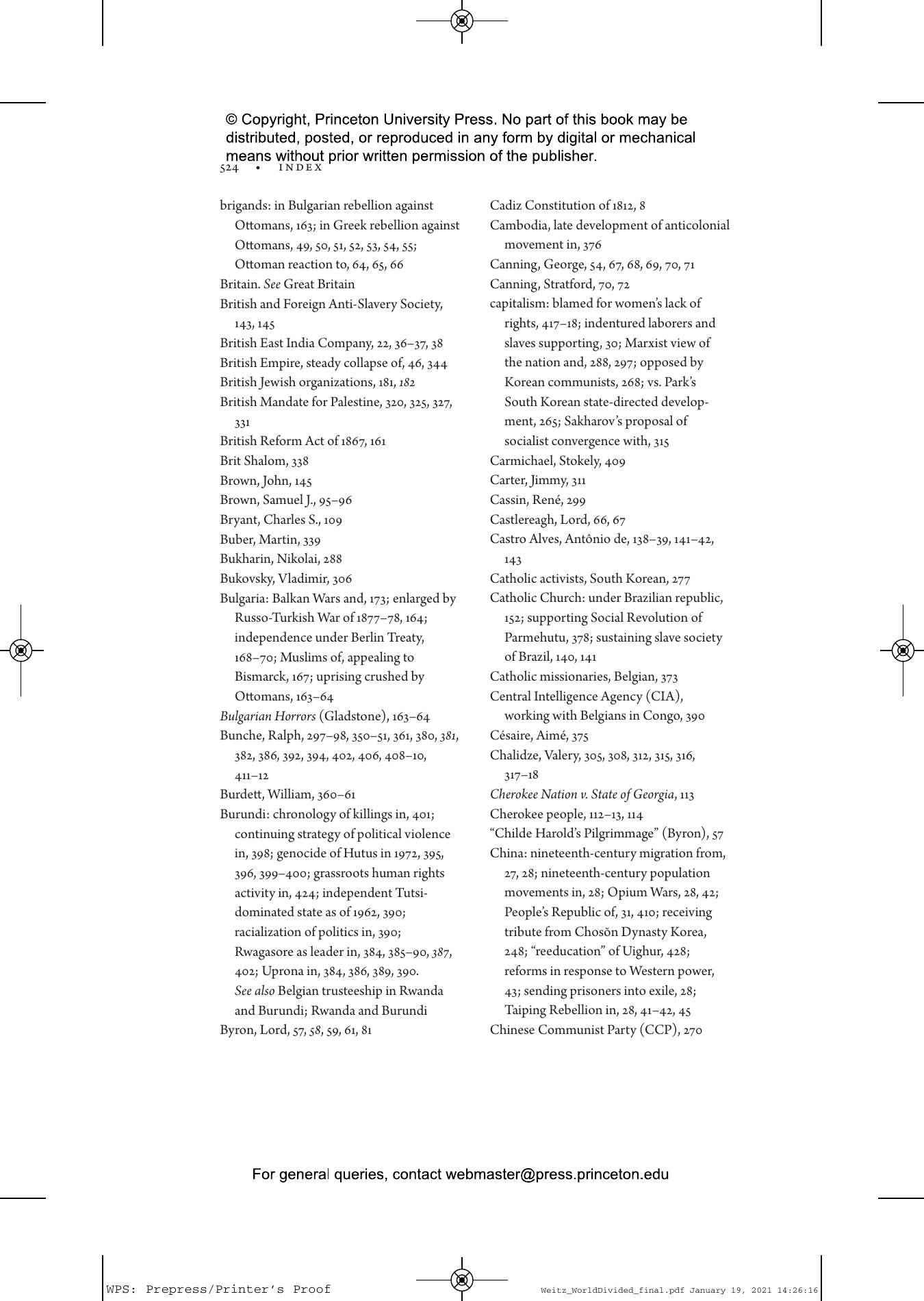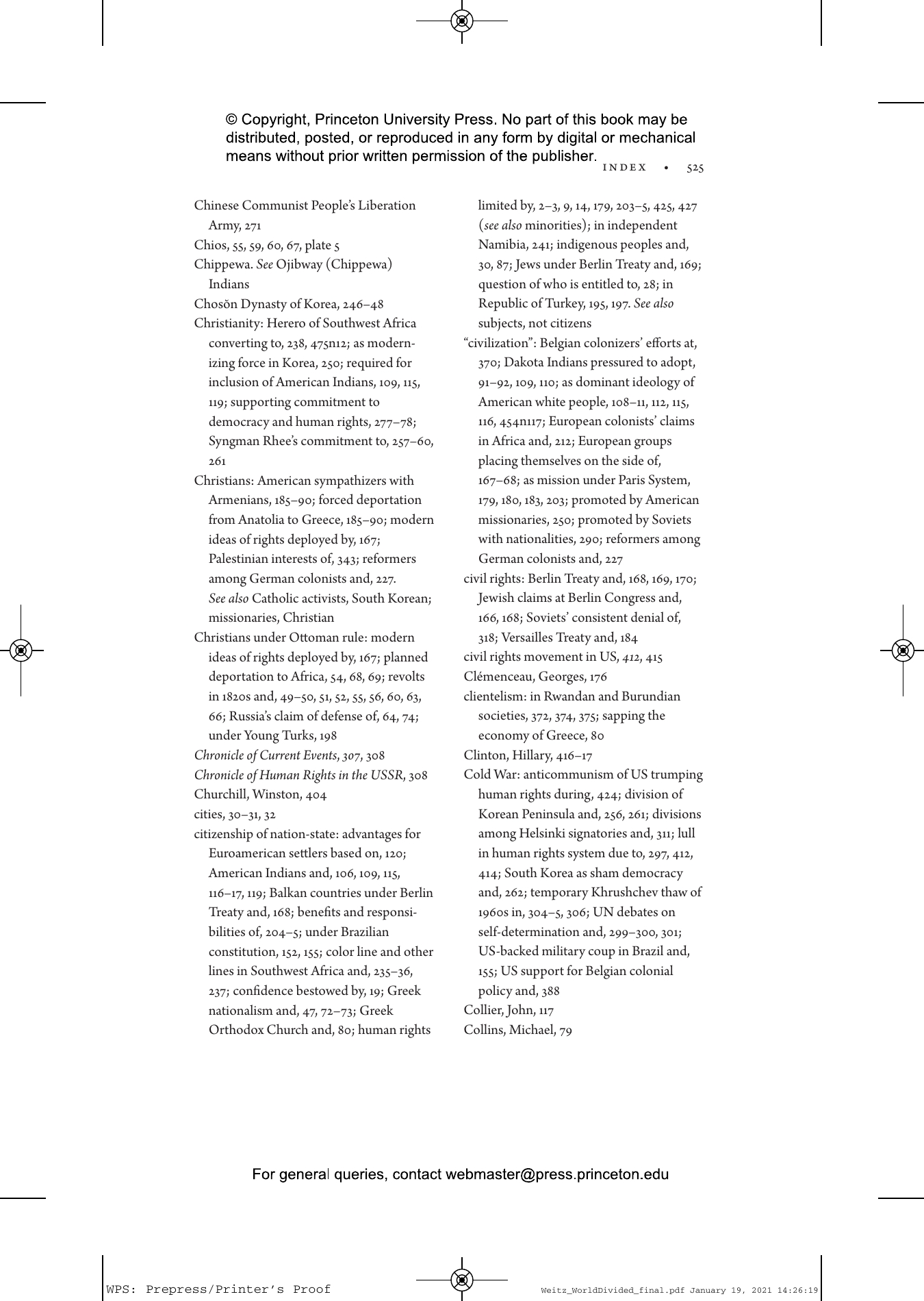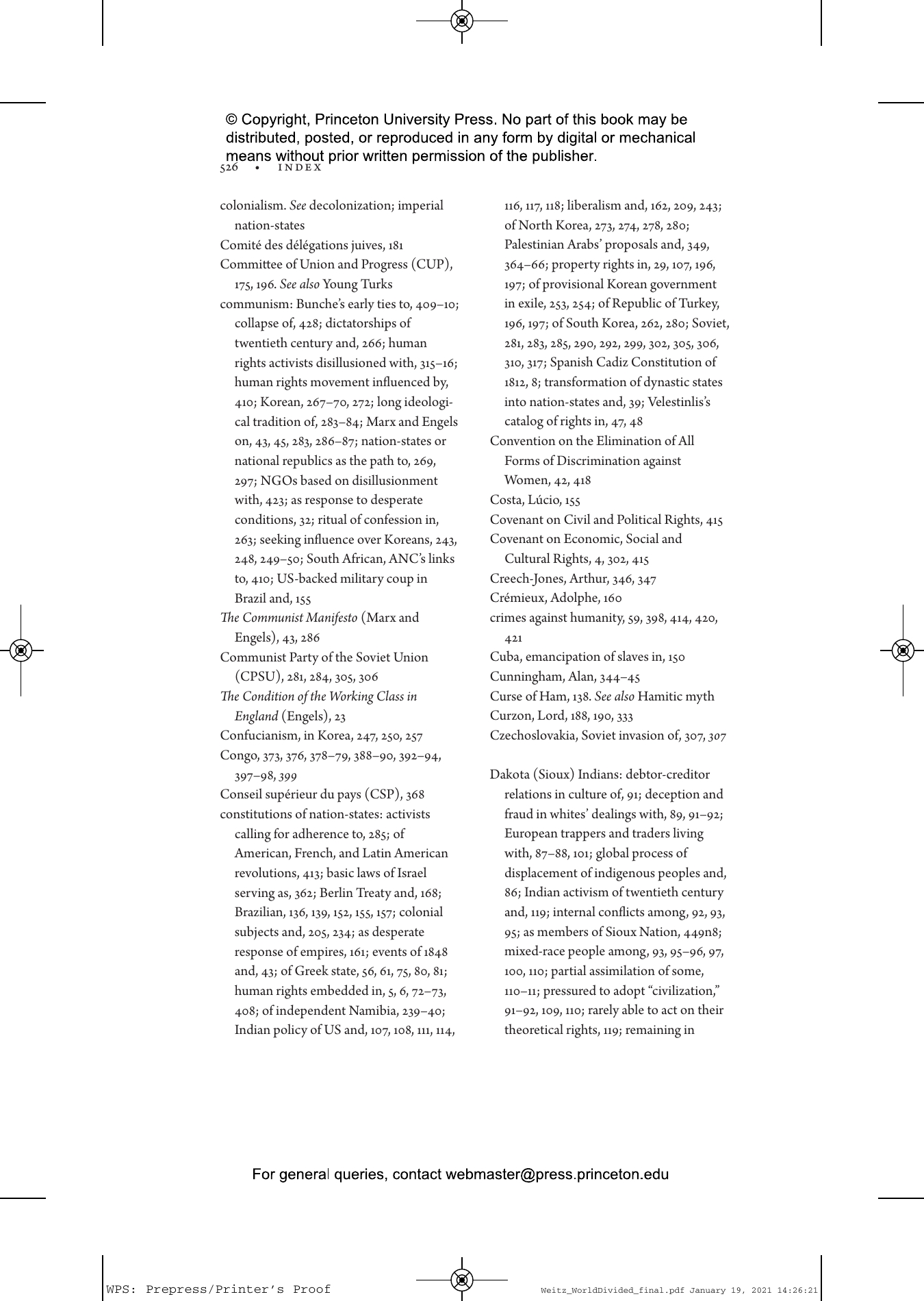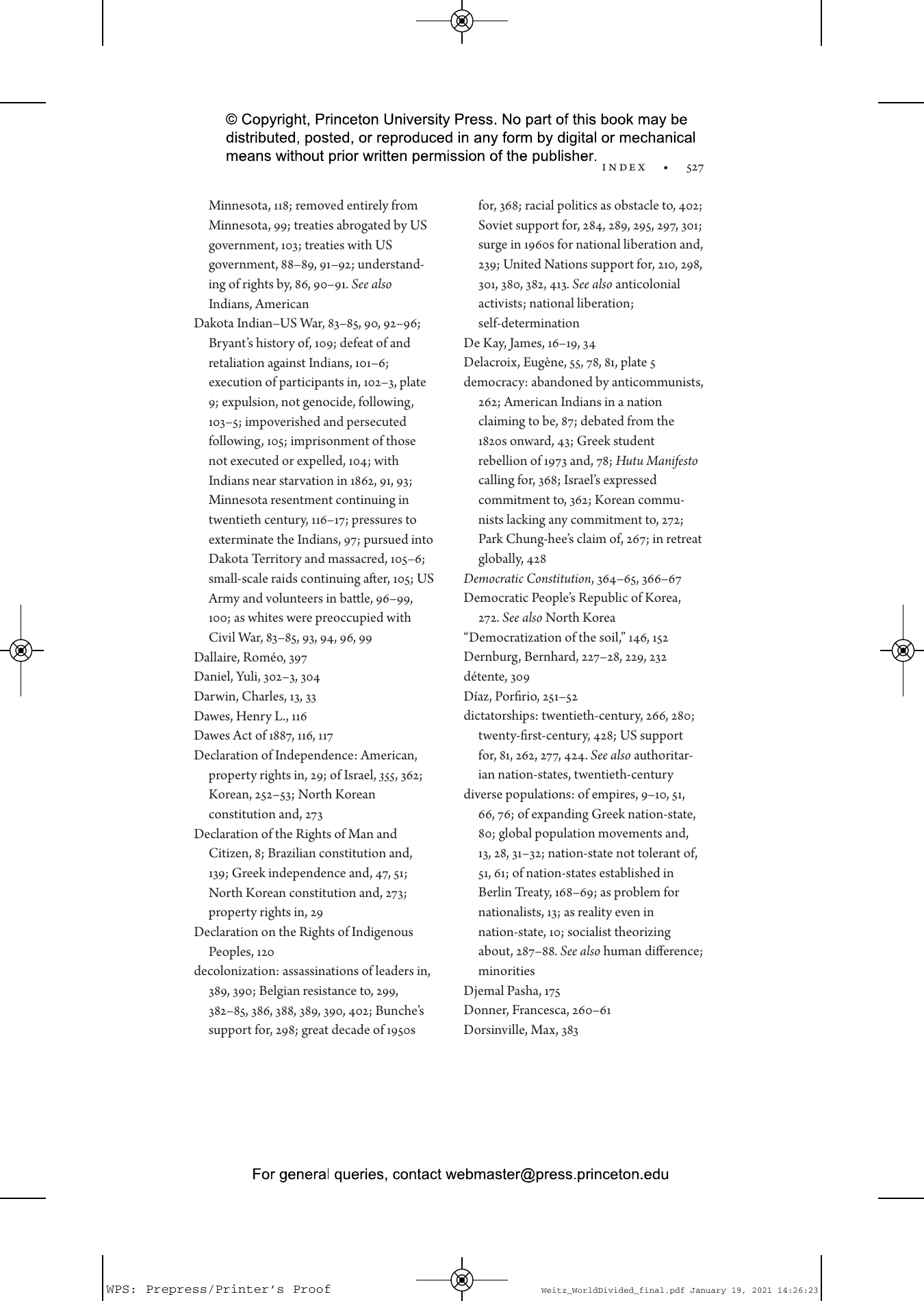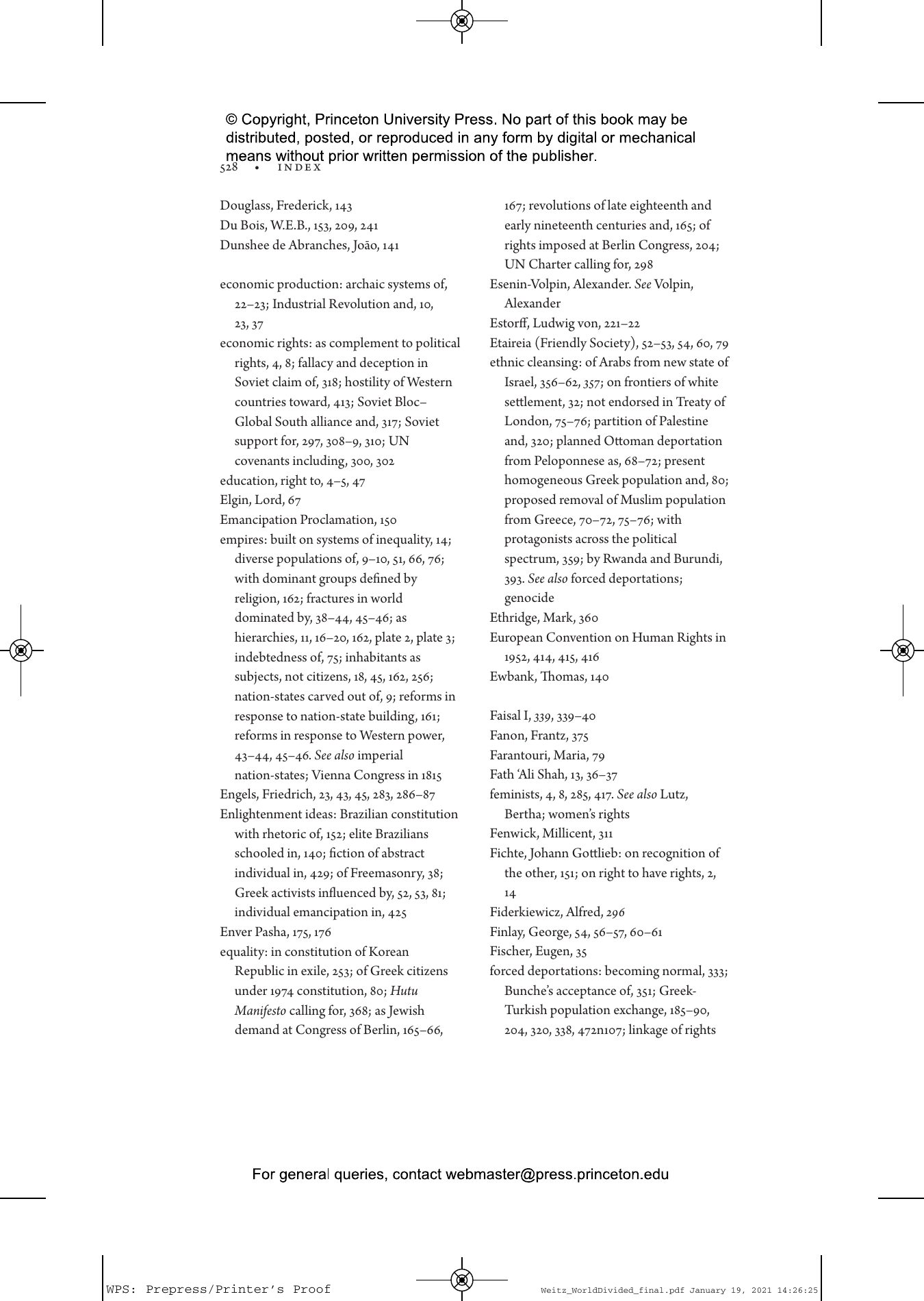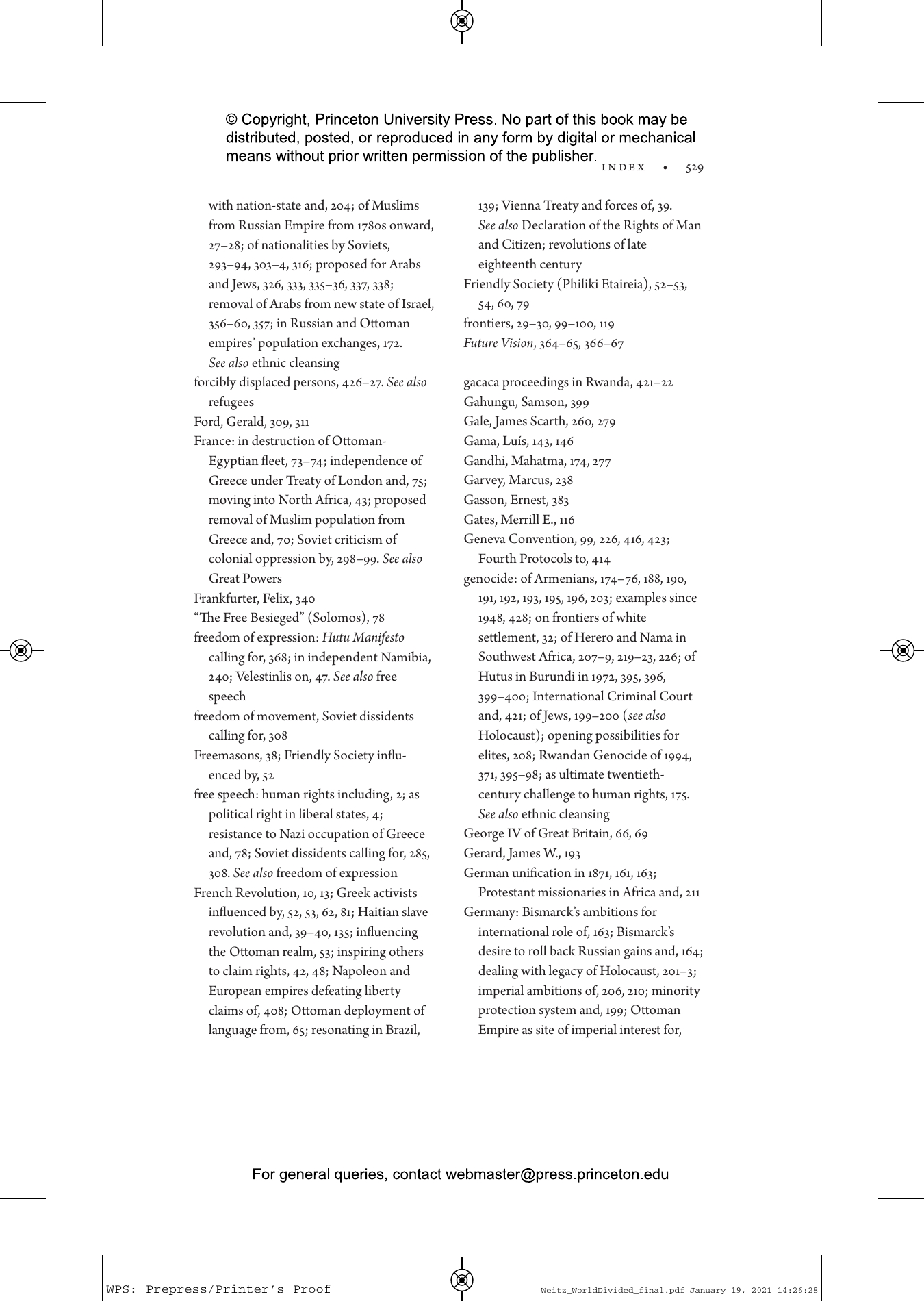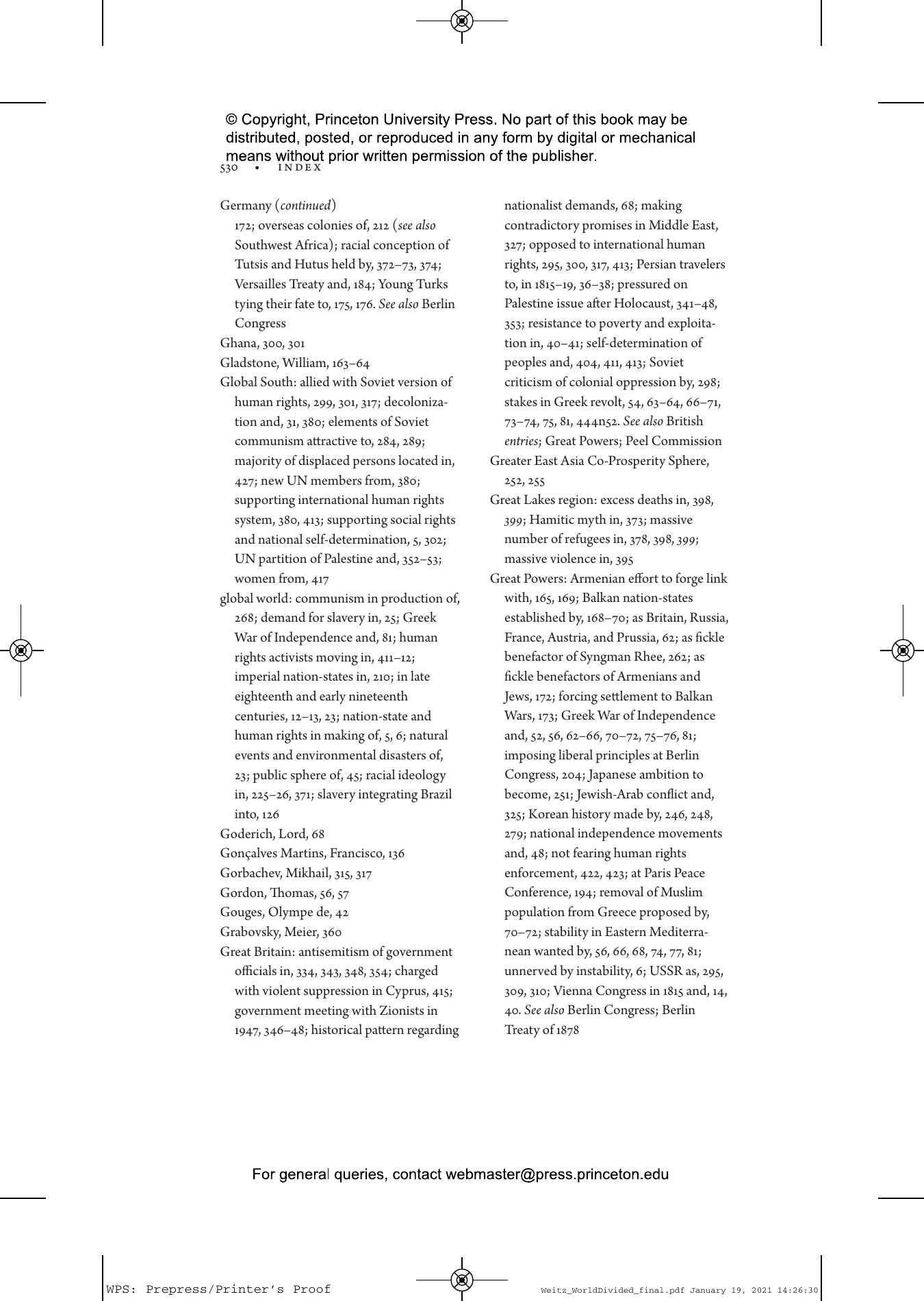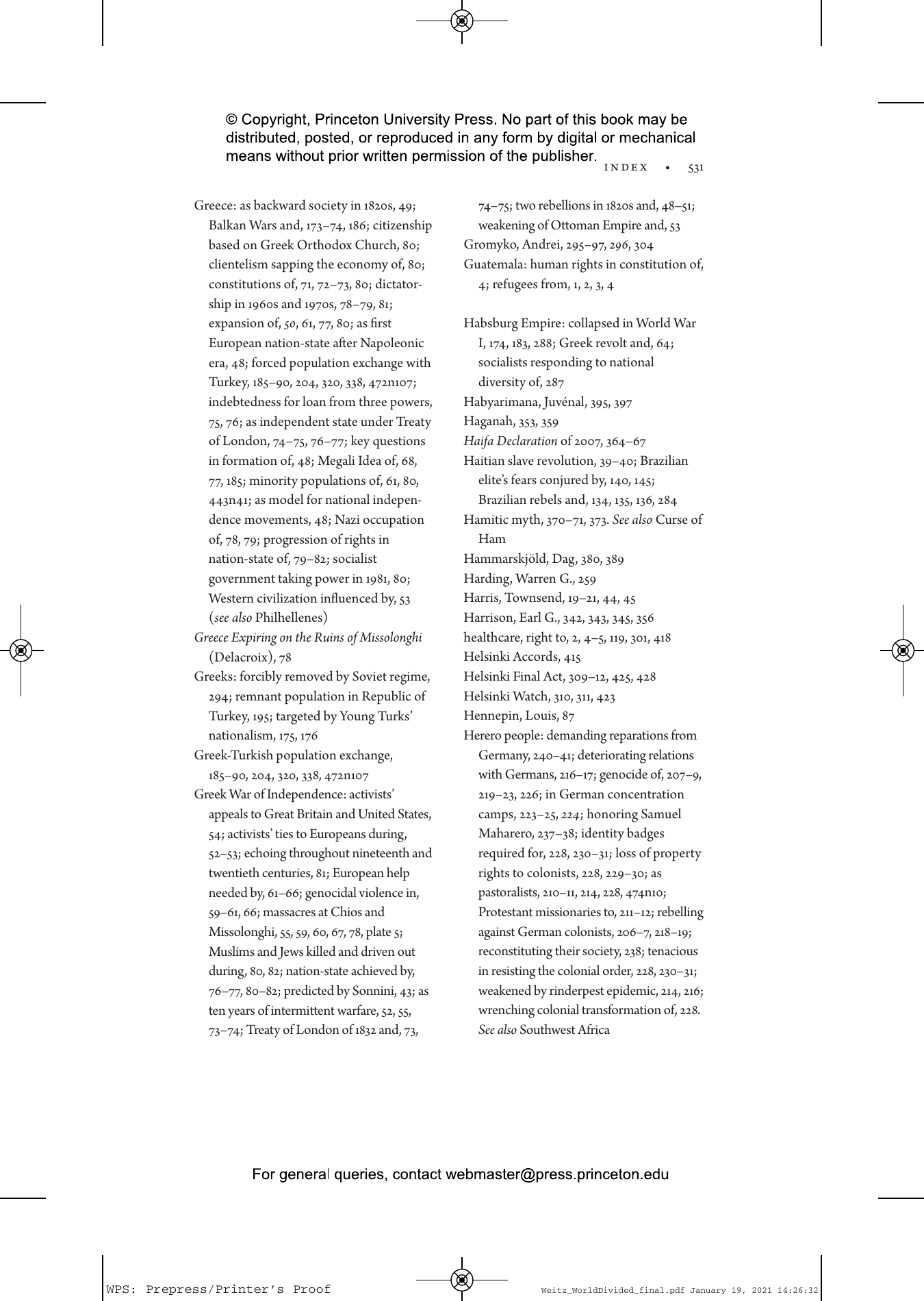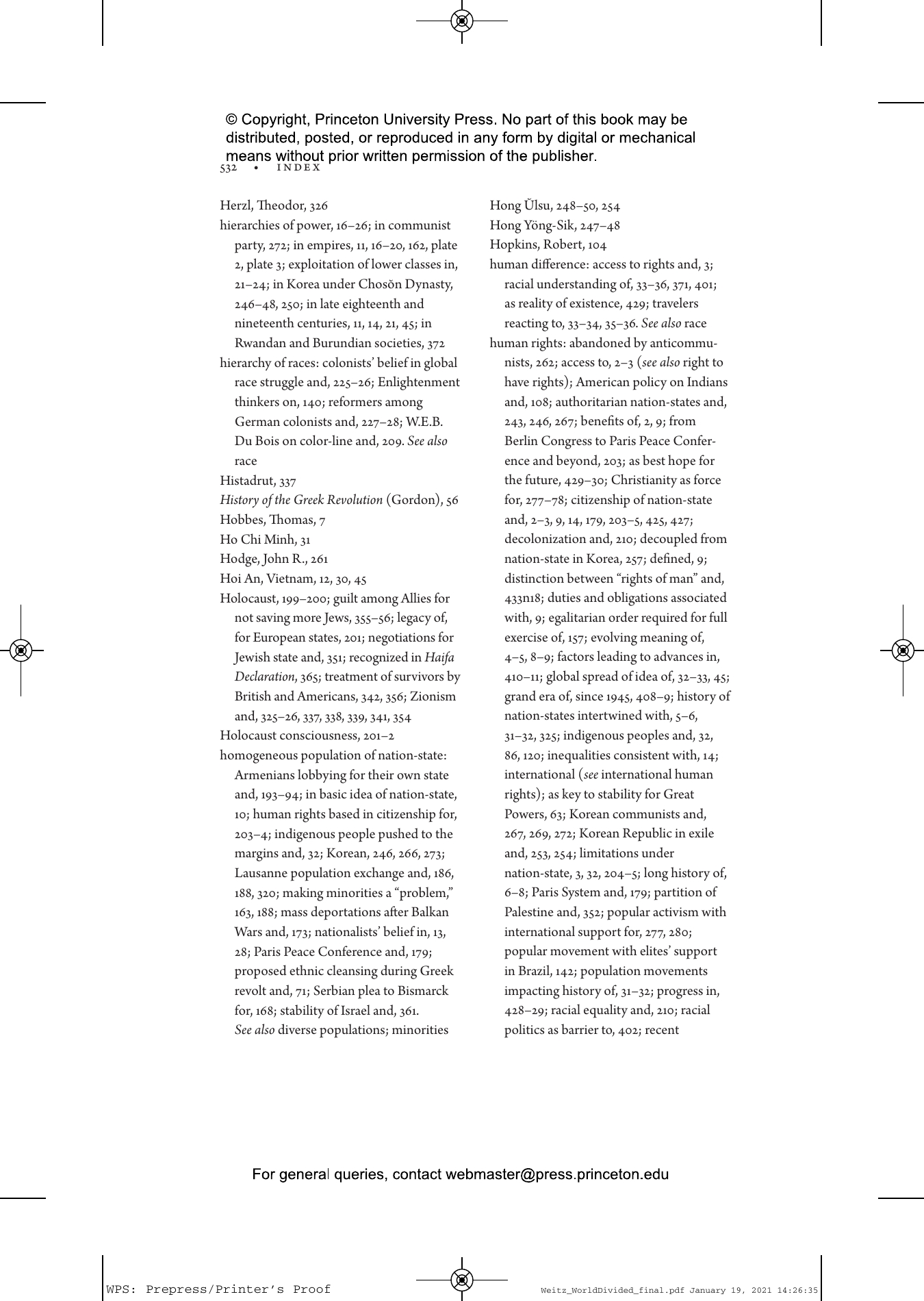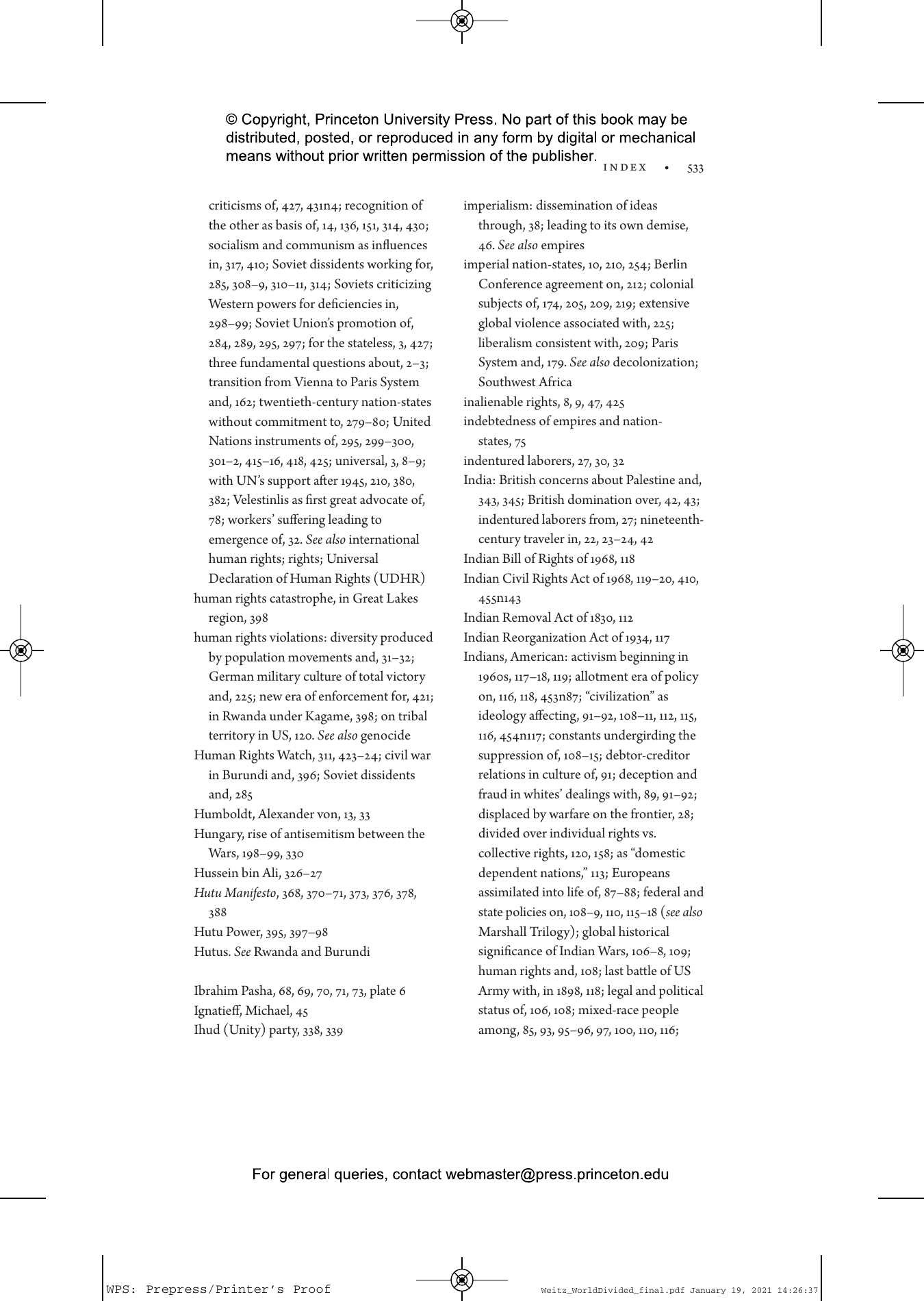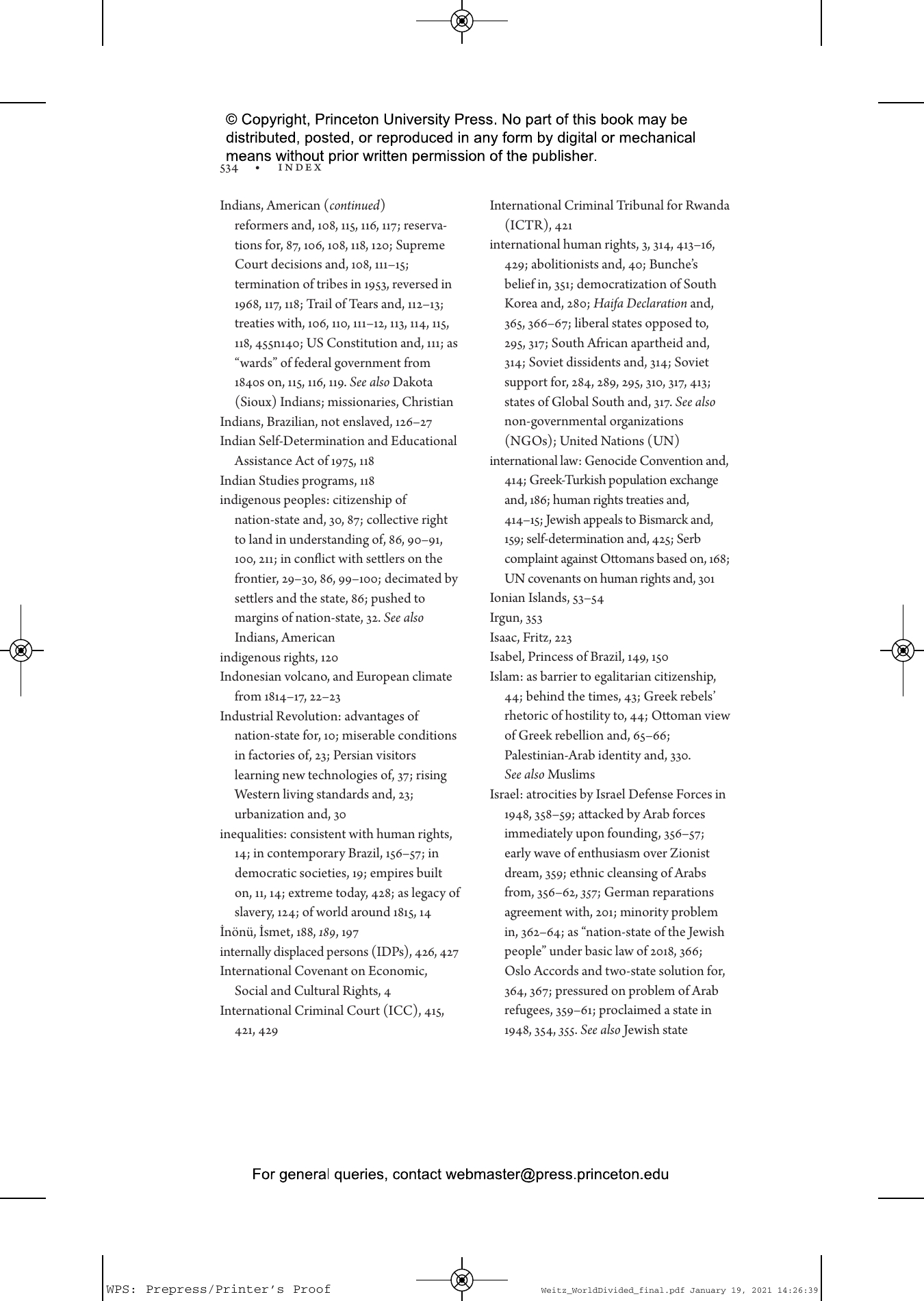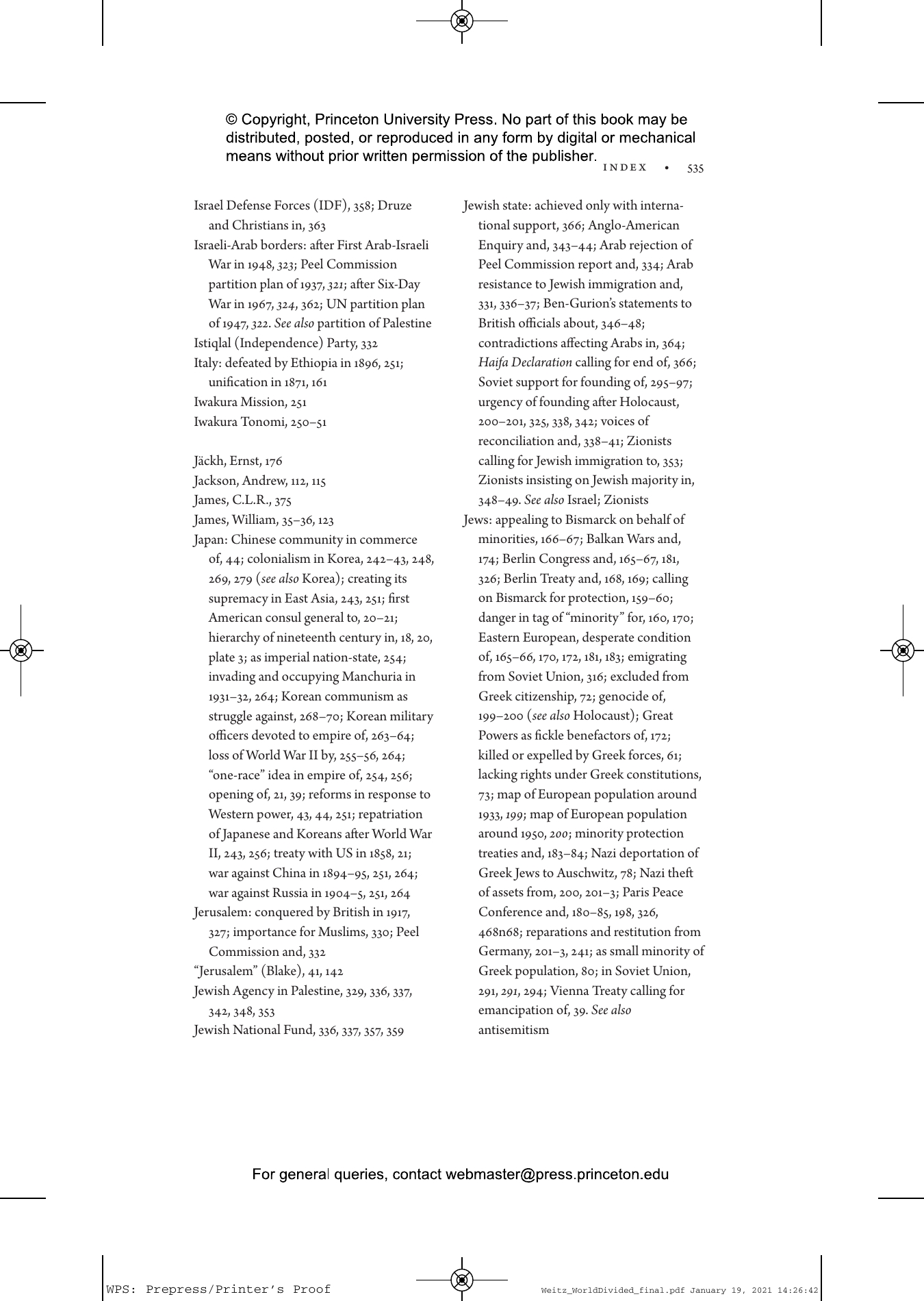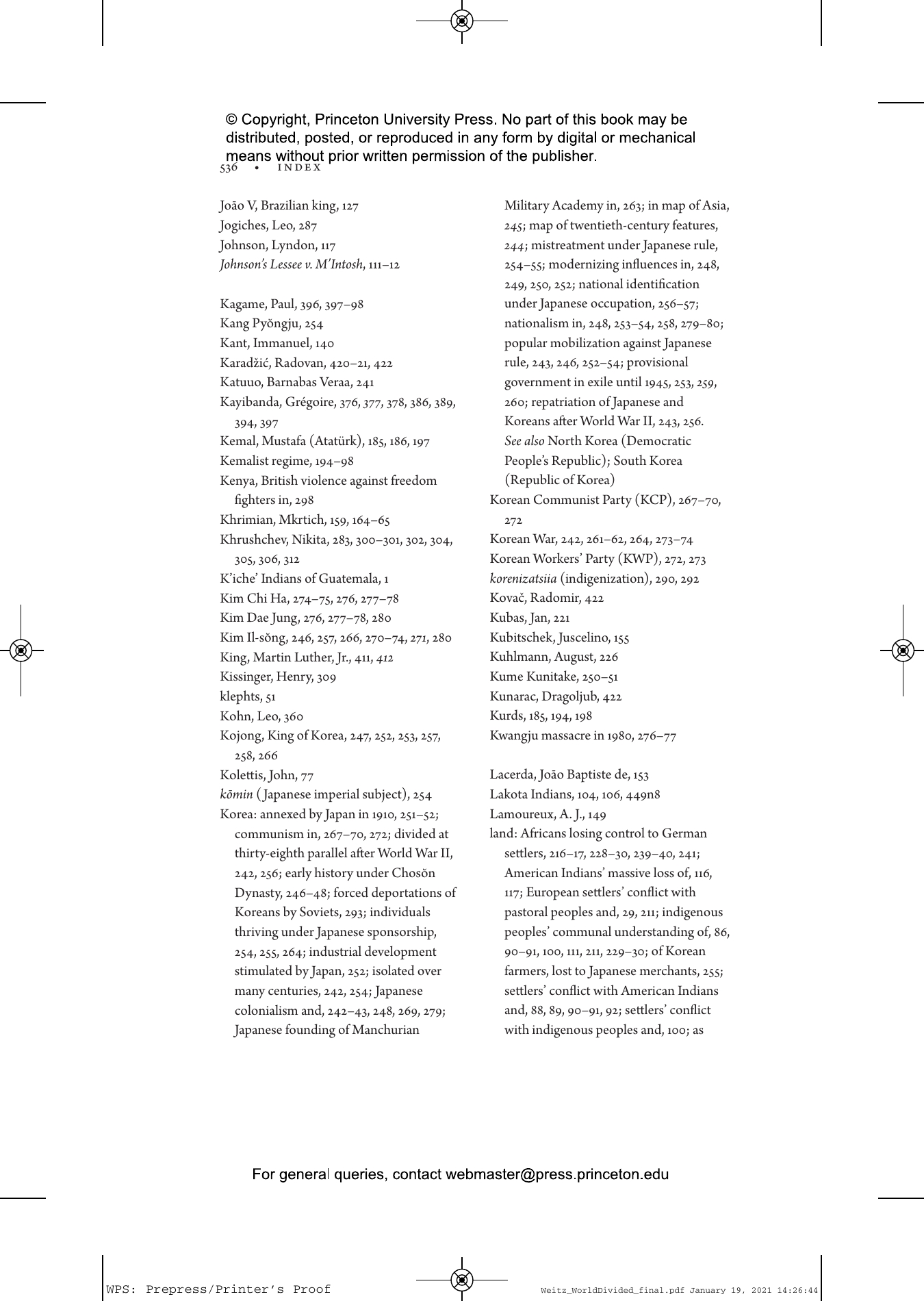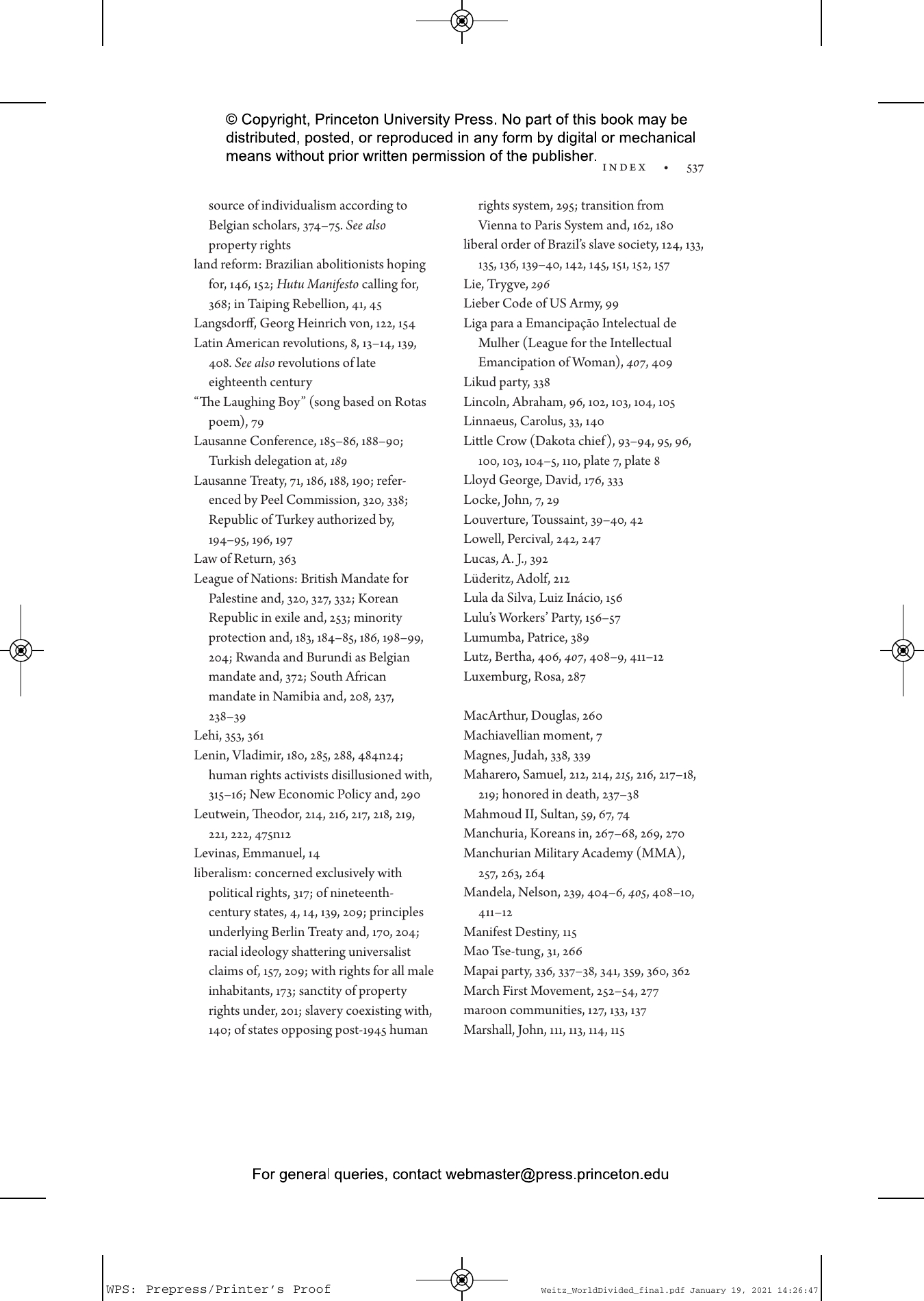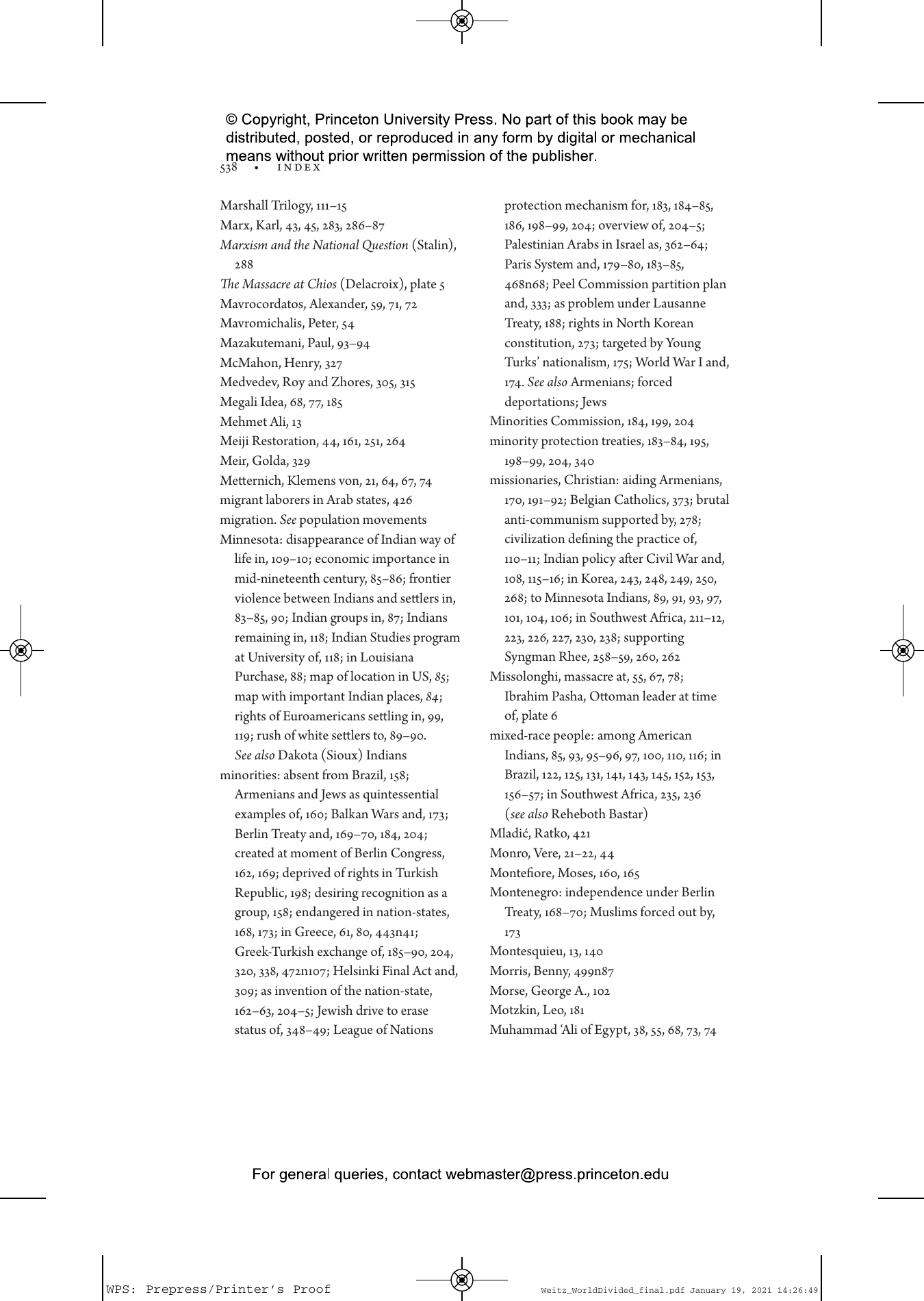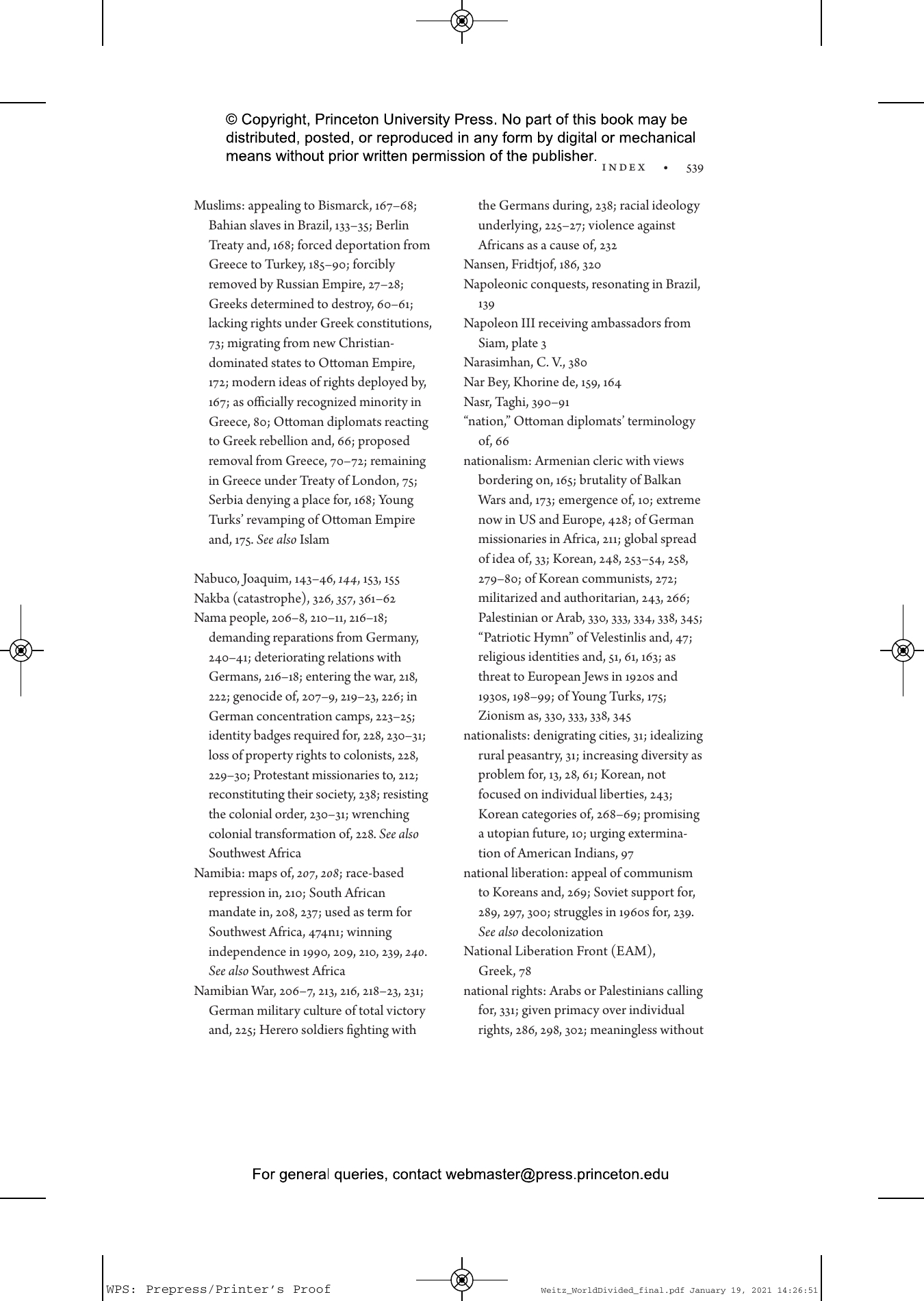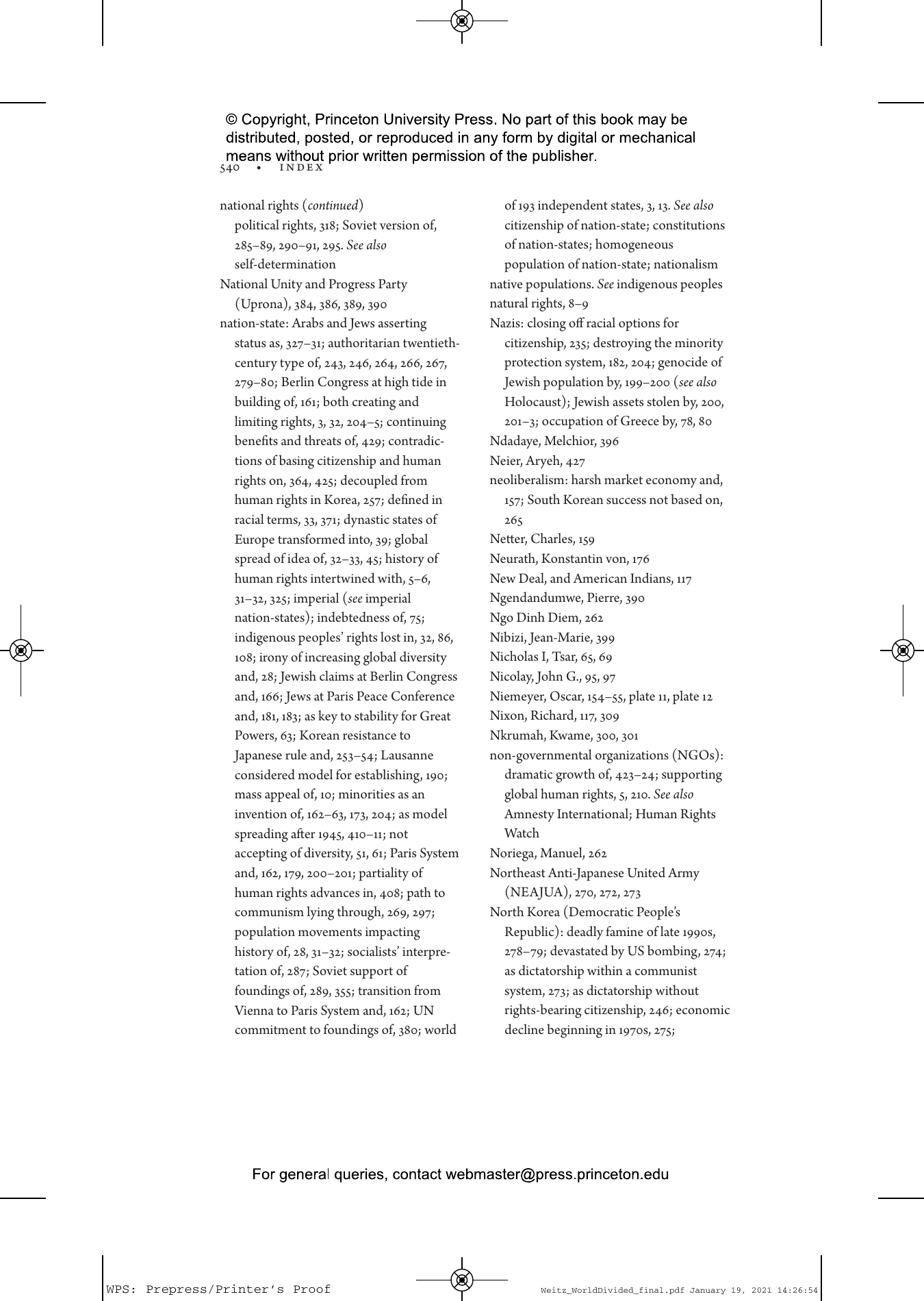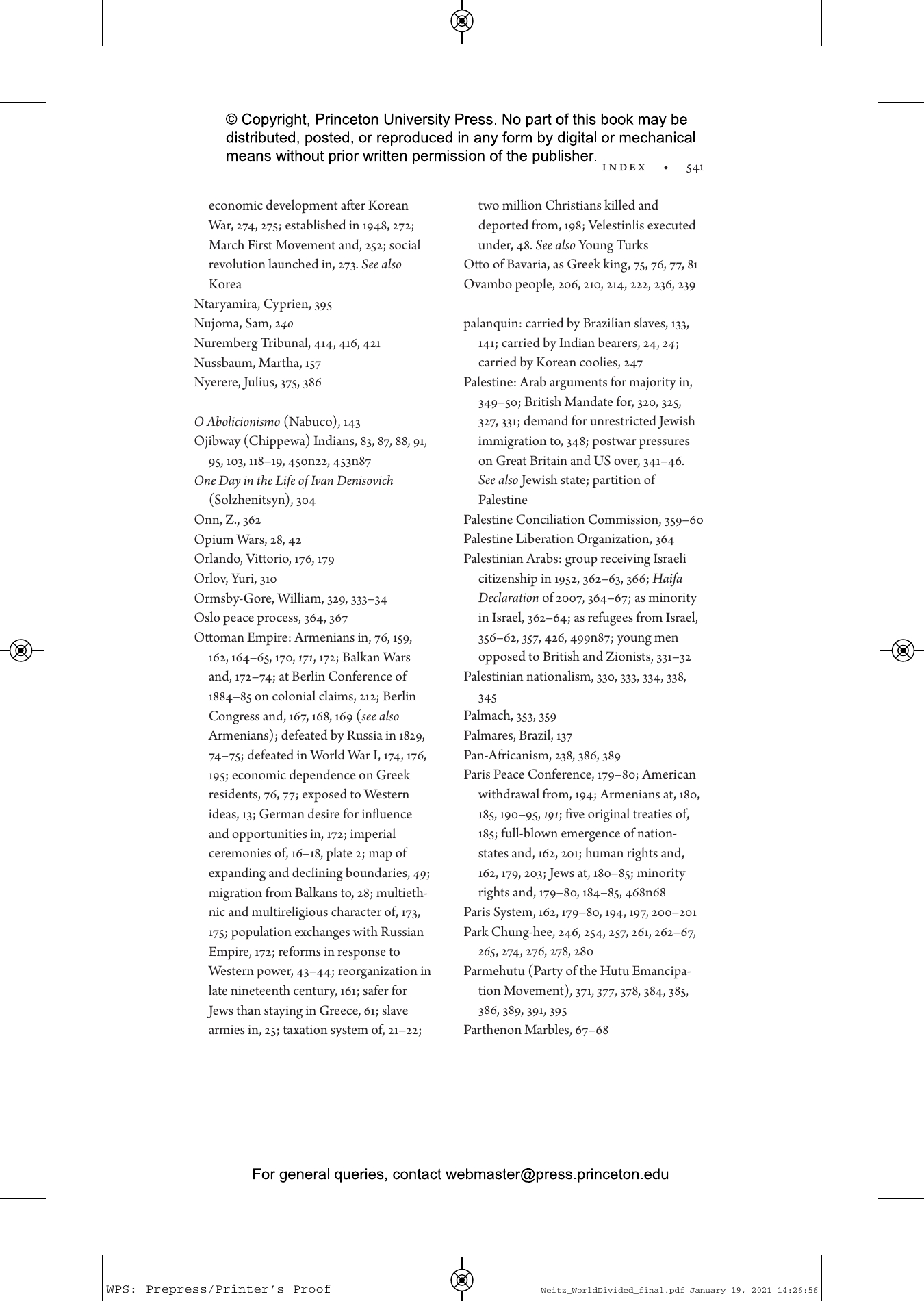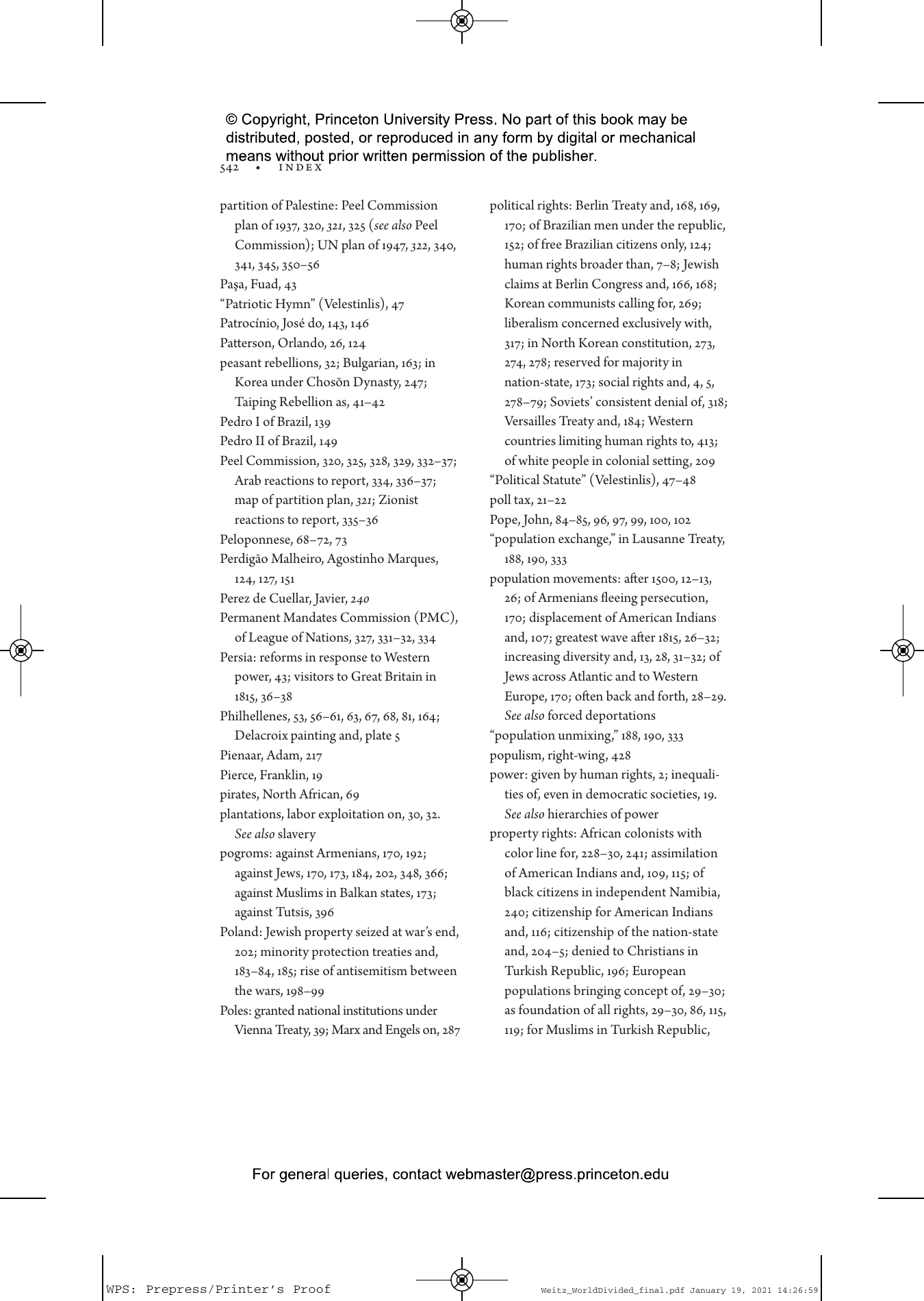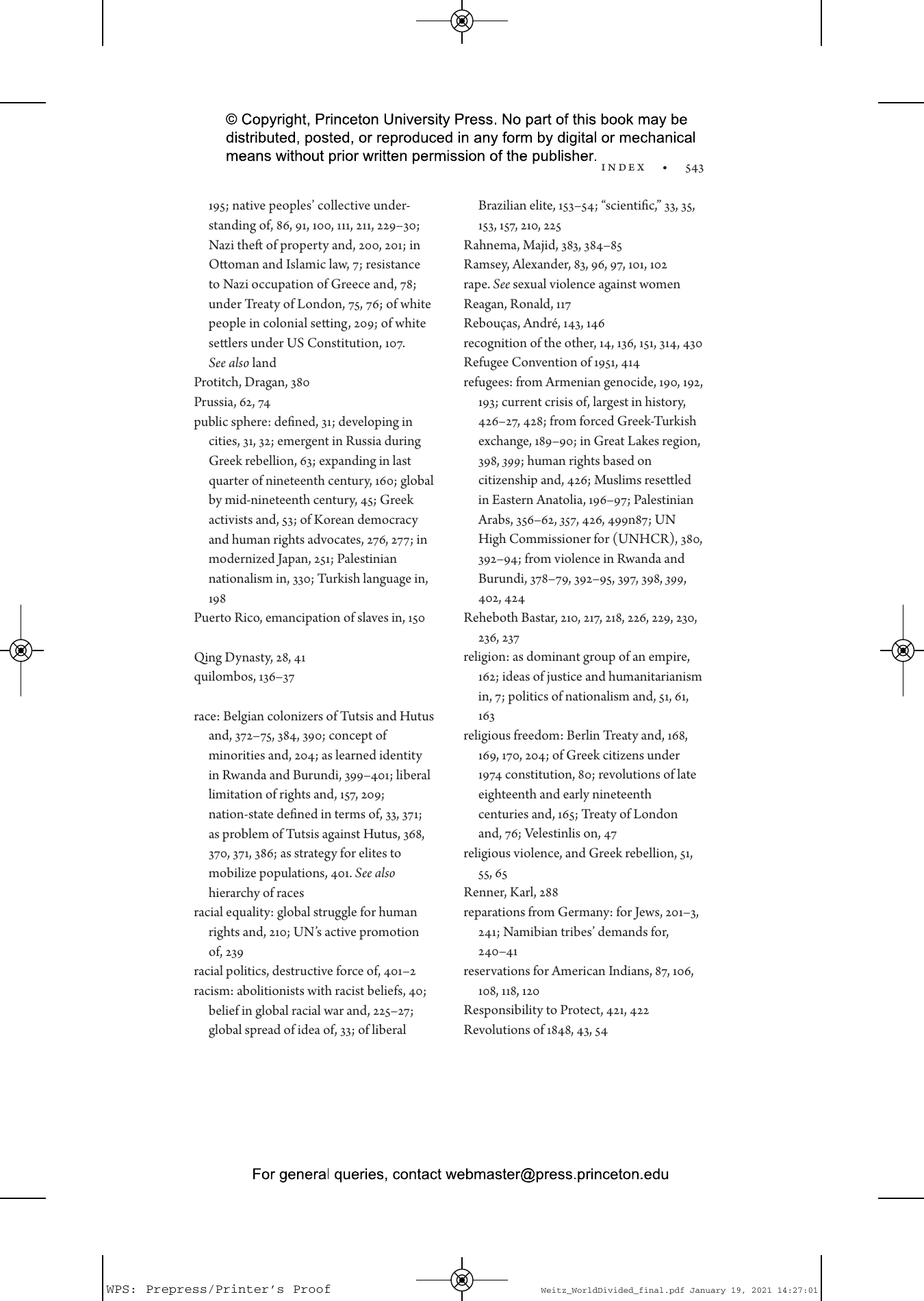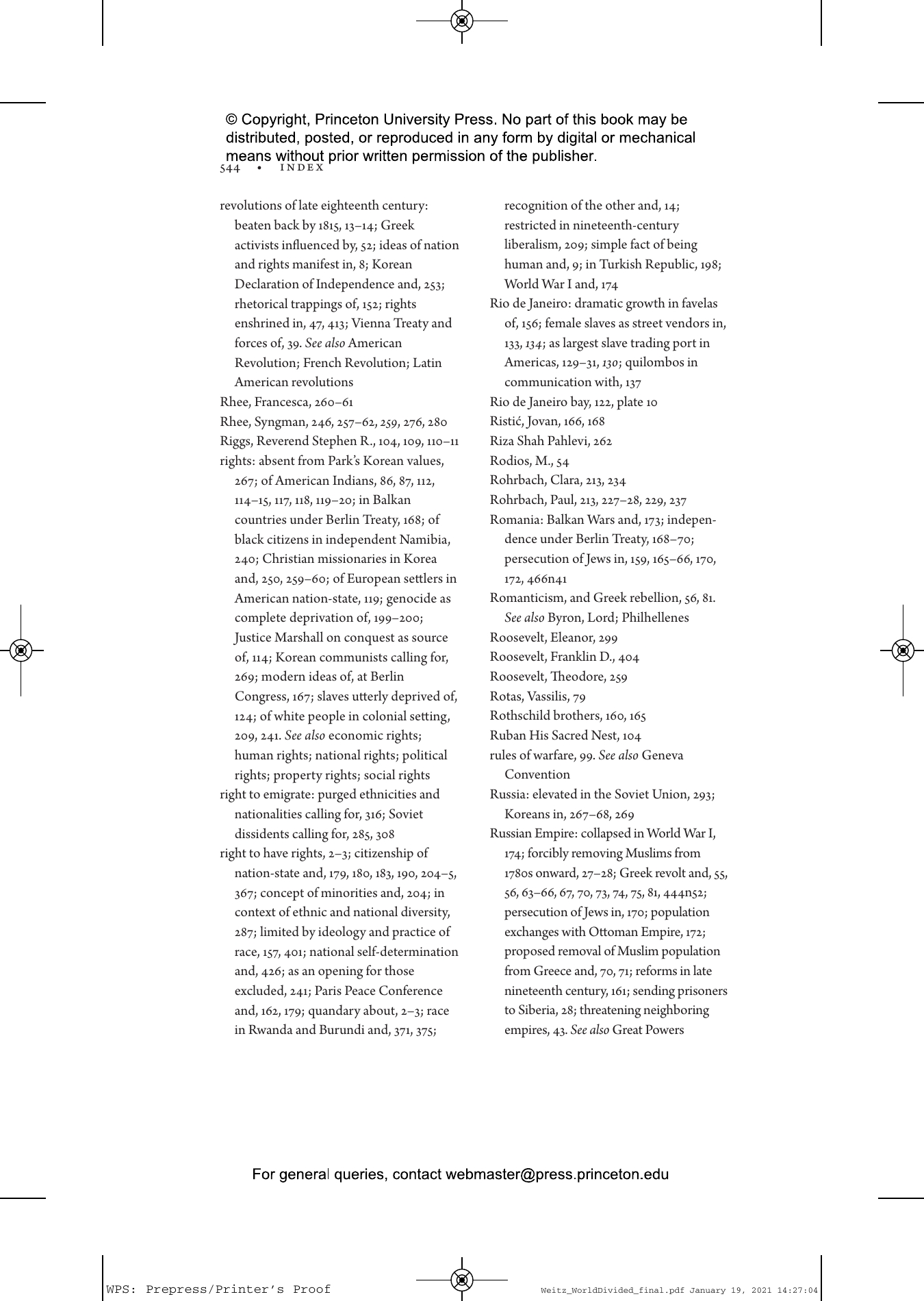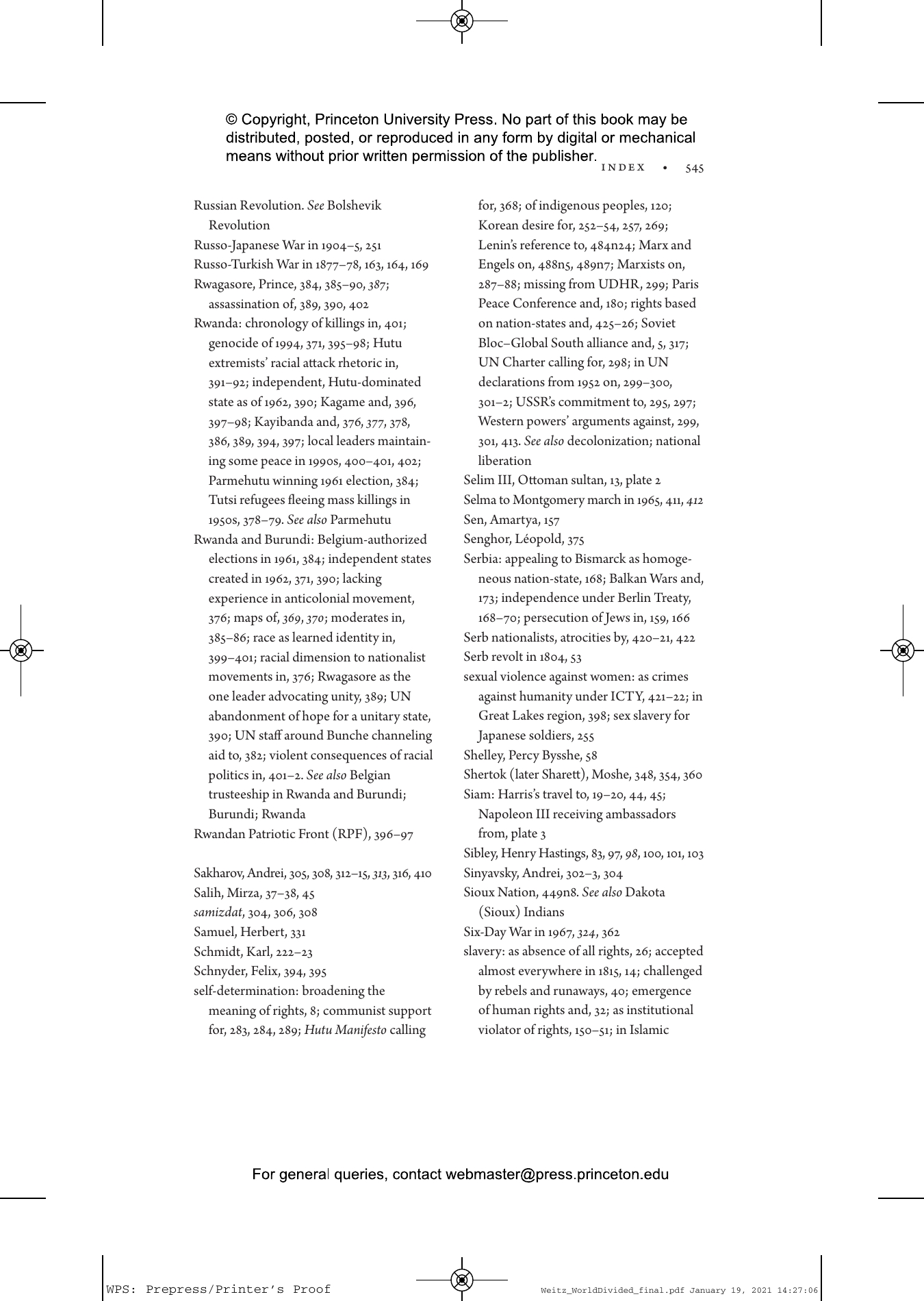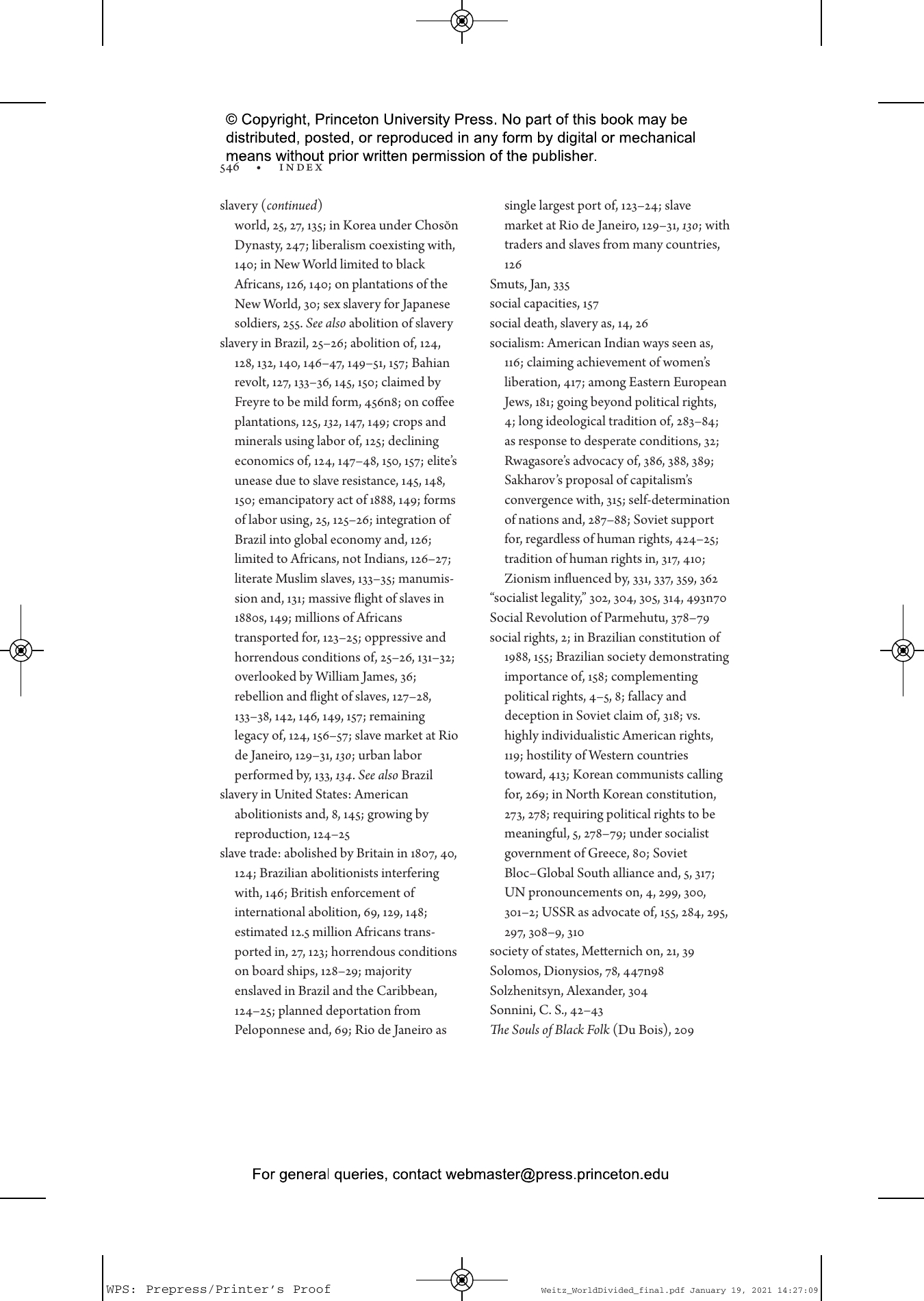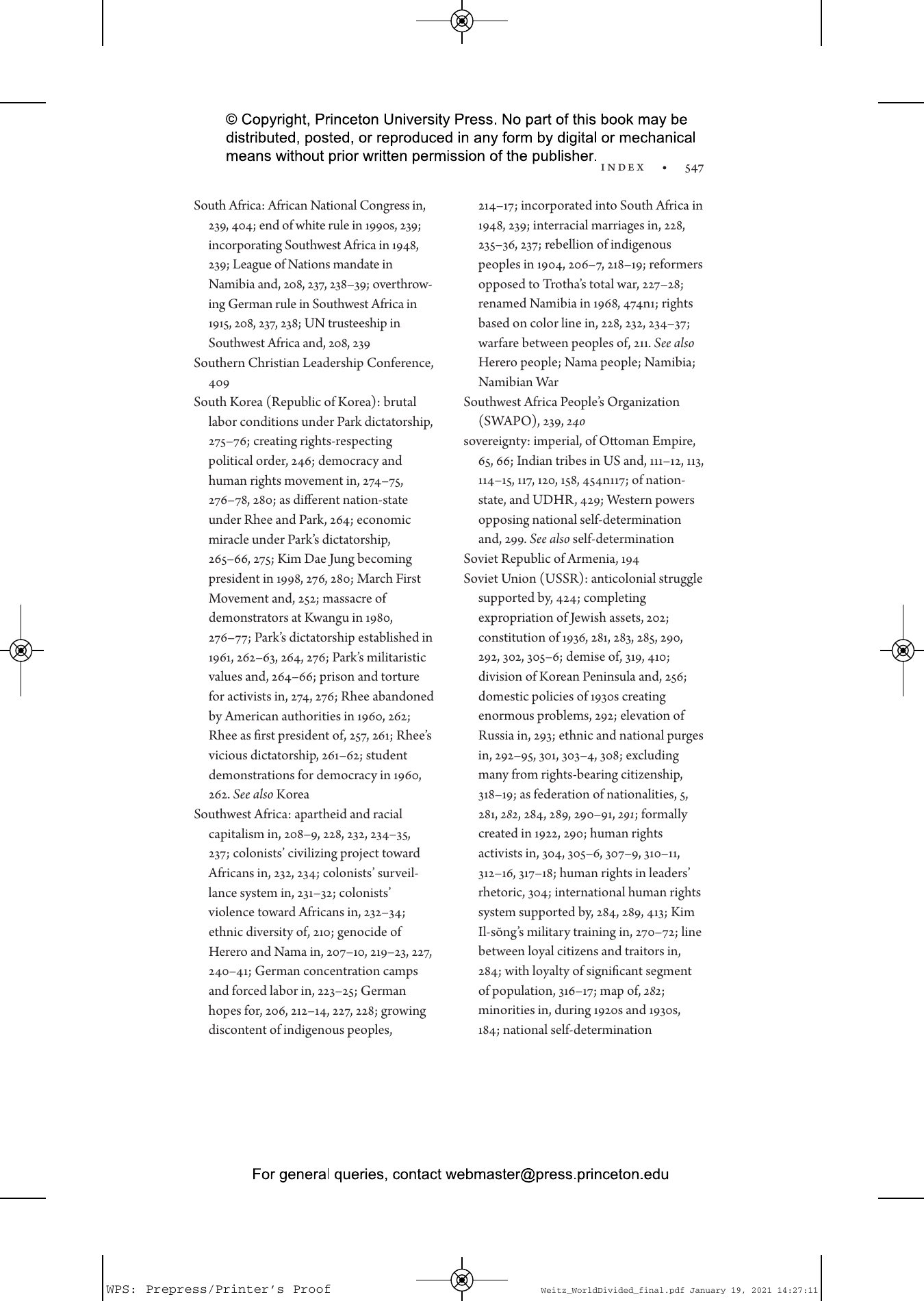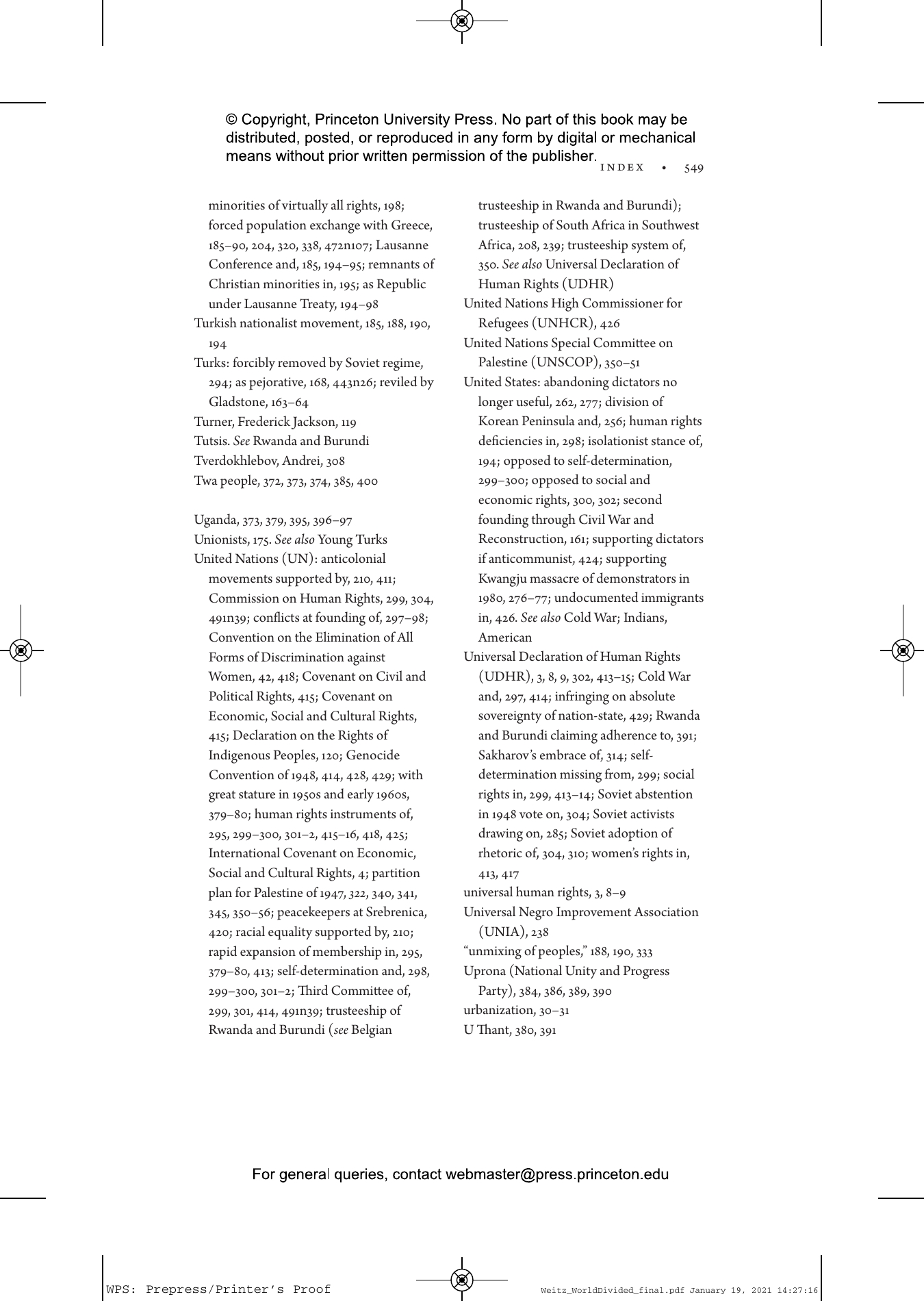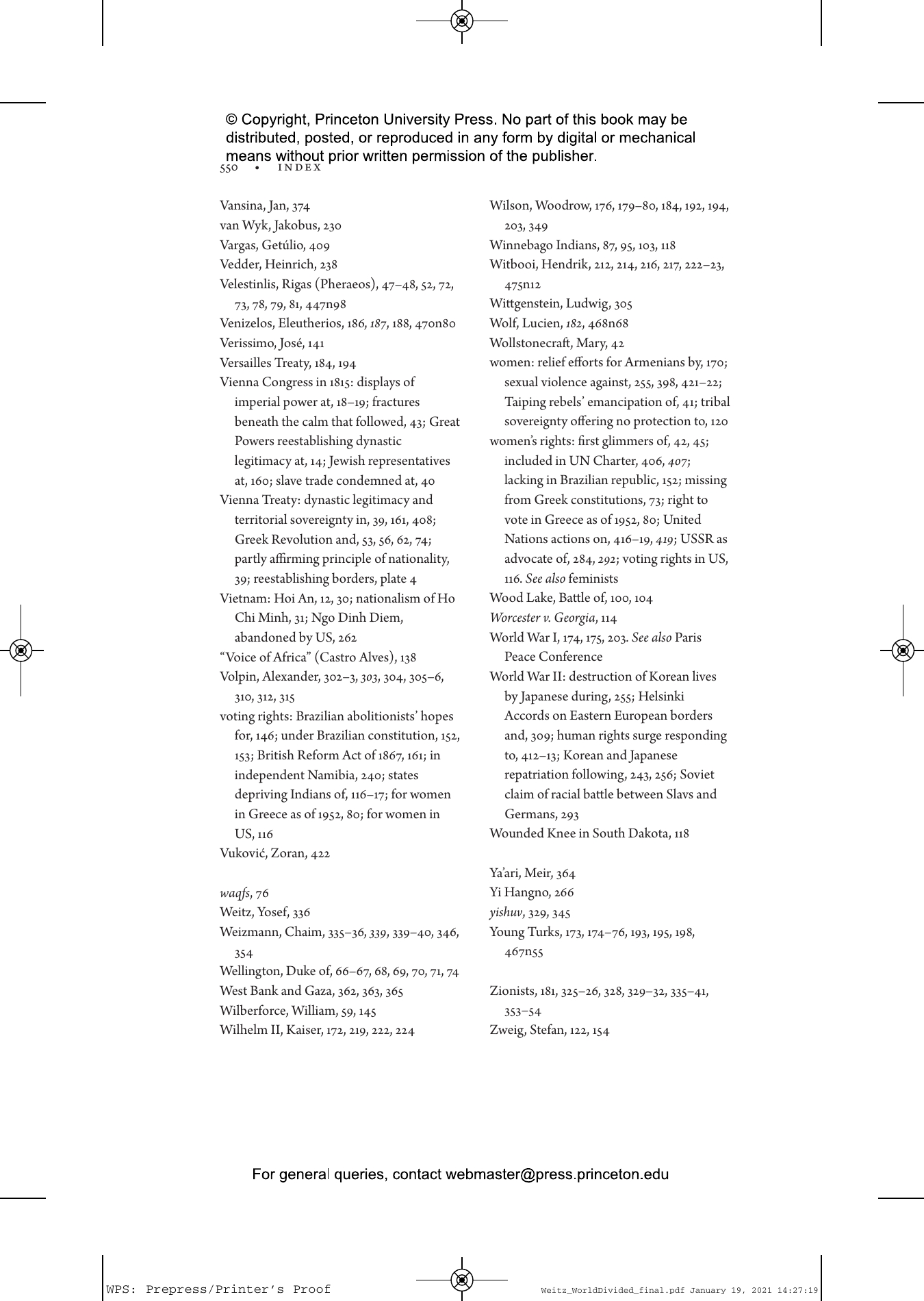Once dominated by vast empires, the world is now divided into close to 200 independent countries with laws and constitutions proclaiming human rights—a transformation that suggests that nations and human rights inevitably developed together. But the reality is far more problematic, as Eric Weitz shows in this compelling global history of the fate of human rights in a world of nation-states.
Through vivid histories drawn from virtually every continent, A World Divided describes how, since the eighteenth century, nationalists have struggled to establish their own states that grant human rights to some people. At the same time, they have excluded others through forced assimilation, ethnic cleansing, or even genocide. From Greek rebels, American settlers, and Brazilian abolitionists in the nineteenth century to anticolonial Africans and Zionists in the twentieth, nationalists have confronted a crucial question: Who has the “right to have rights?” A World Divided tells these stories in colorful accounts focusing on people who were at the center of events. And it shows that rights are dynamic. Proclaimed originally for propertied white men, rights were quickly demanded by others, including women, American Indians, and black slaves.
A World Divided also explains the origins of many of today’s crises, from the existence of more than 65 million refugees and migrants worldwide to the growth of right-wing nationalism. The book argues that only the continual advance of international human rights will move us beyond the quandary of a world divided between those who have rights and those who don’t.
Awards and Recognition
- Finalist for the PROSE Award in World History, Association of American Publishers
Eric D. Weitz (1953–2021) was Distinguished Professor of History at City College and the Graduate Center, City University of New York. He was also the author of Weimar Germany: Promise and Tragedy, which was named a New York Times Book Review Editor’s Choice; A Century of Genocide: Utopias of Race and Nation; and Creating German Communism, 1890–1990: From Popular Protests to Socialist State (all Princeton).
"Engaging mounting scholarship on the history of human rights, A World Divided approaches the topic by focusing on nation-states as central to understanding human rights. . . . [Weitz’s] book provides a useful entryway to understanding human rights struggles for undergraduates and the general public."—Choice
"[A] wide-ranging and important book is about the global struggle for human rights."—David Lorimer, Paradigm Explorer
"An impressive tale with a wide-ranging reflection on the entanglement of two forces that have profoundly shaped the history of the past two hundred and fifty years: the nation-state and human rights."—Jan Eckel, H-Diplo
"In this magisterial and riveting work of global history, Weitz chronicles the gradual, uneven, and disputed emergence of contemporary norms of international human rights from the struggles between and within nation-states over the past two centuries. A World Divided is especially worth reading at a time when many countries are governed by leaders trying to reverse recent advances in the protection of rights."—Aryeh Neier, cofounder of Human Rights Watch
"By re-examining a wide range of events, places, and people, Eric Weitz illuminates the past and present in the global story of human rights. This is essential reading for activists, scholars, and everyone else interested in human rights."—Lynn Hunt, author of Inventing Human Rights
"If you can read, assign, or recommend only one book on the deep and conflictual history of human rights, it should be Eric Weitz's wide-ranging, evenhanded, and meticulously researched A World Divided. Weitz, one of the foremost historians of human rights and genocide, brings a lifetime of research to bear in this sweeping and accessible book."—Kathryn Sikkink, author of Evidence for Hope: Making Human Rights Work in the 21st Century
"In this eye-opening study, Eric Weitz contends that there is no separating the history of human rights from the liberating but exclusionary quests for citizenship and nationhood that have powered modern history—and which often turn violent. Needless to say, the pertinence of Weitz's lesson today is clear."—Samuel Moyn, author of Not Enough: Human Rights in an Unequal World
"A World Divided highlights the inherent contradiction of trying to uphold universal values of human dignity in an international order based on the sovereign equality of states. Weitz illustrates the struggle to protect the most vulnerable among us and provides inspiration and support to future generations of human rights defenders."—Juan E. Méndez, former UN Special Rapporteur on Torture
